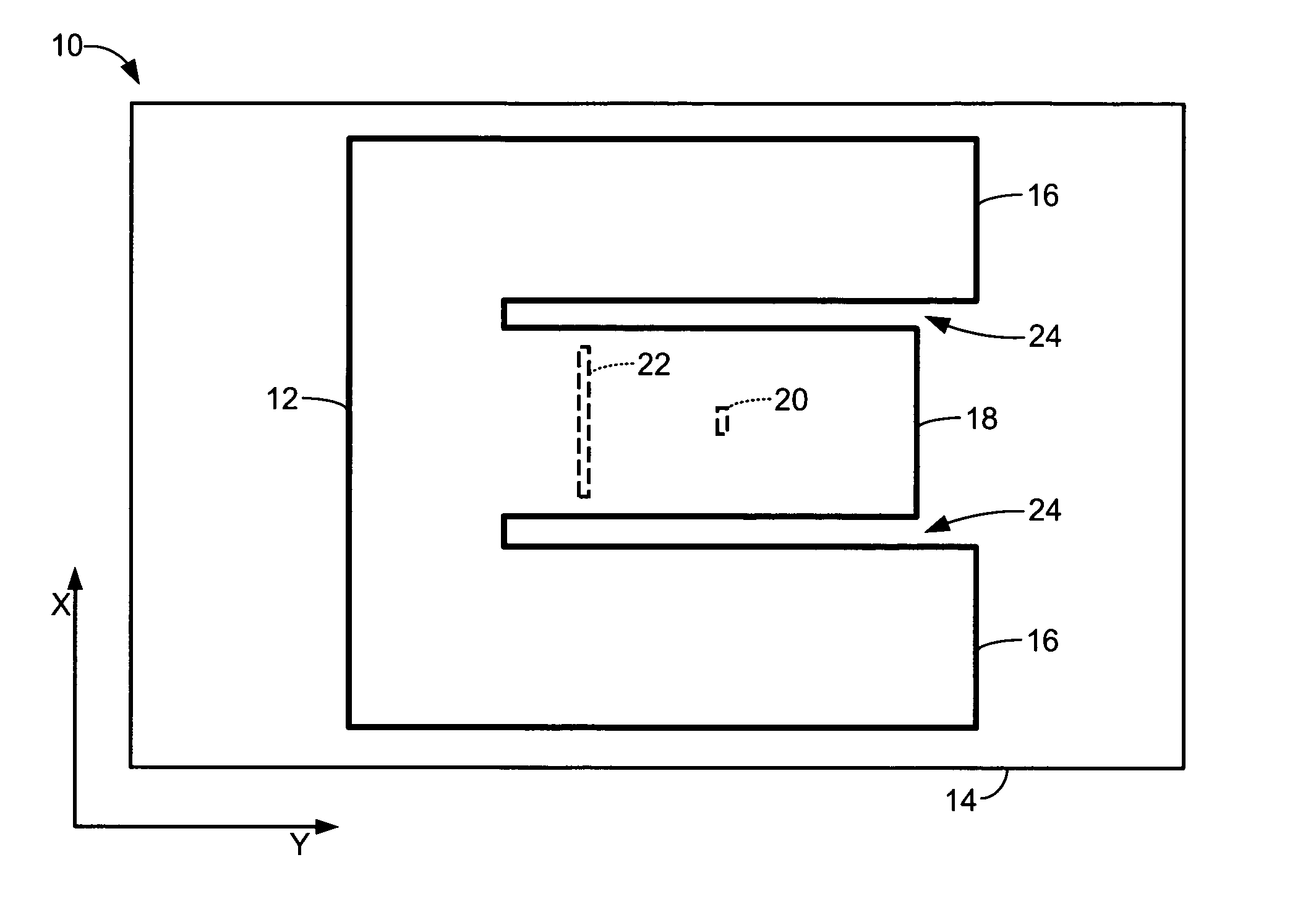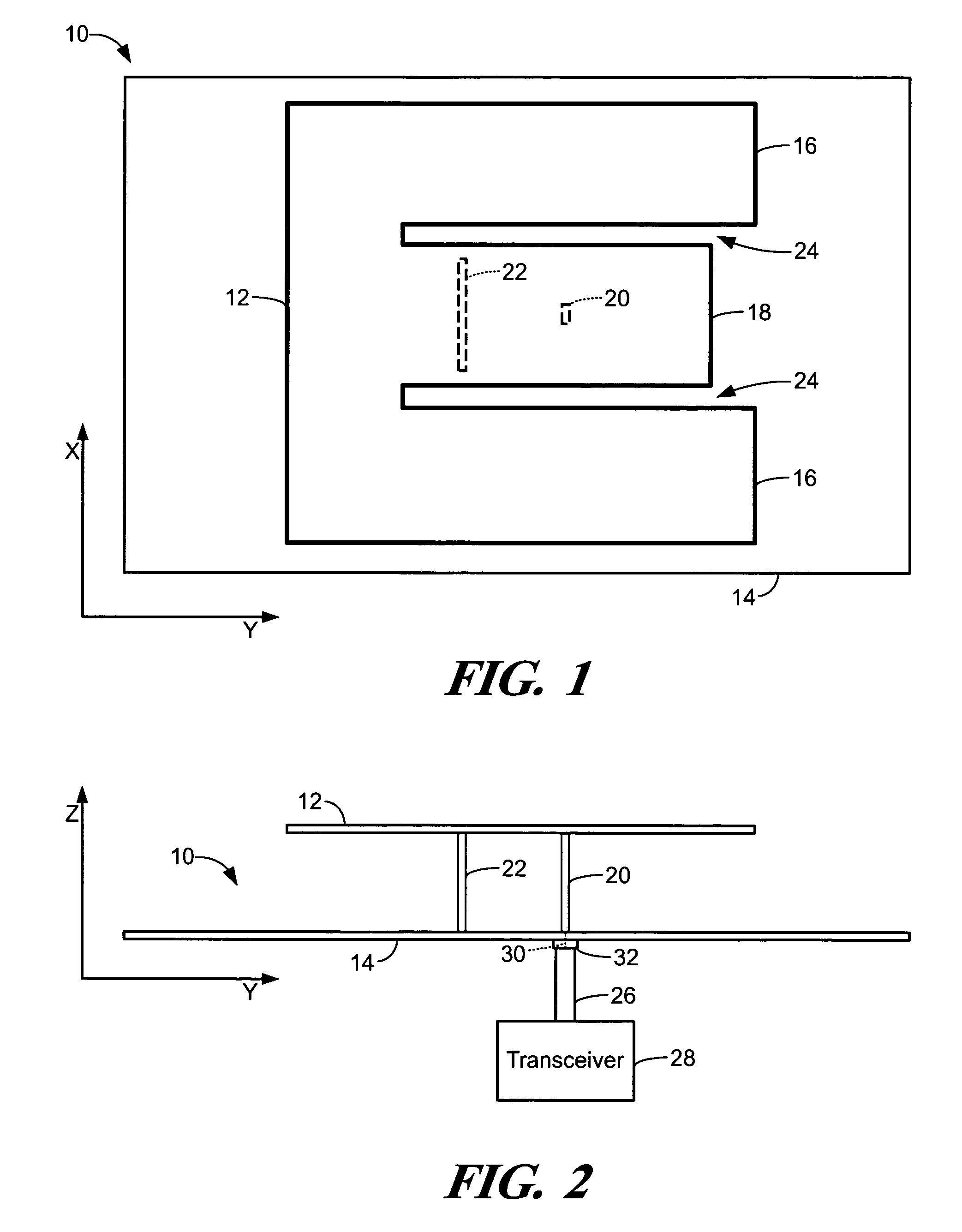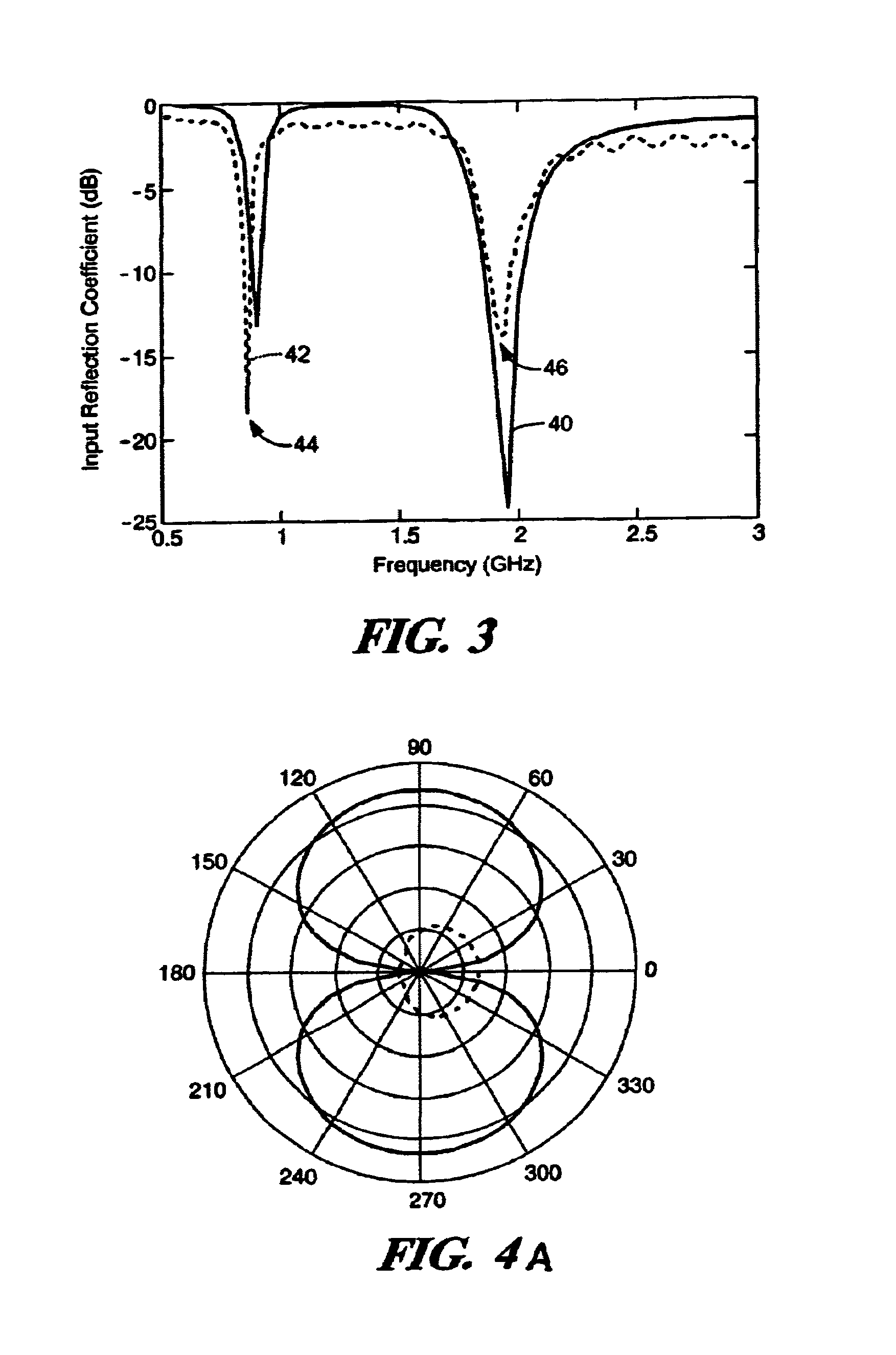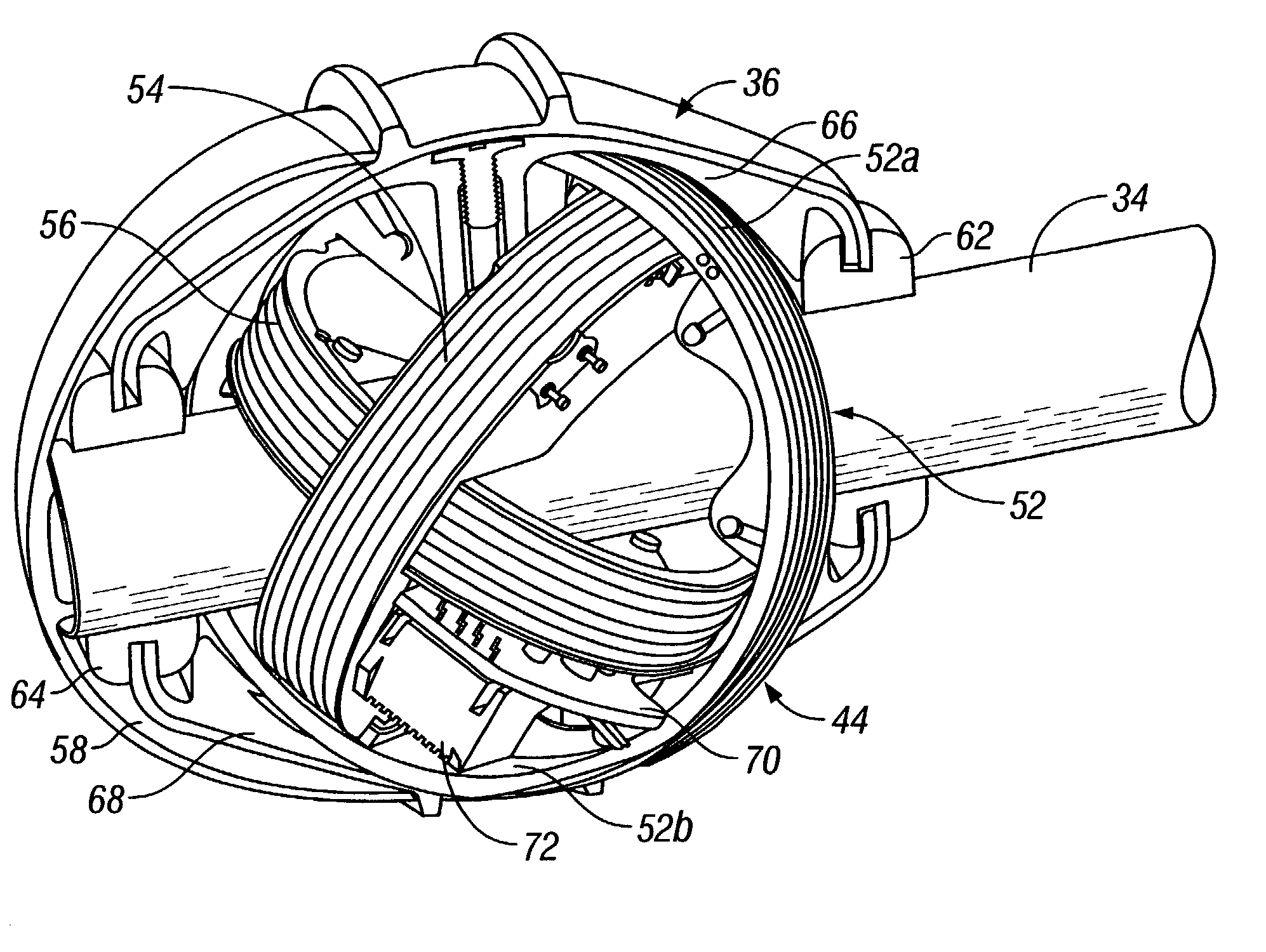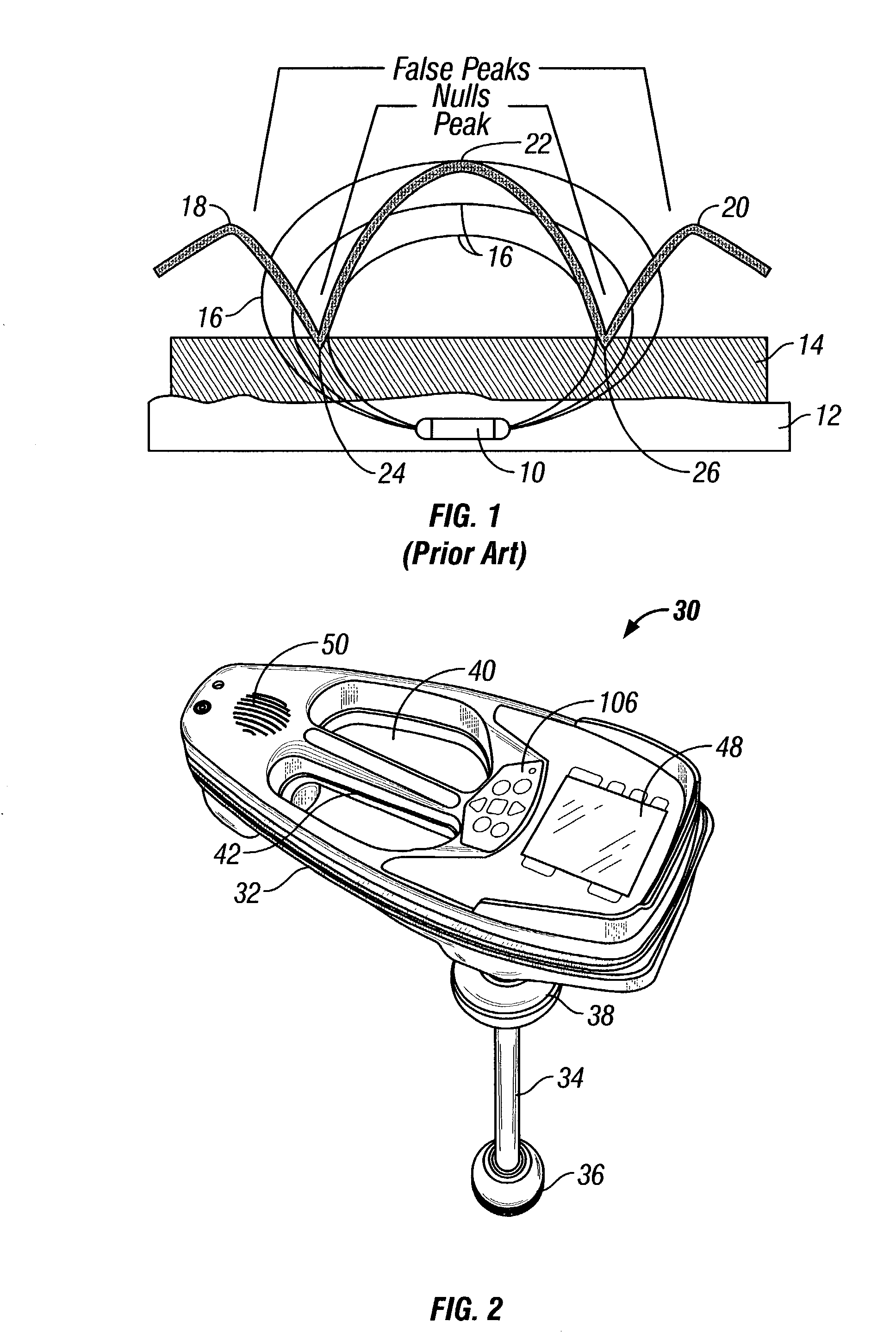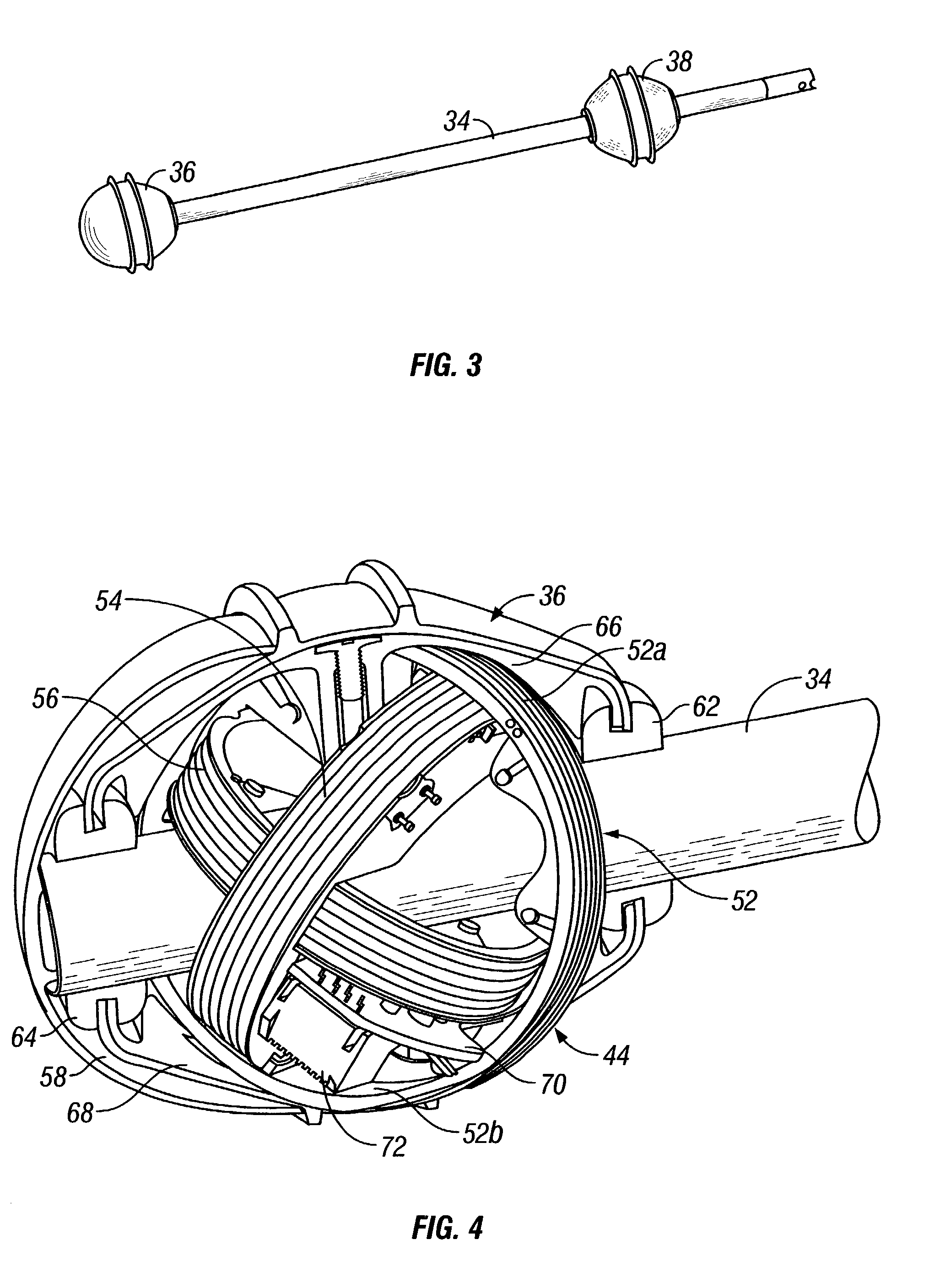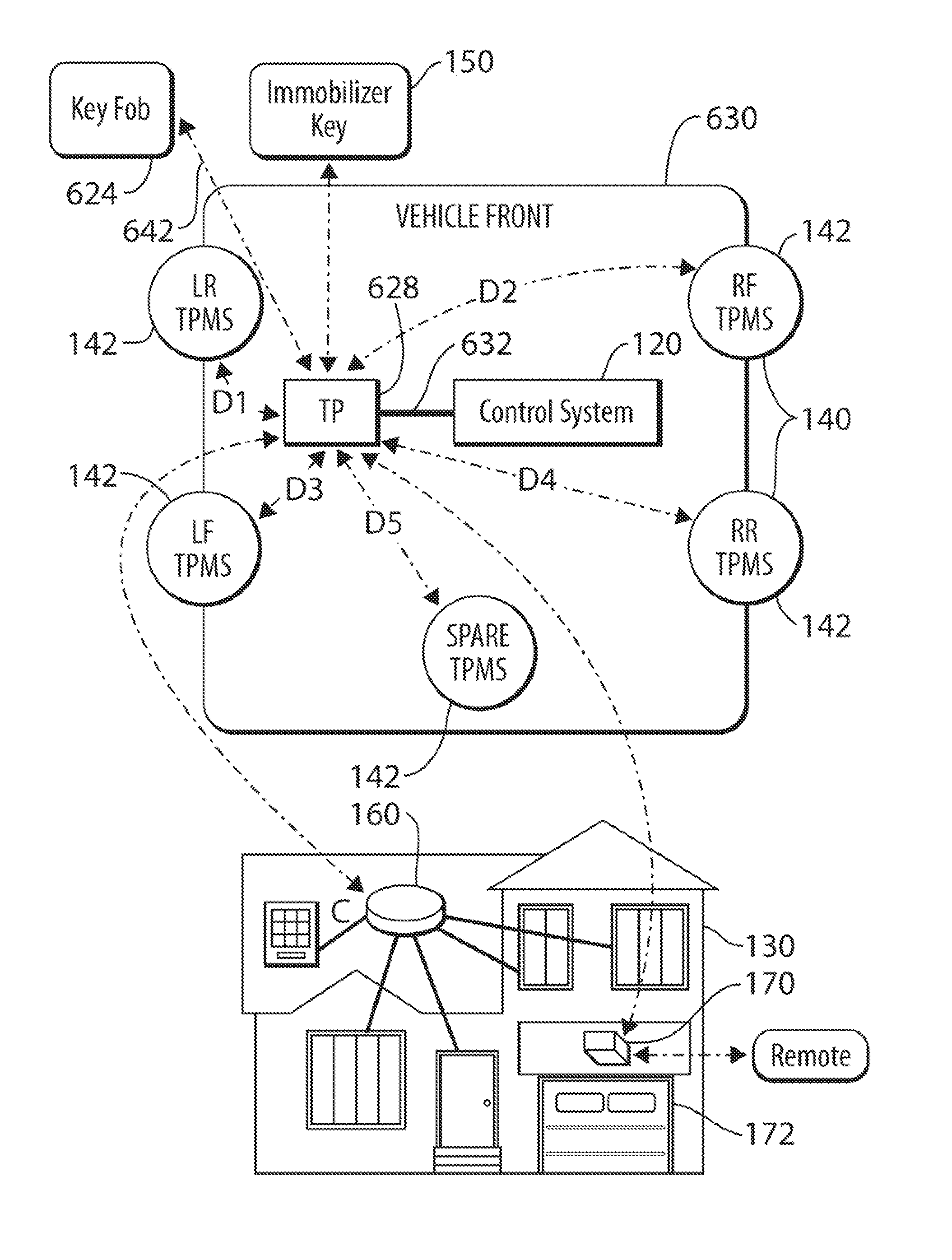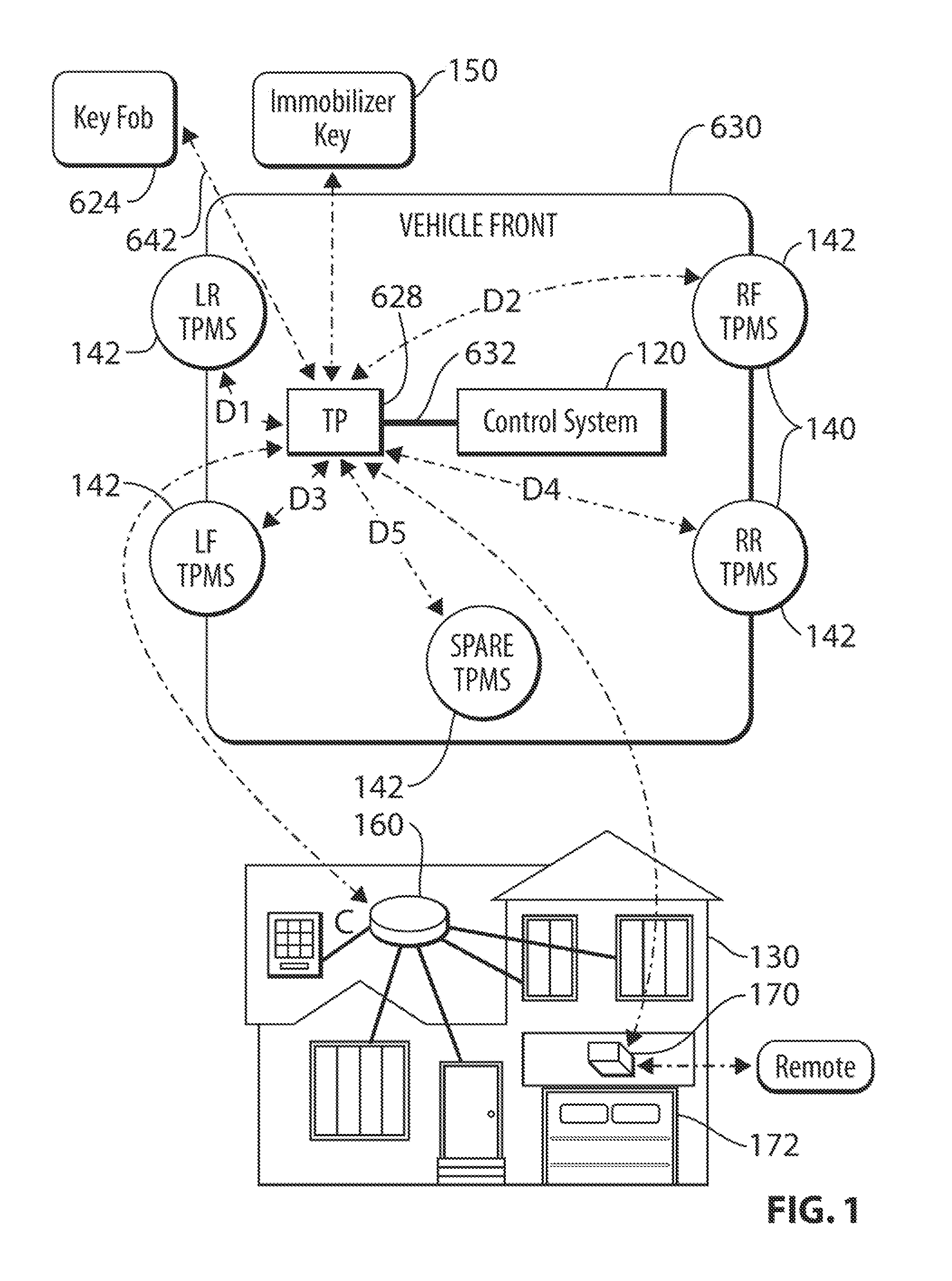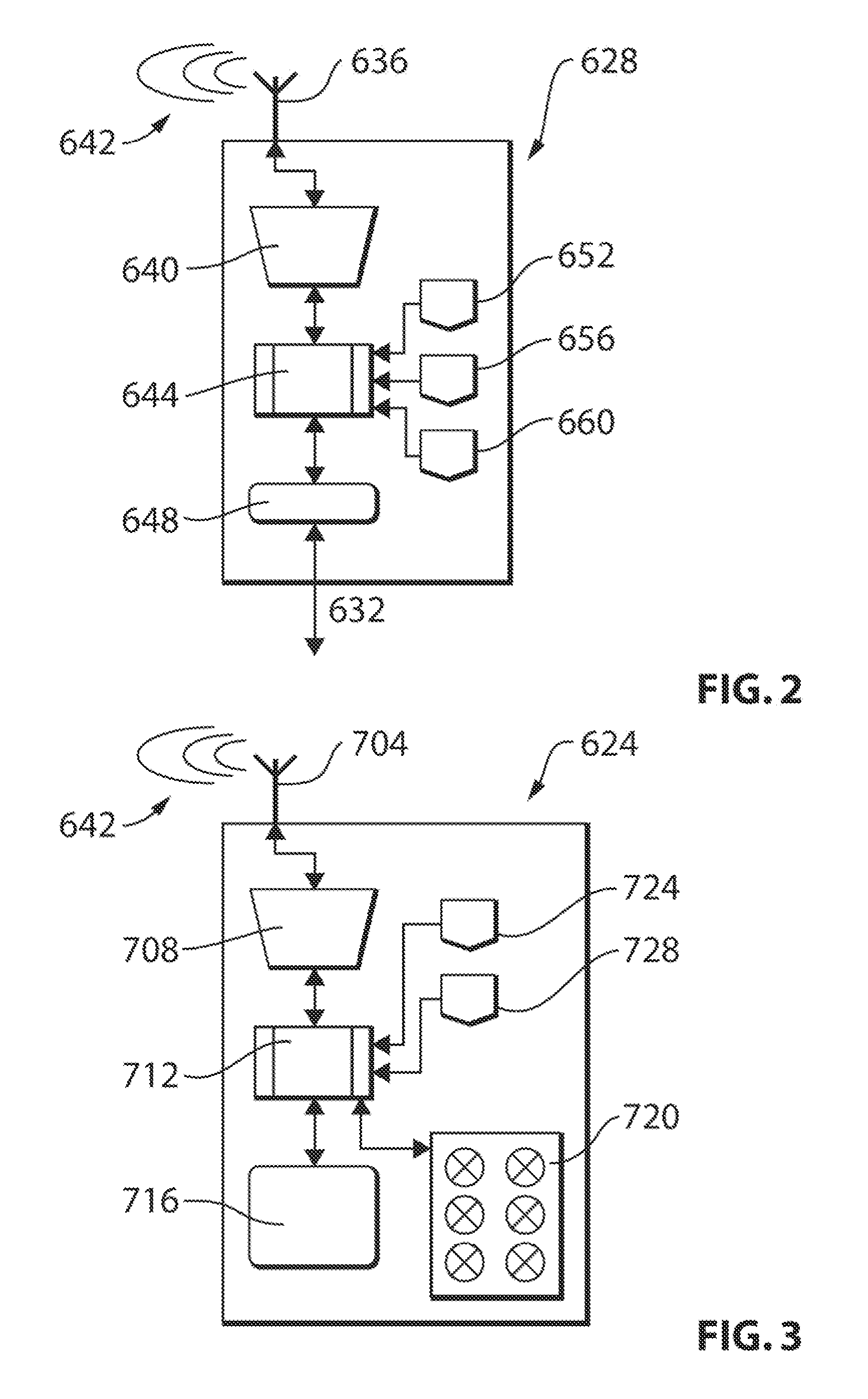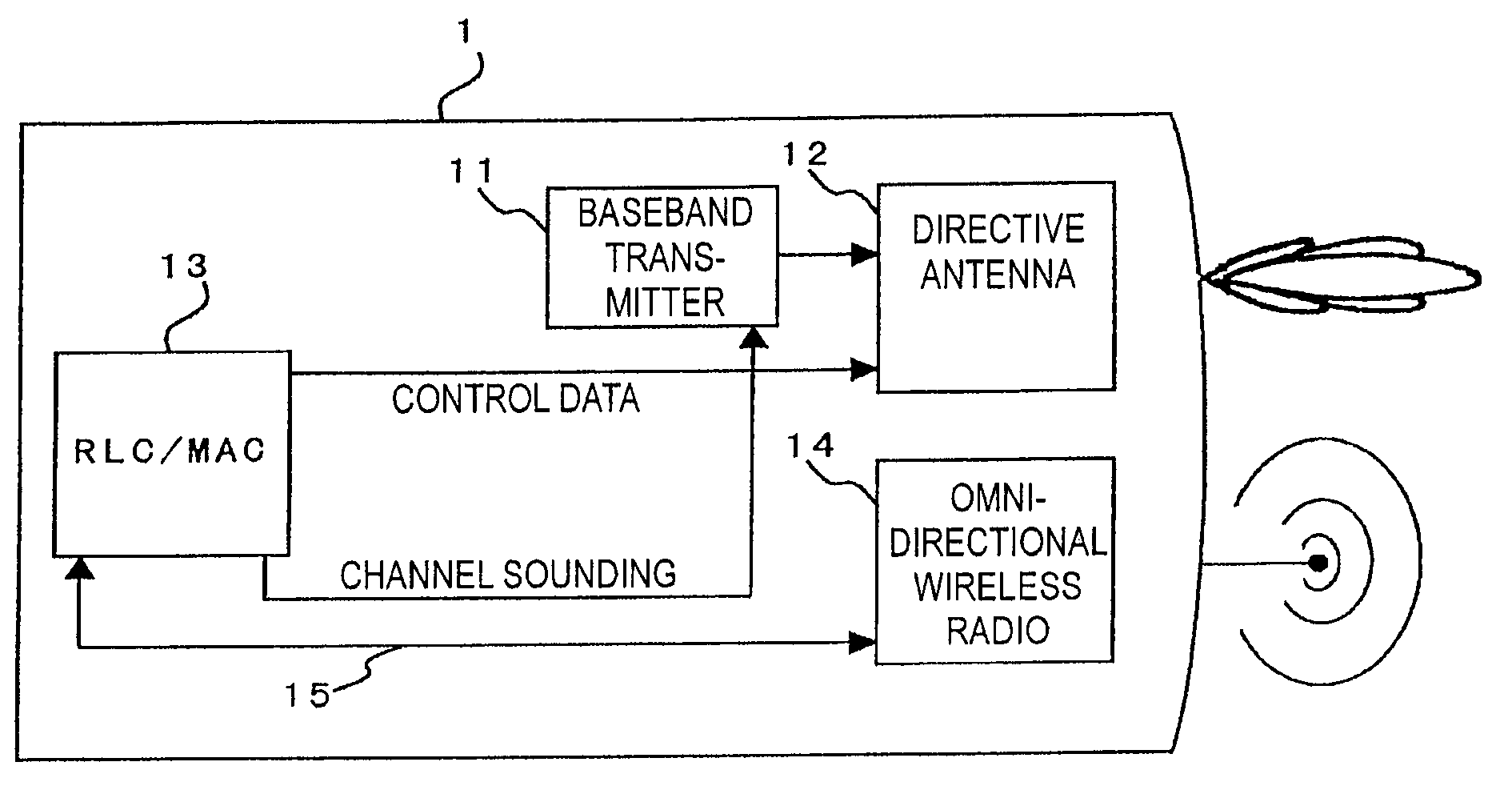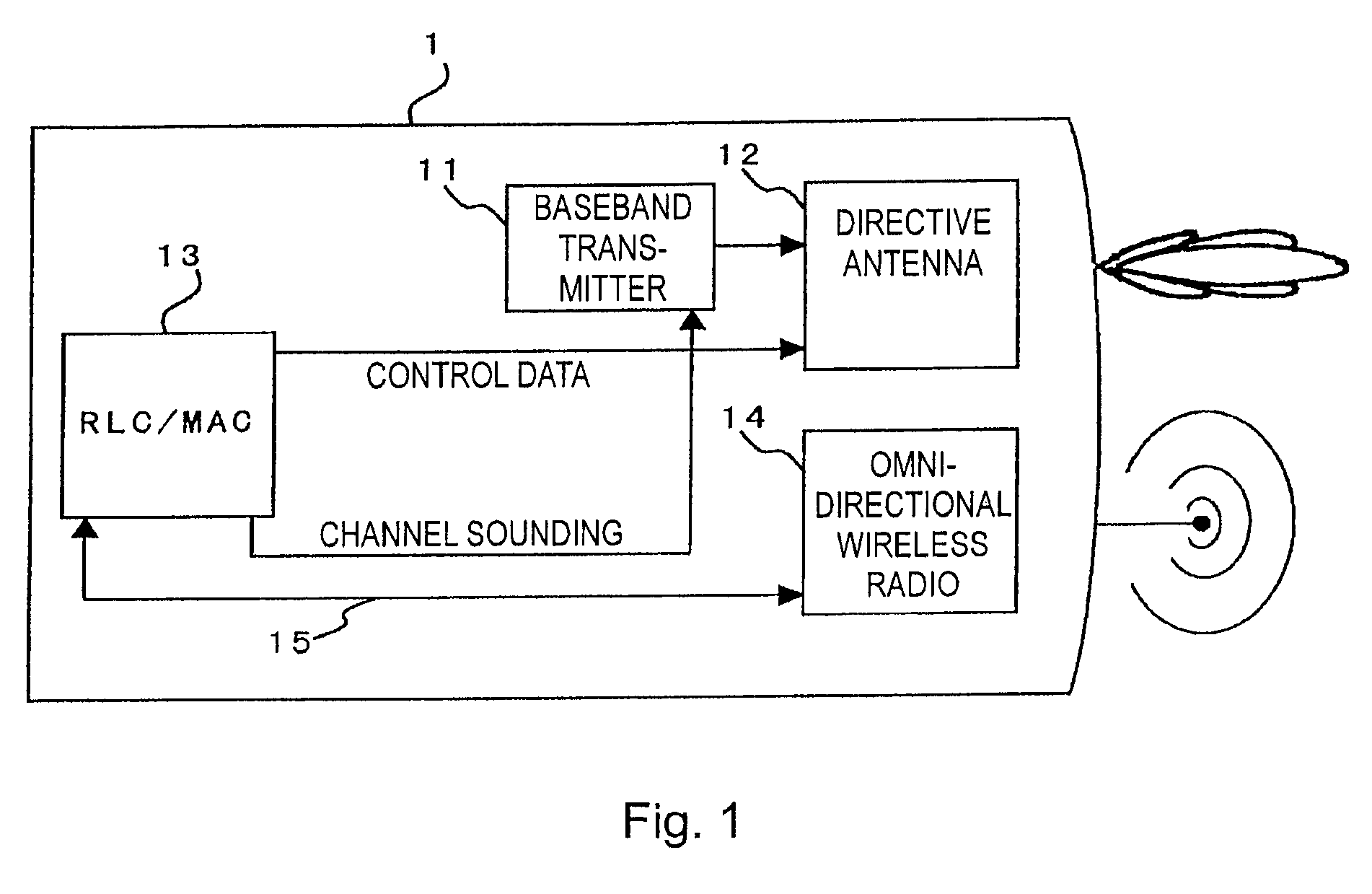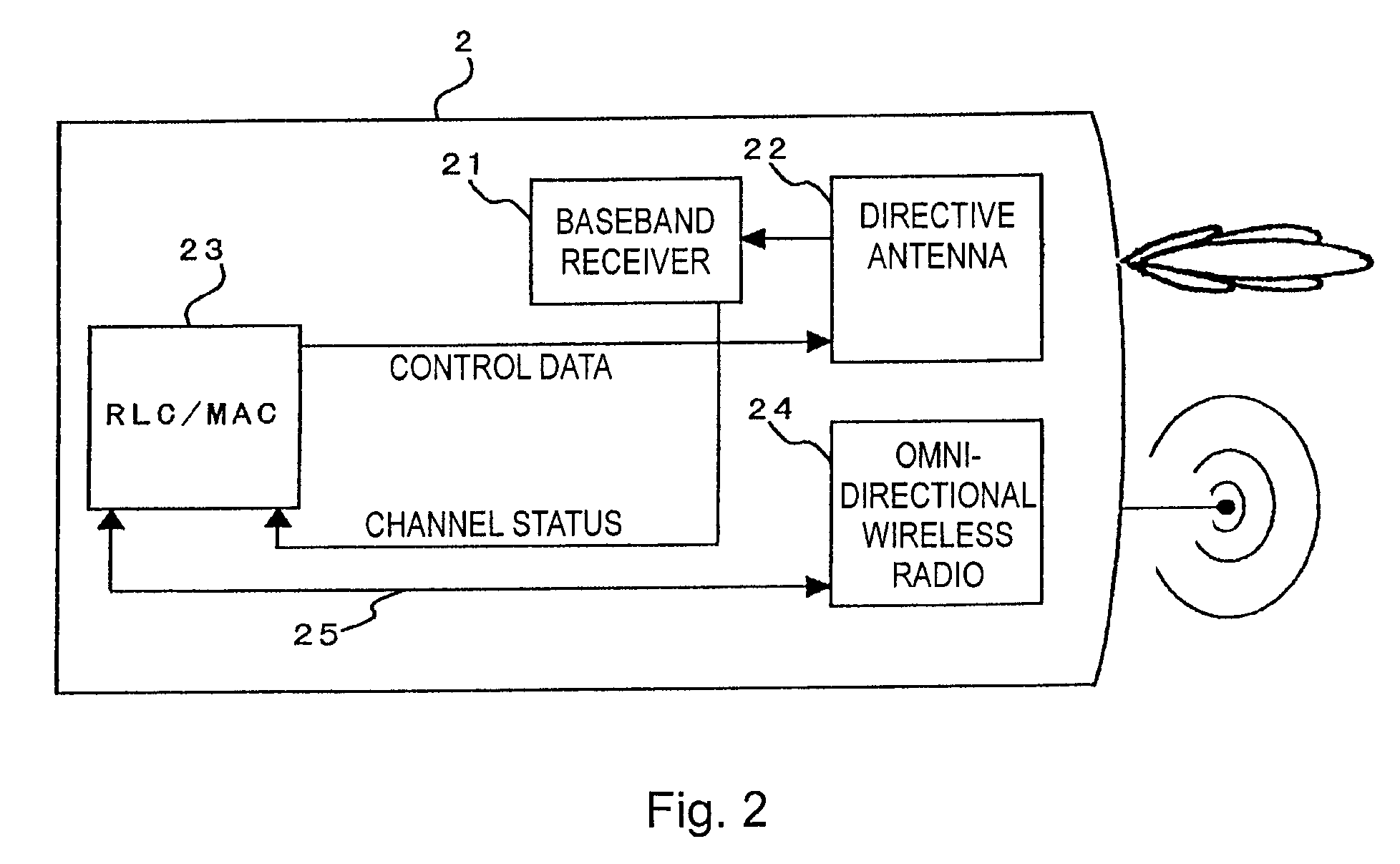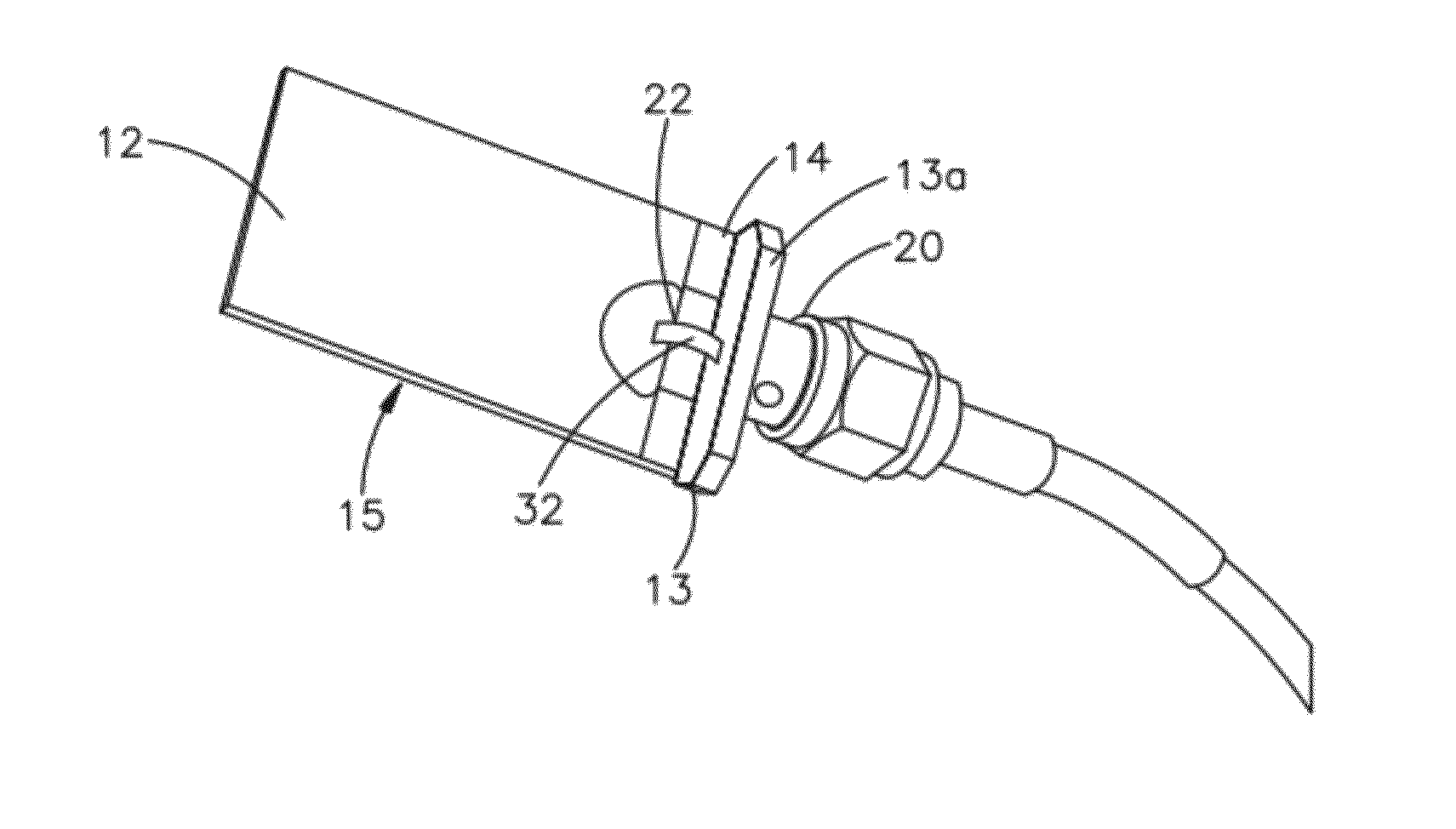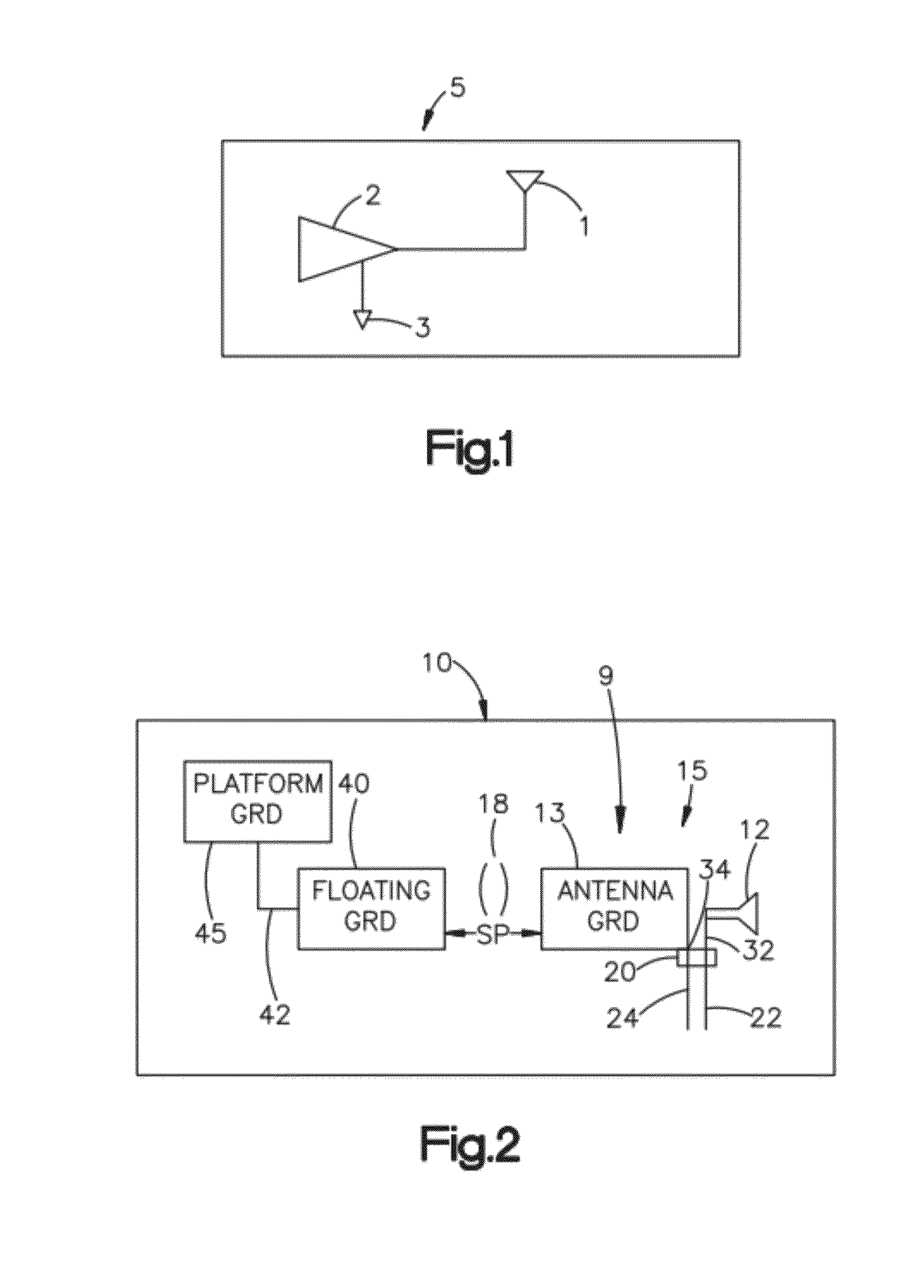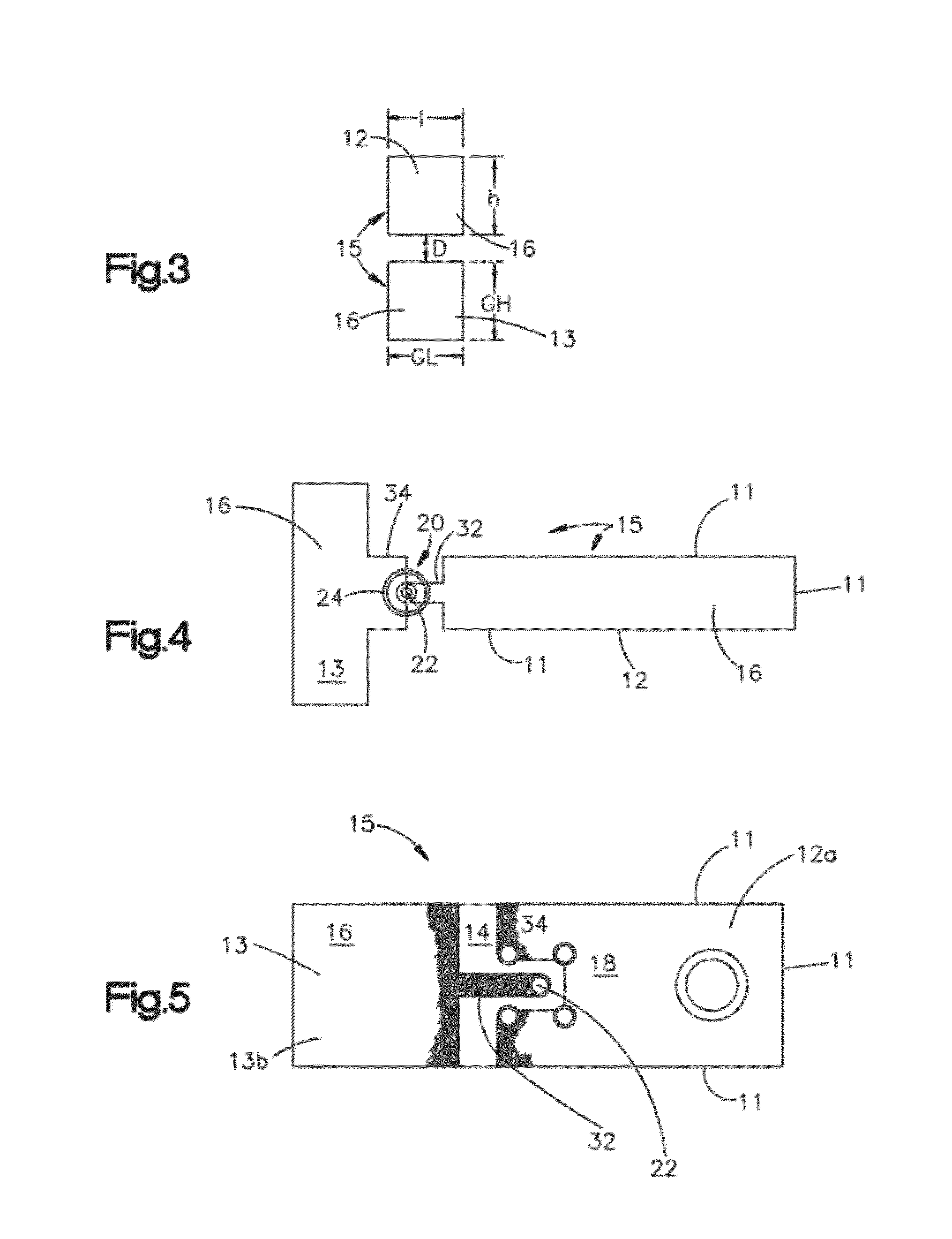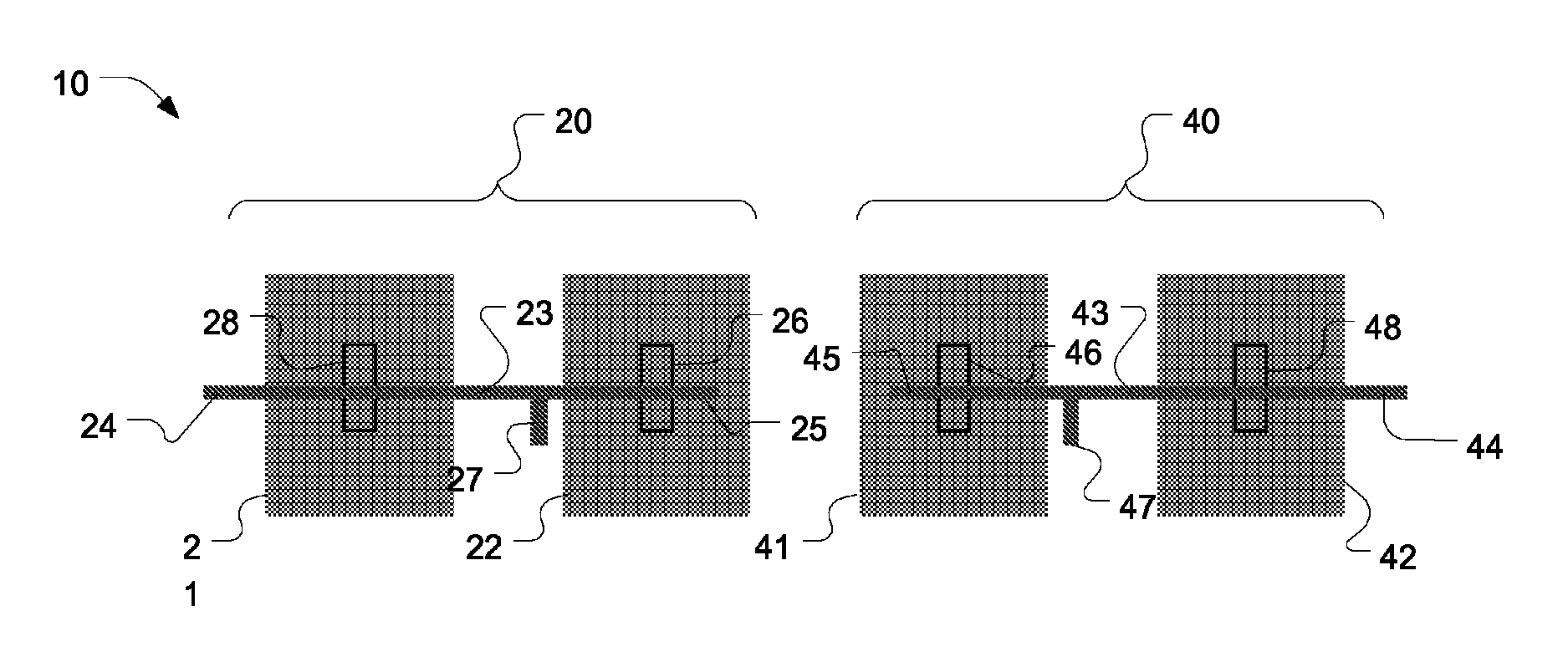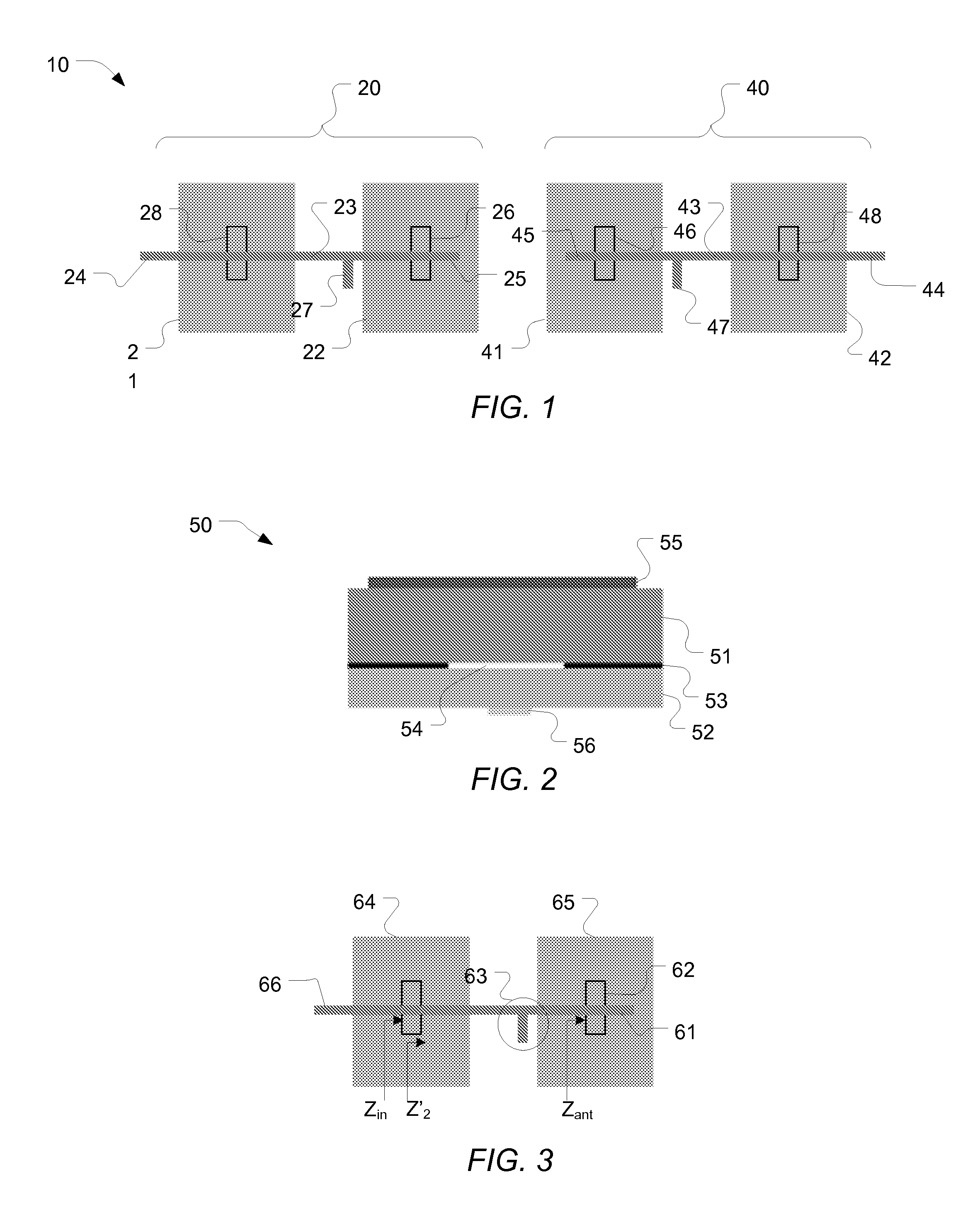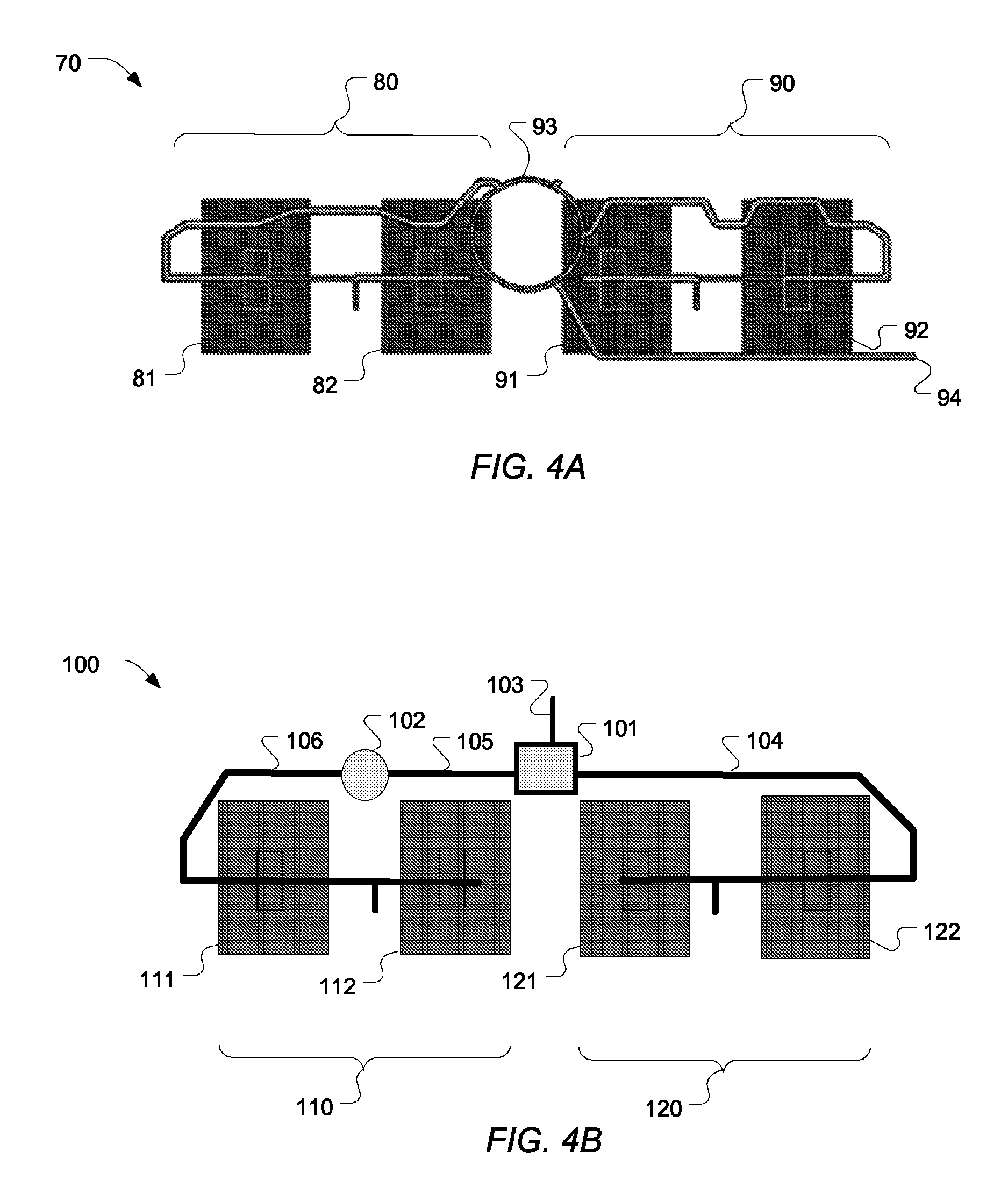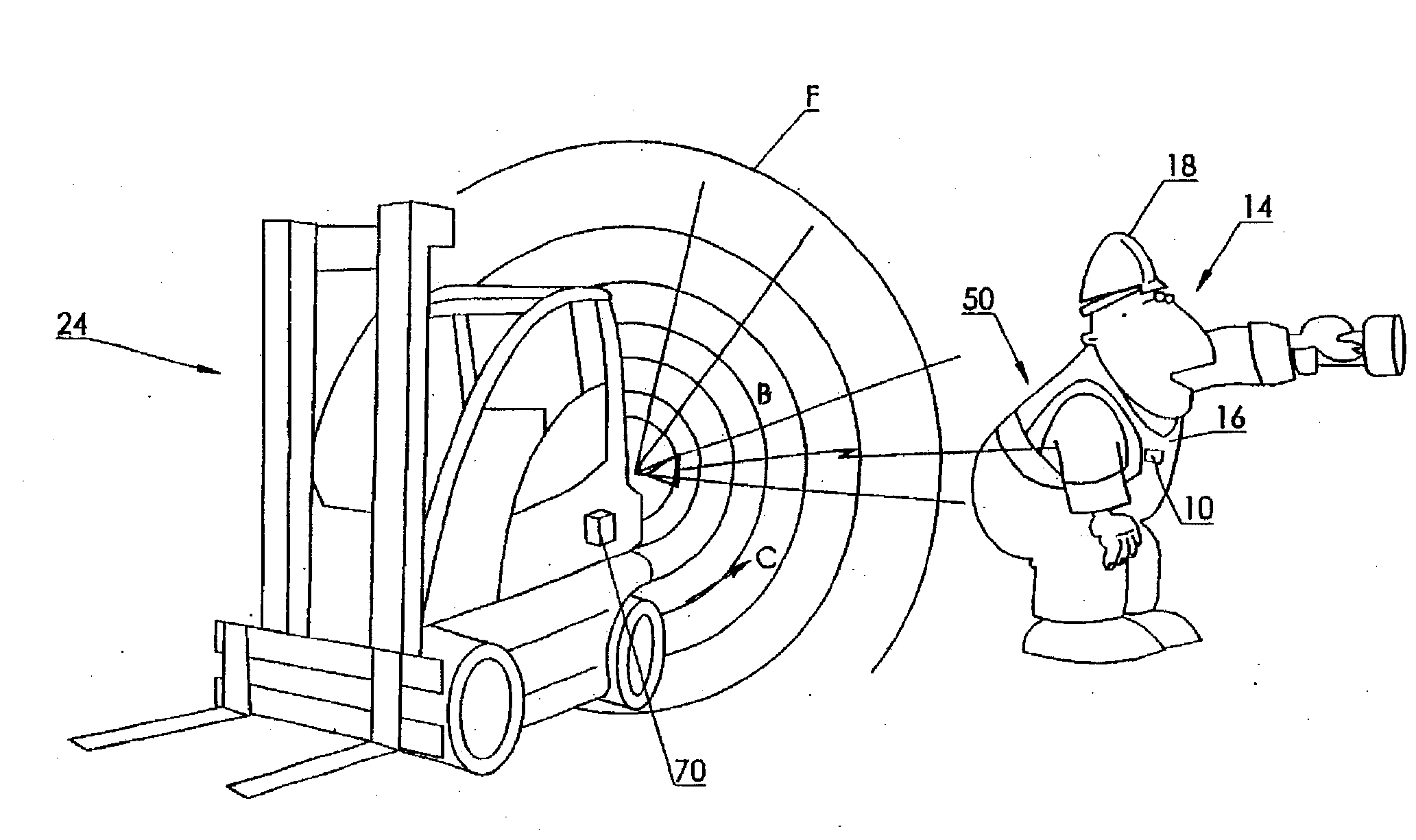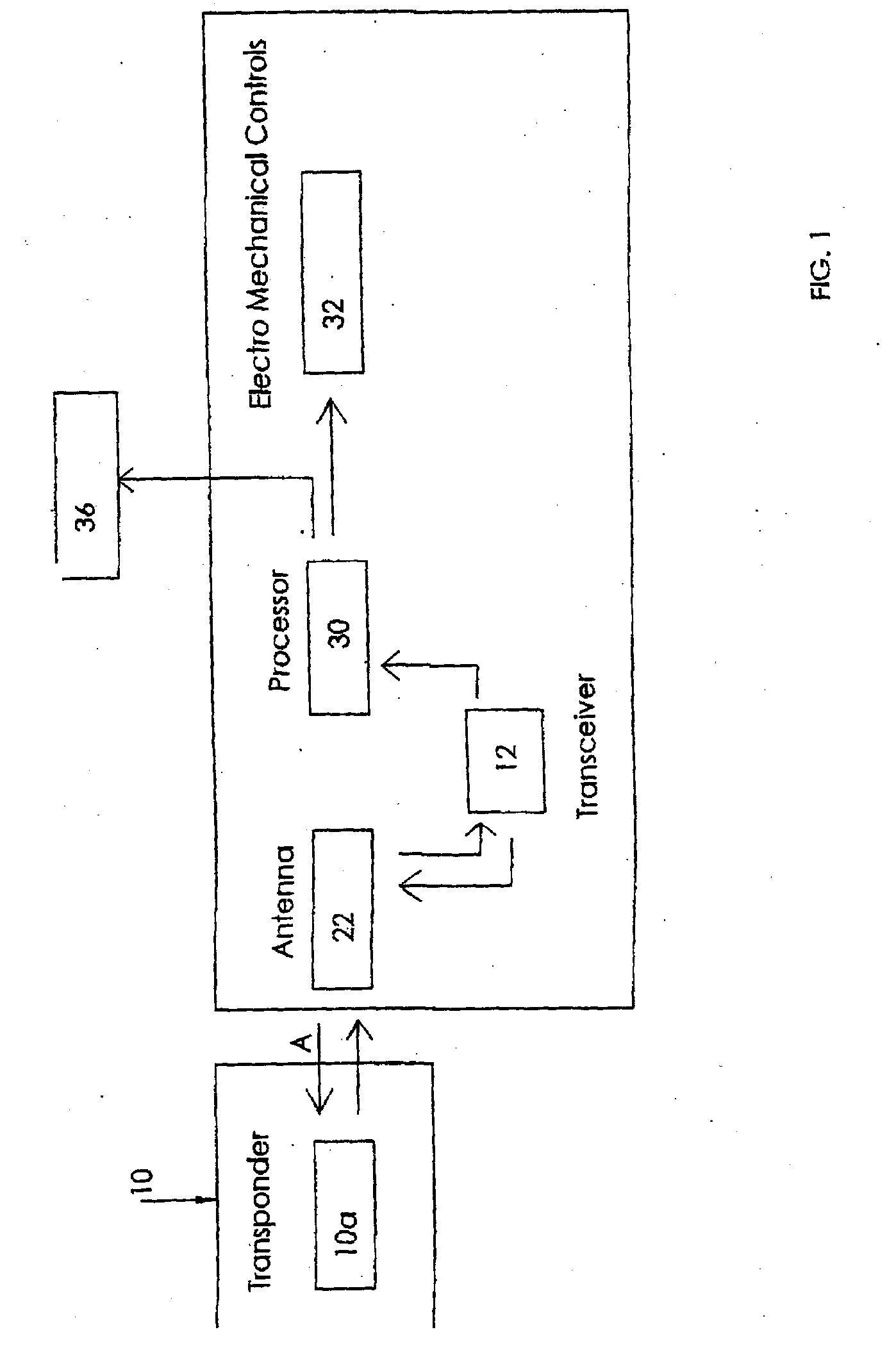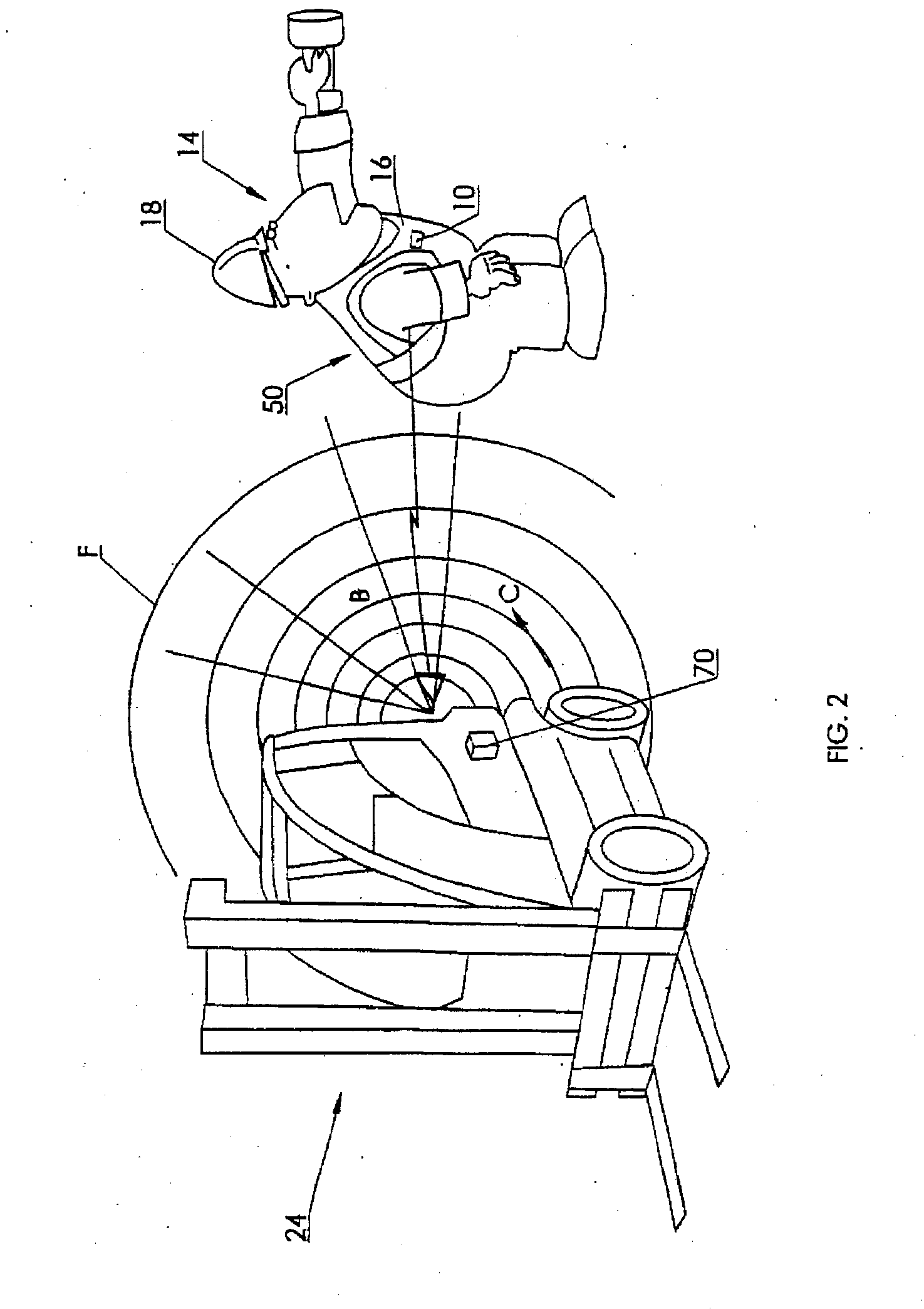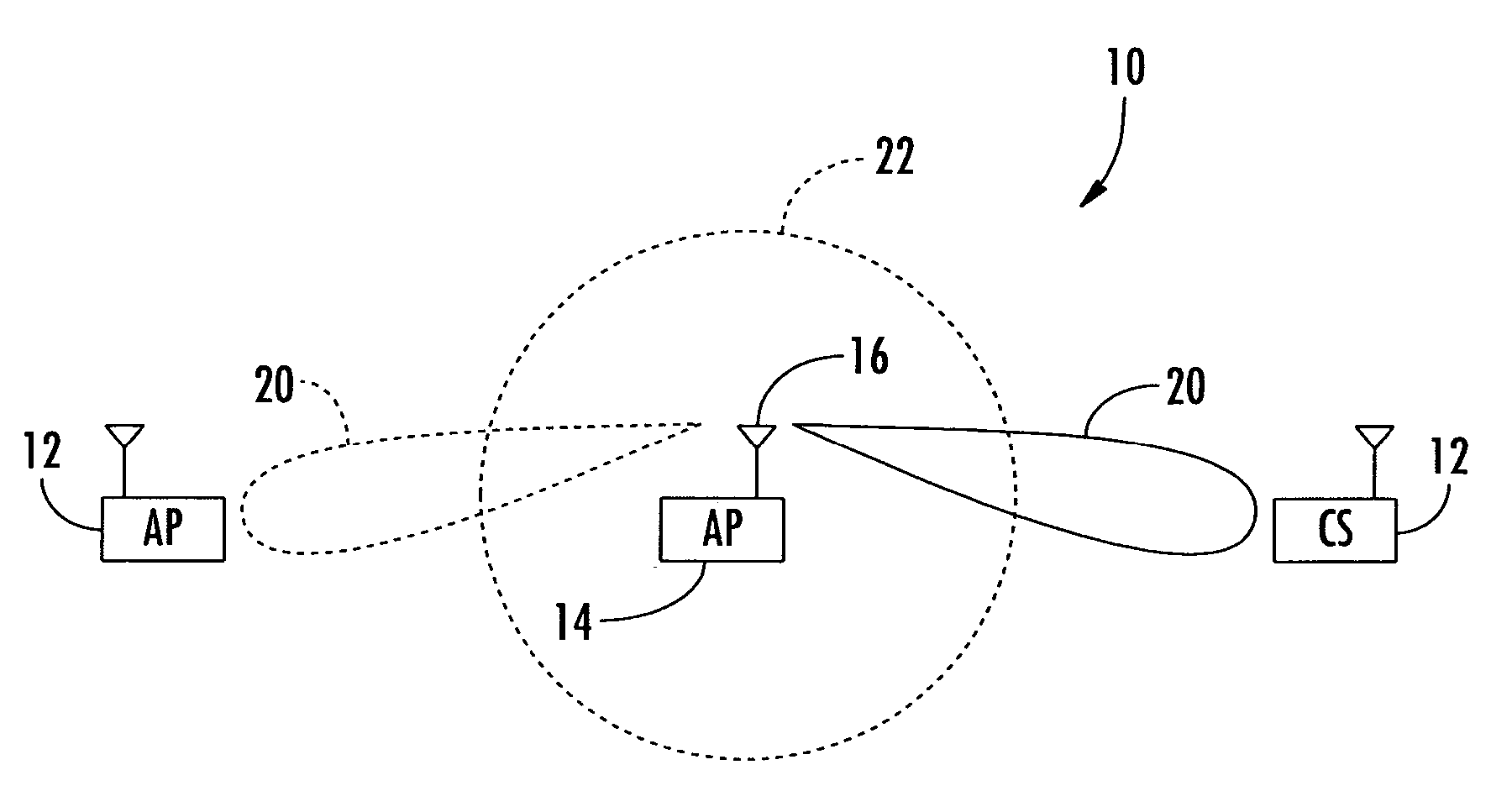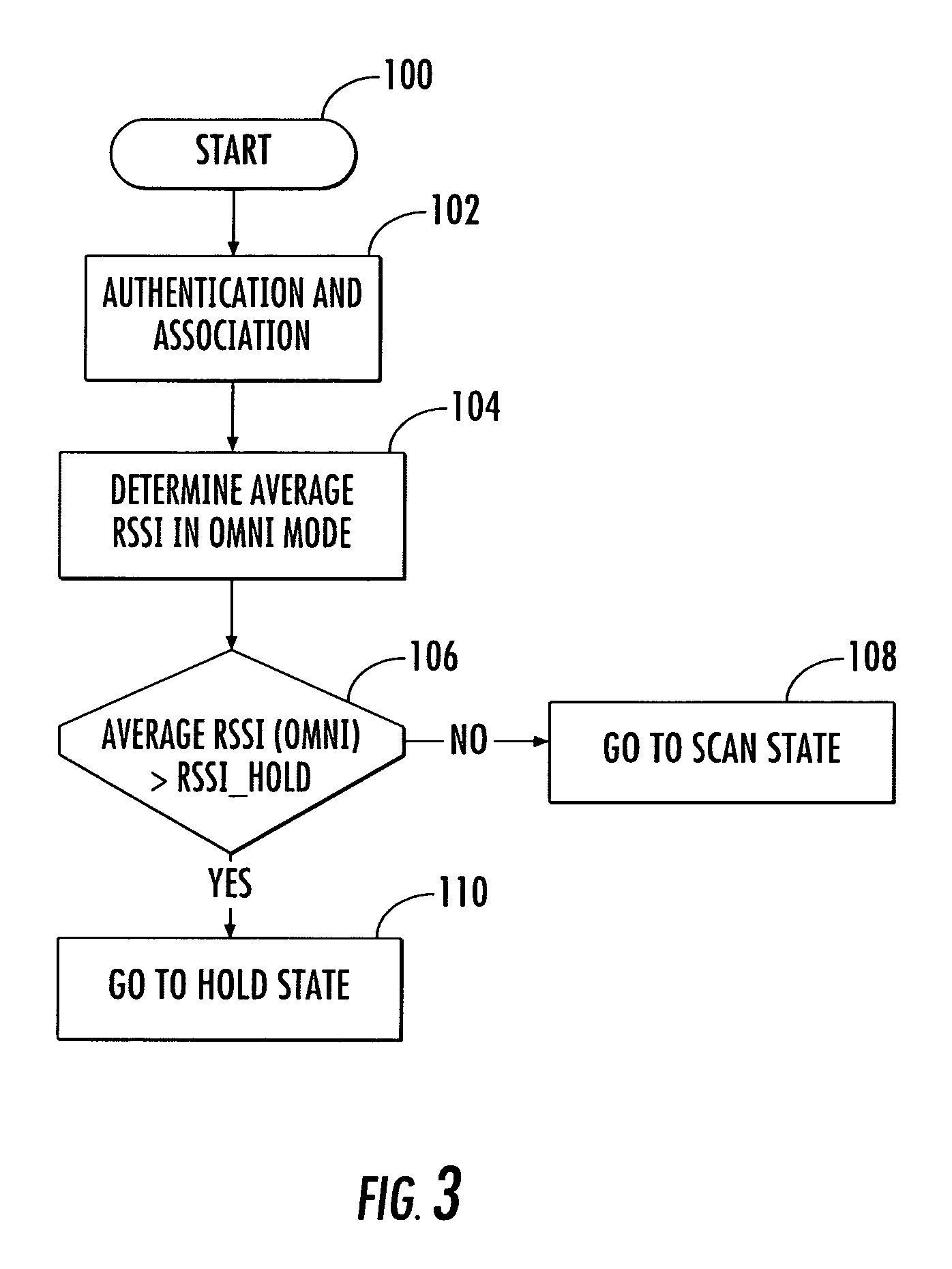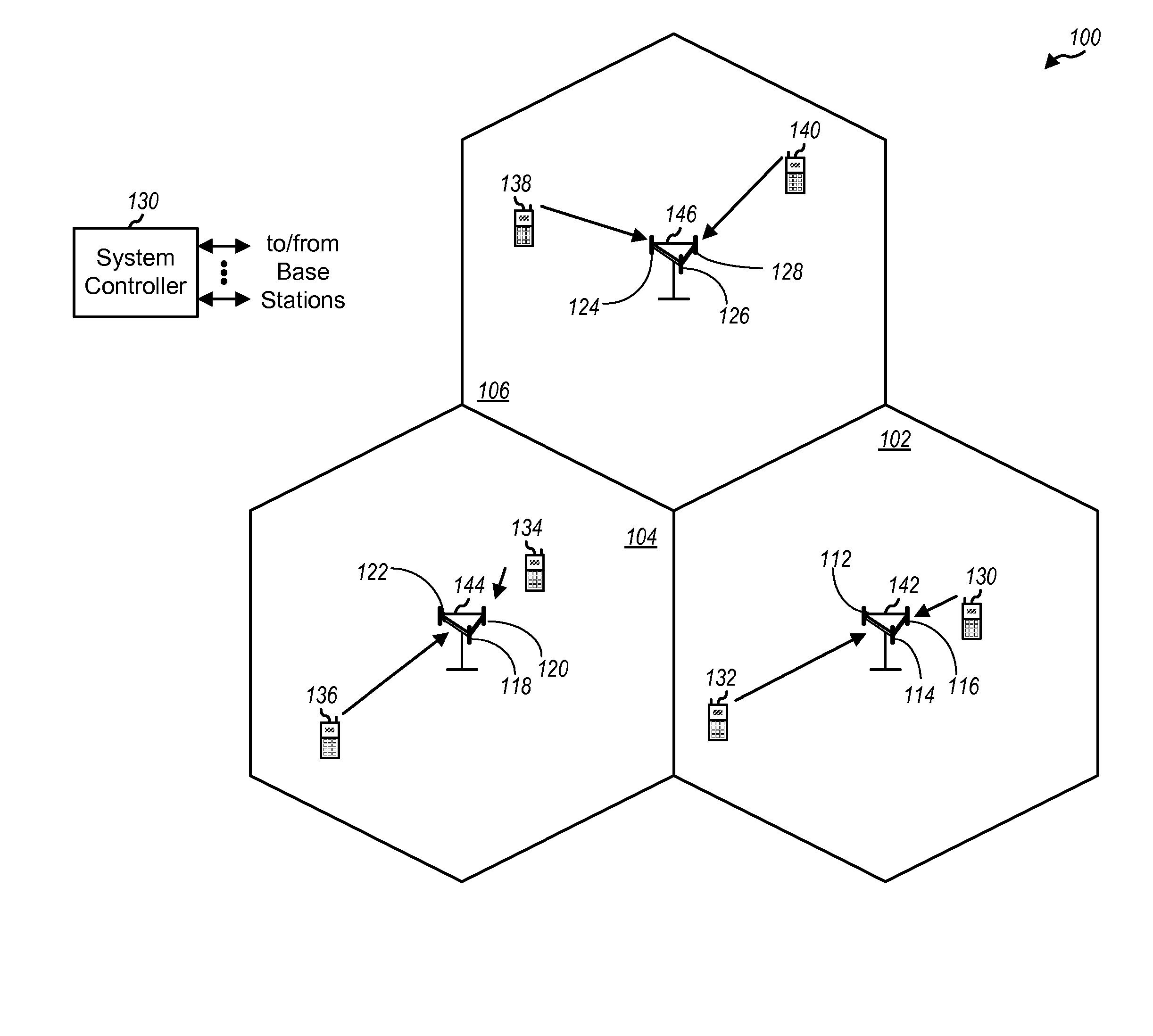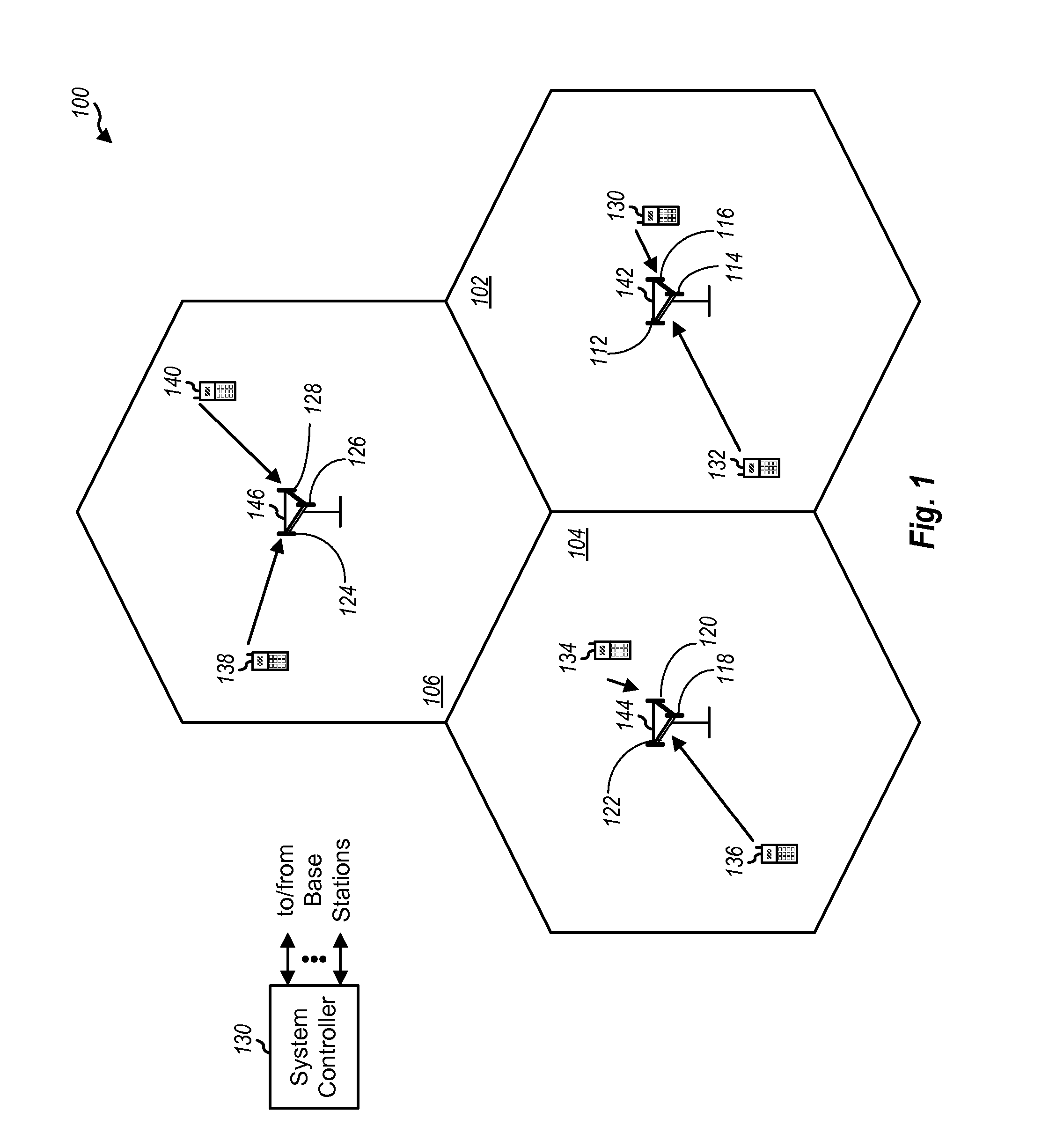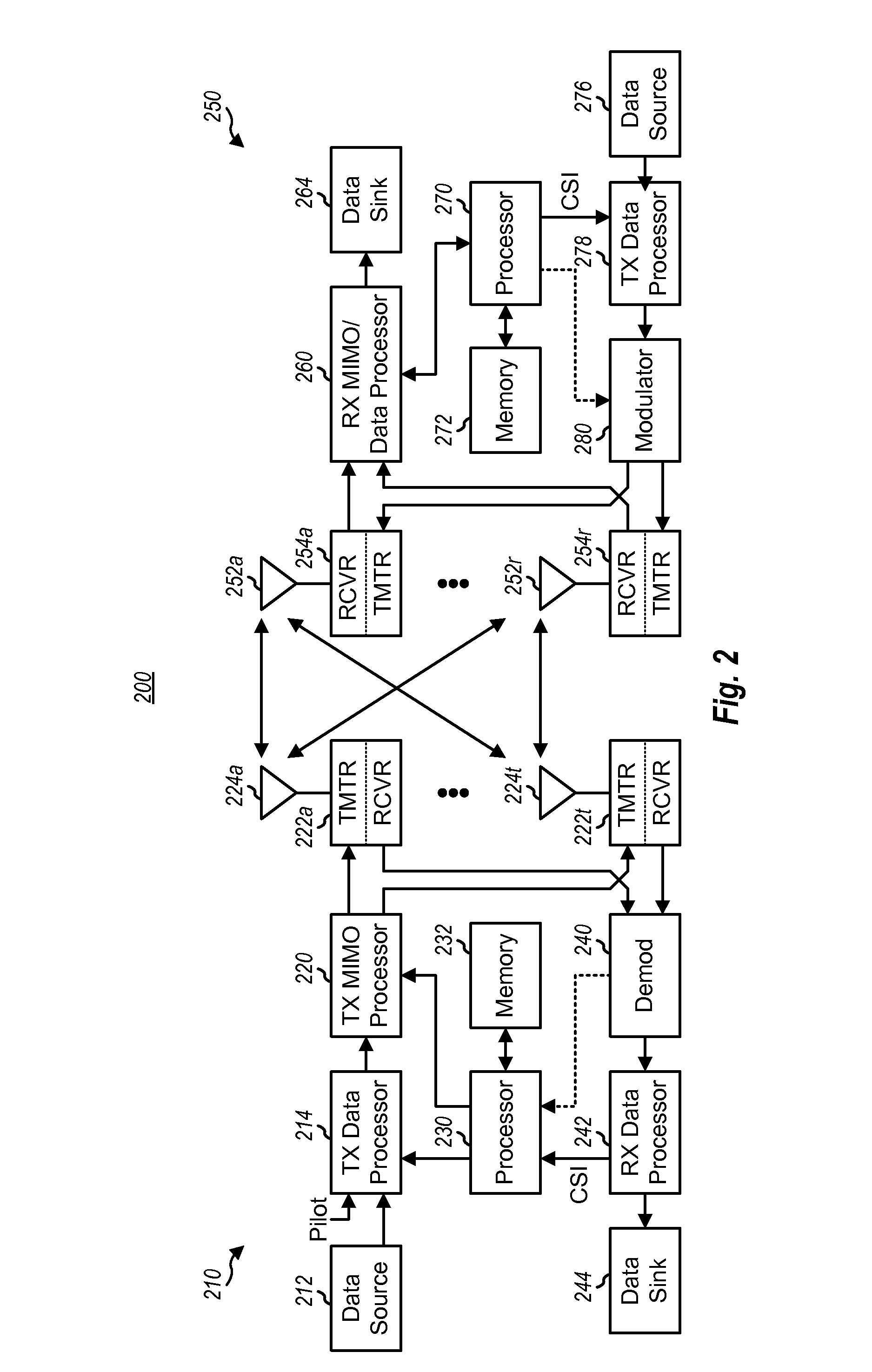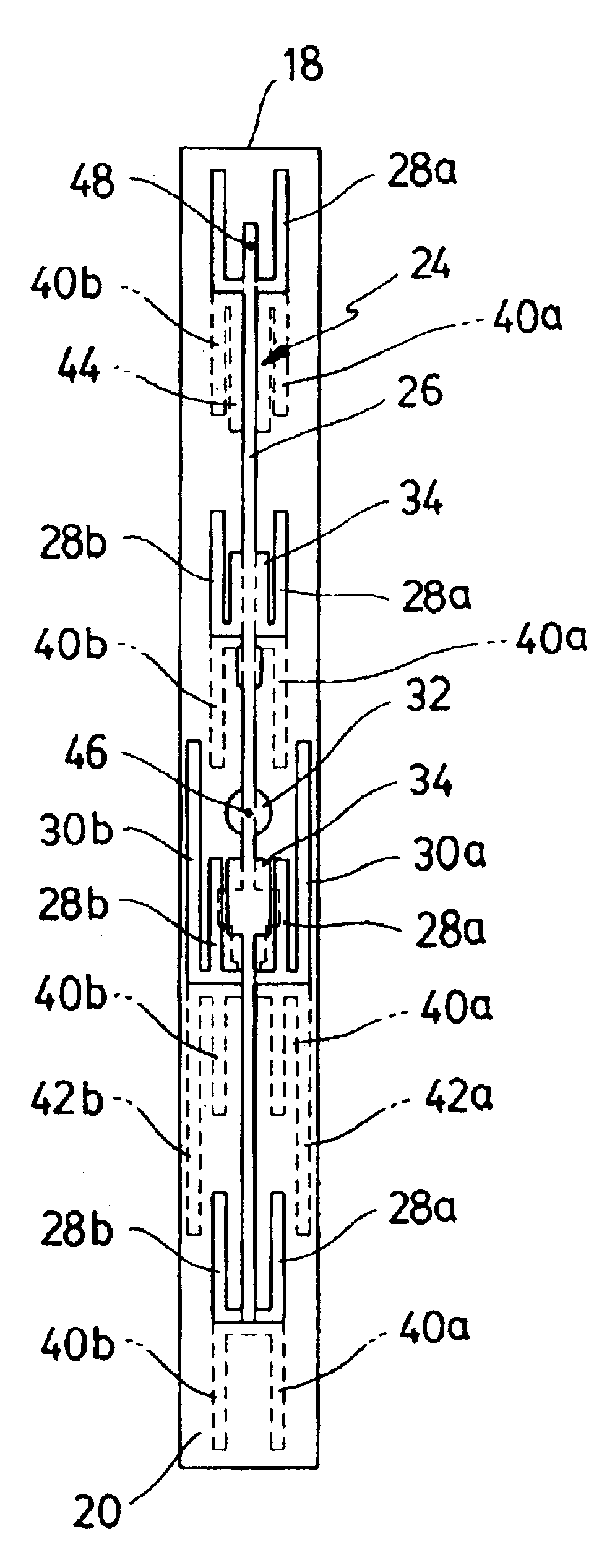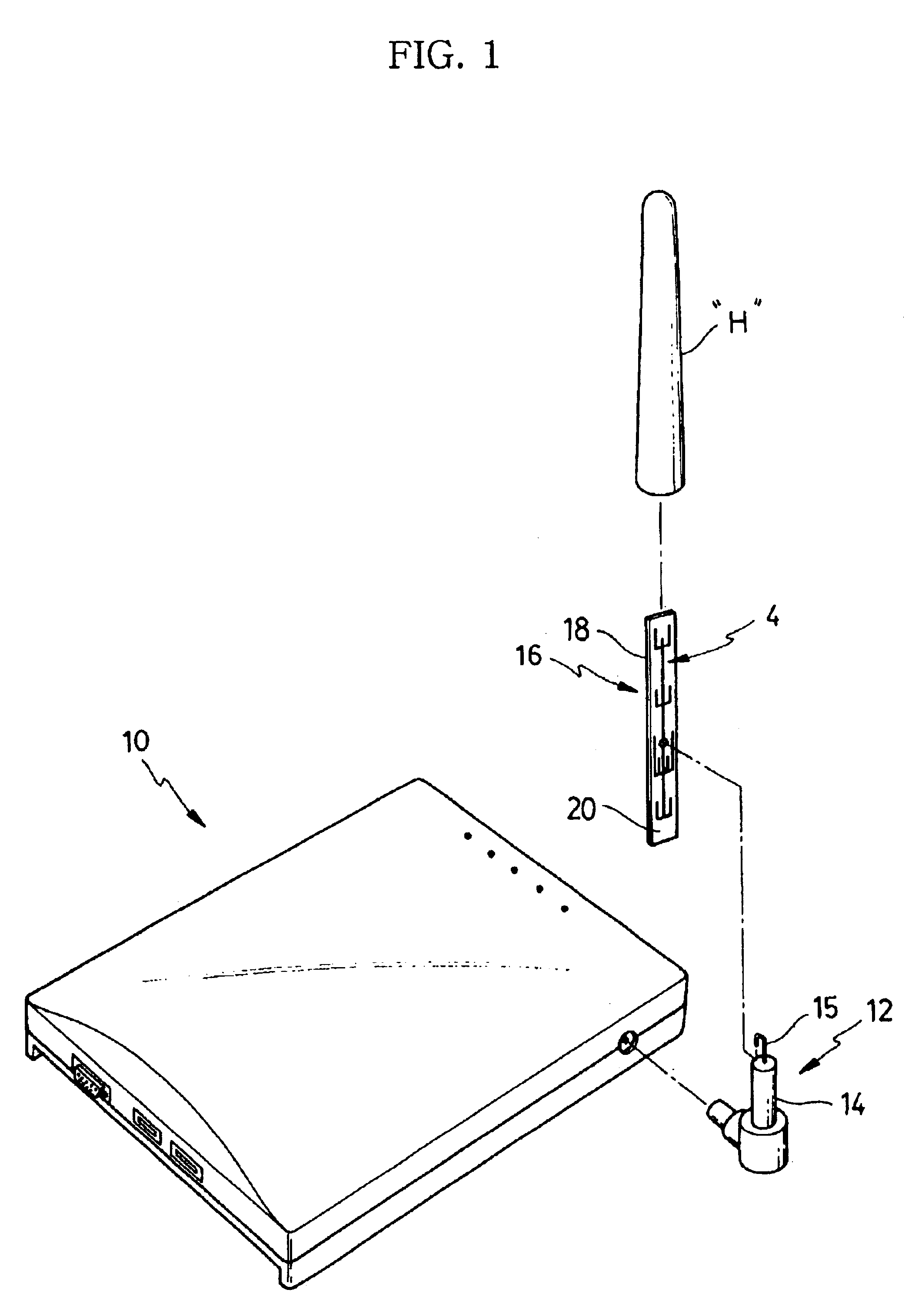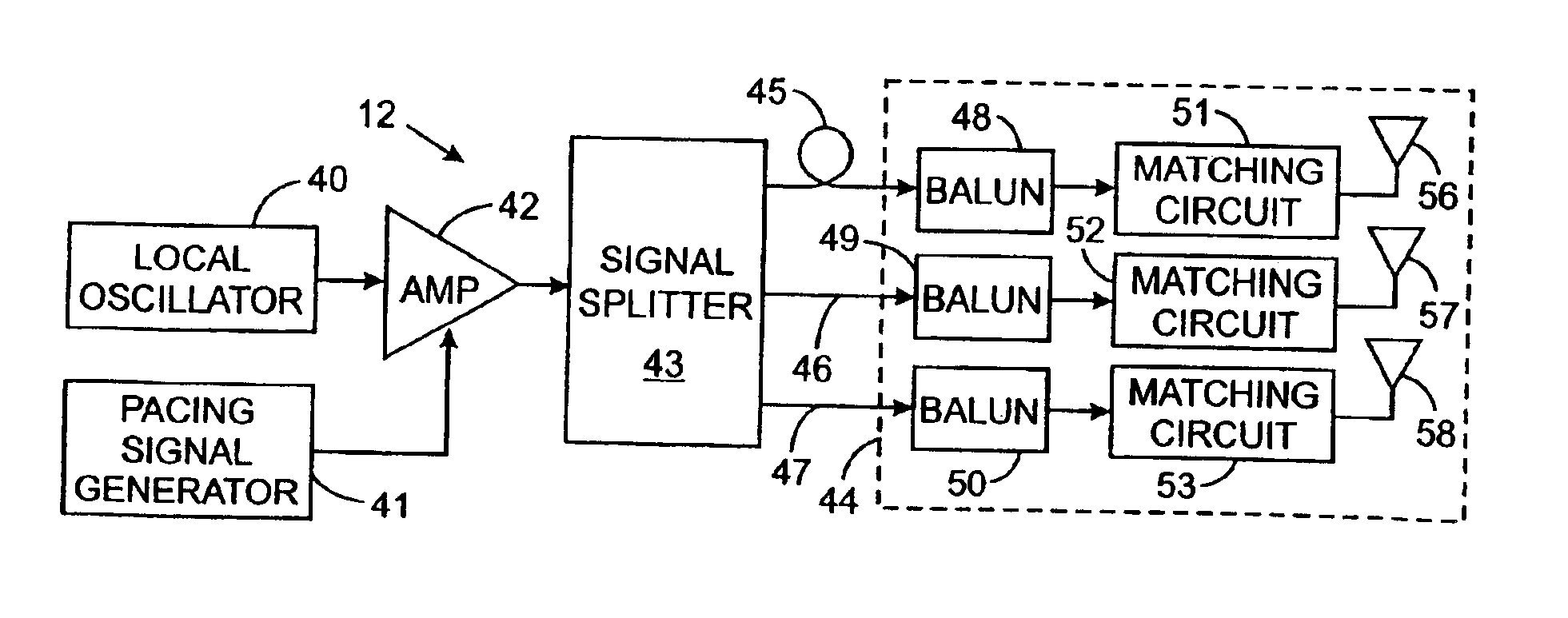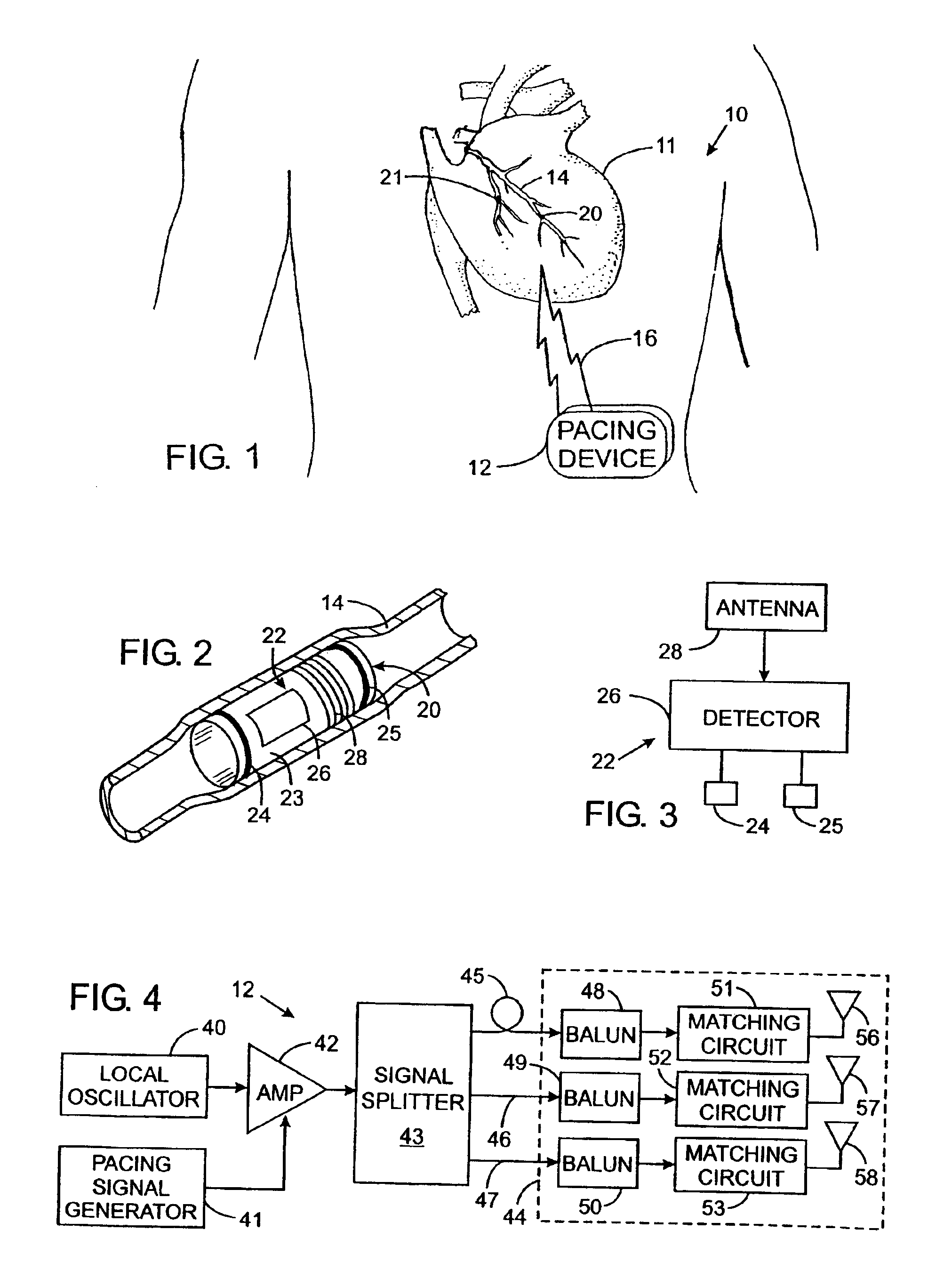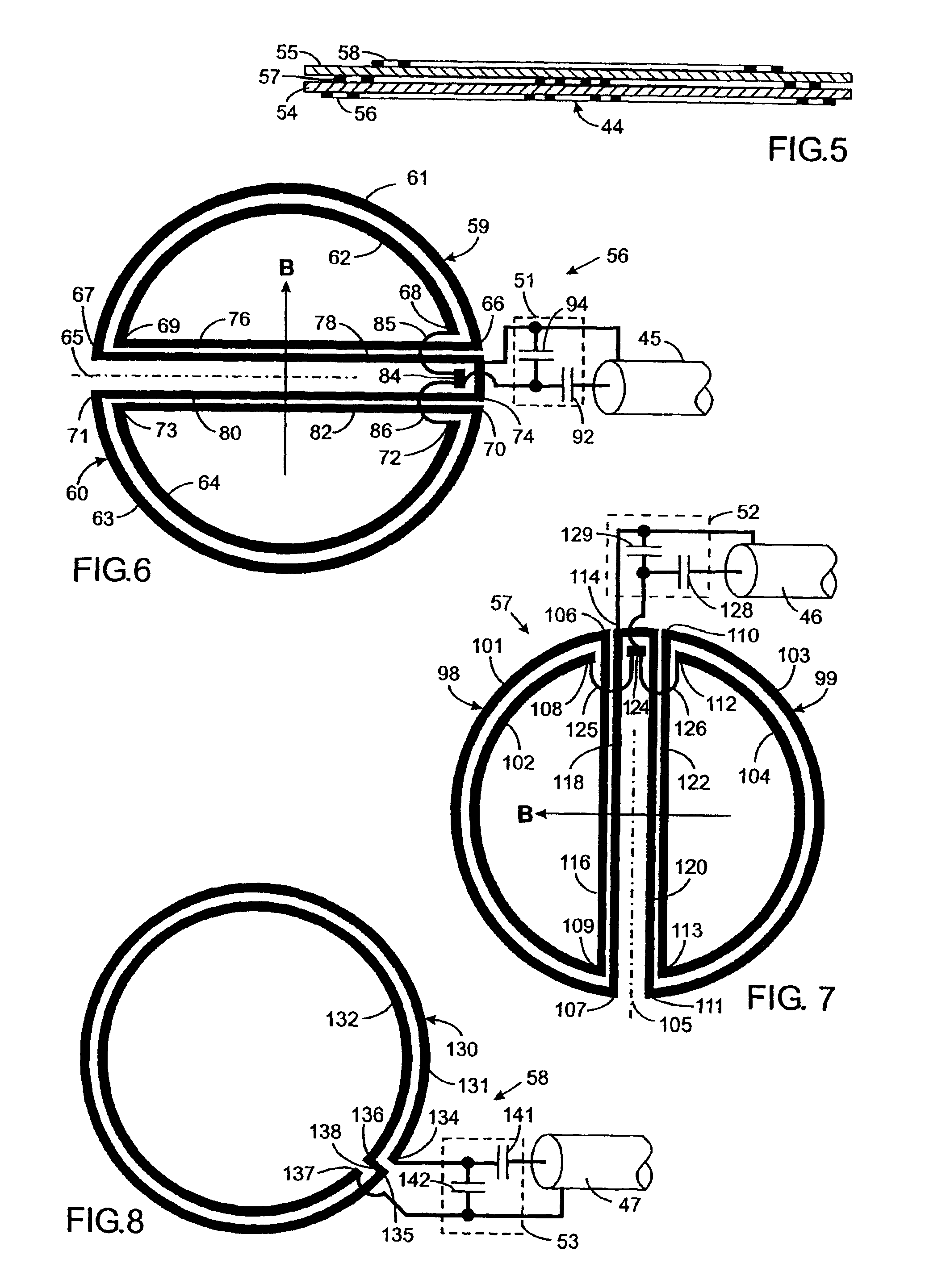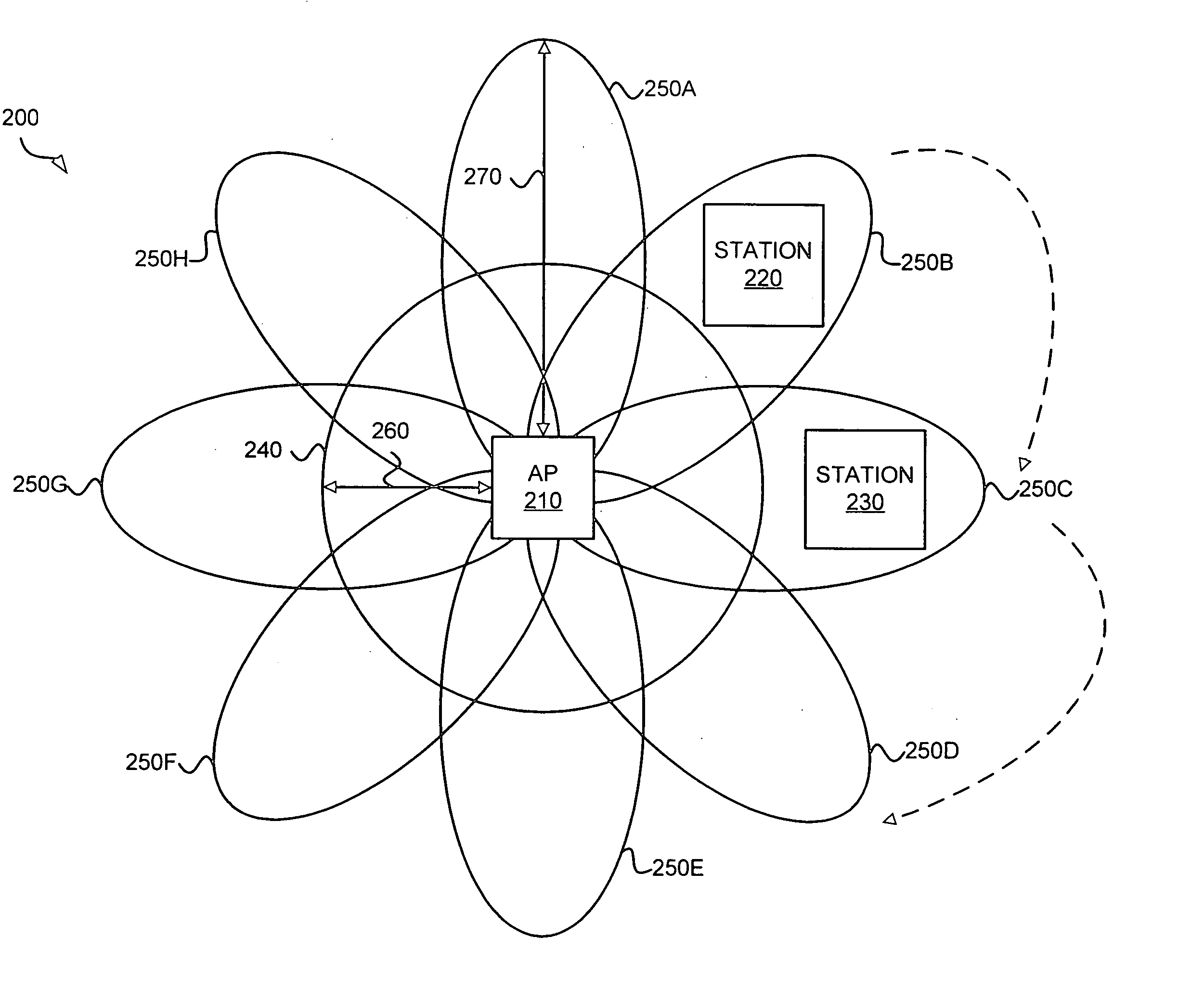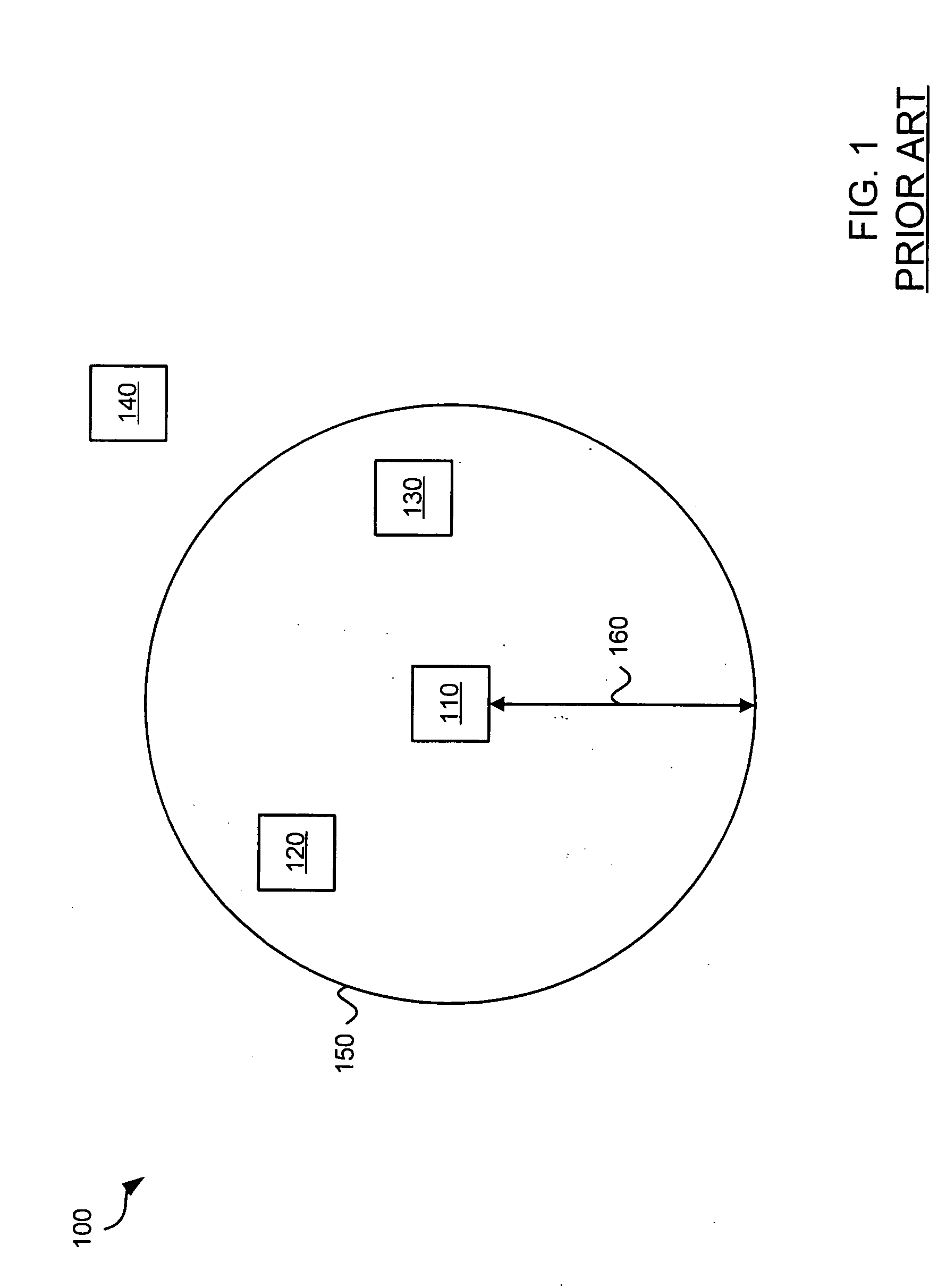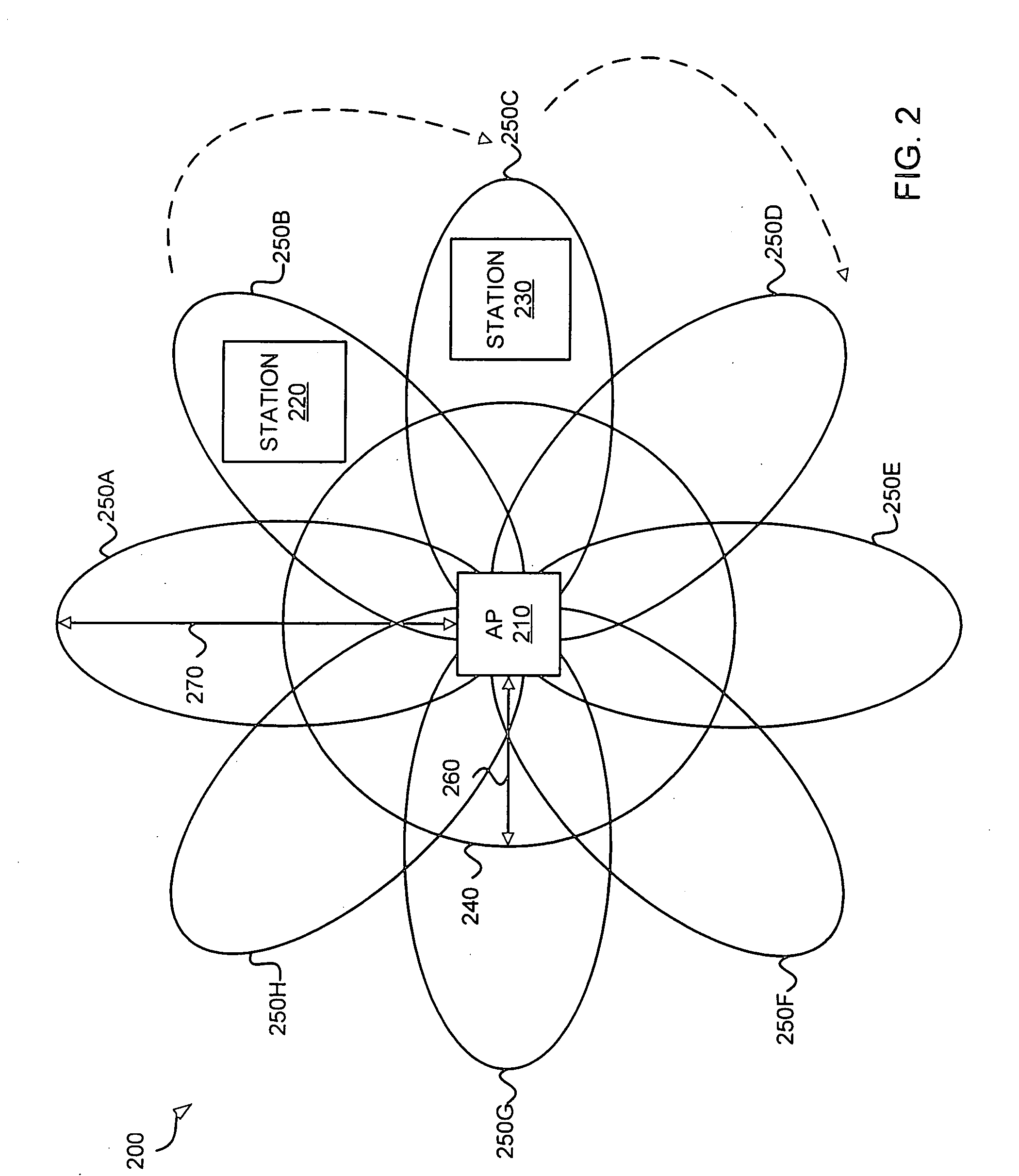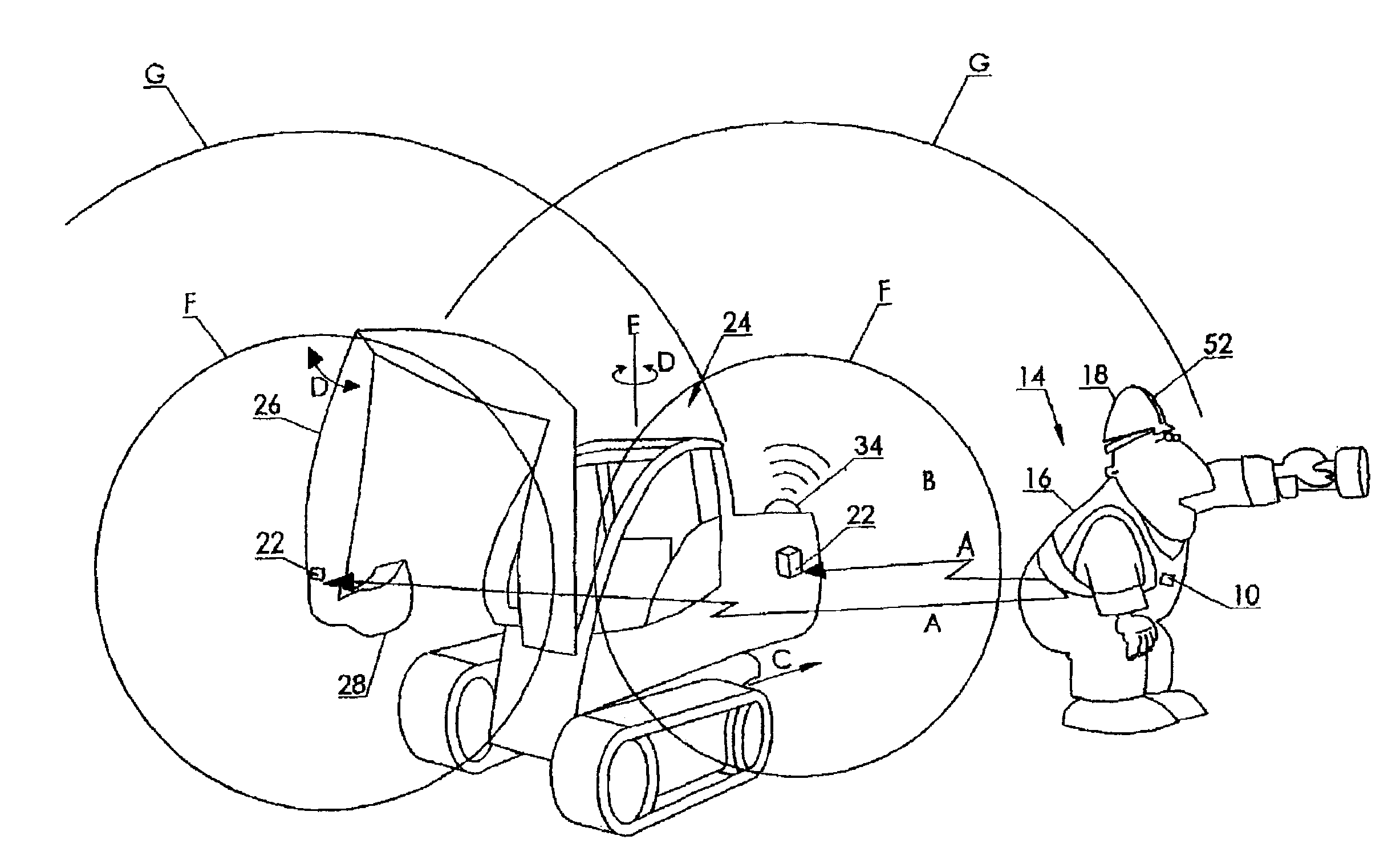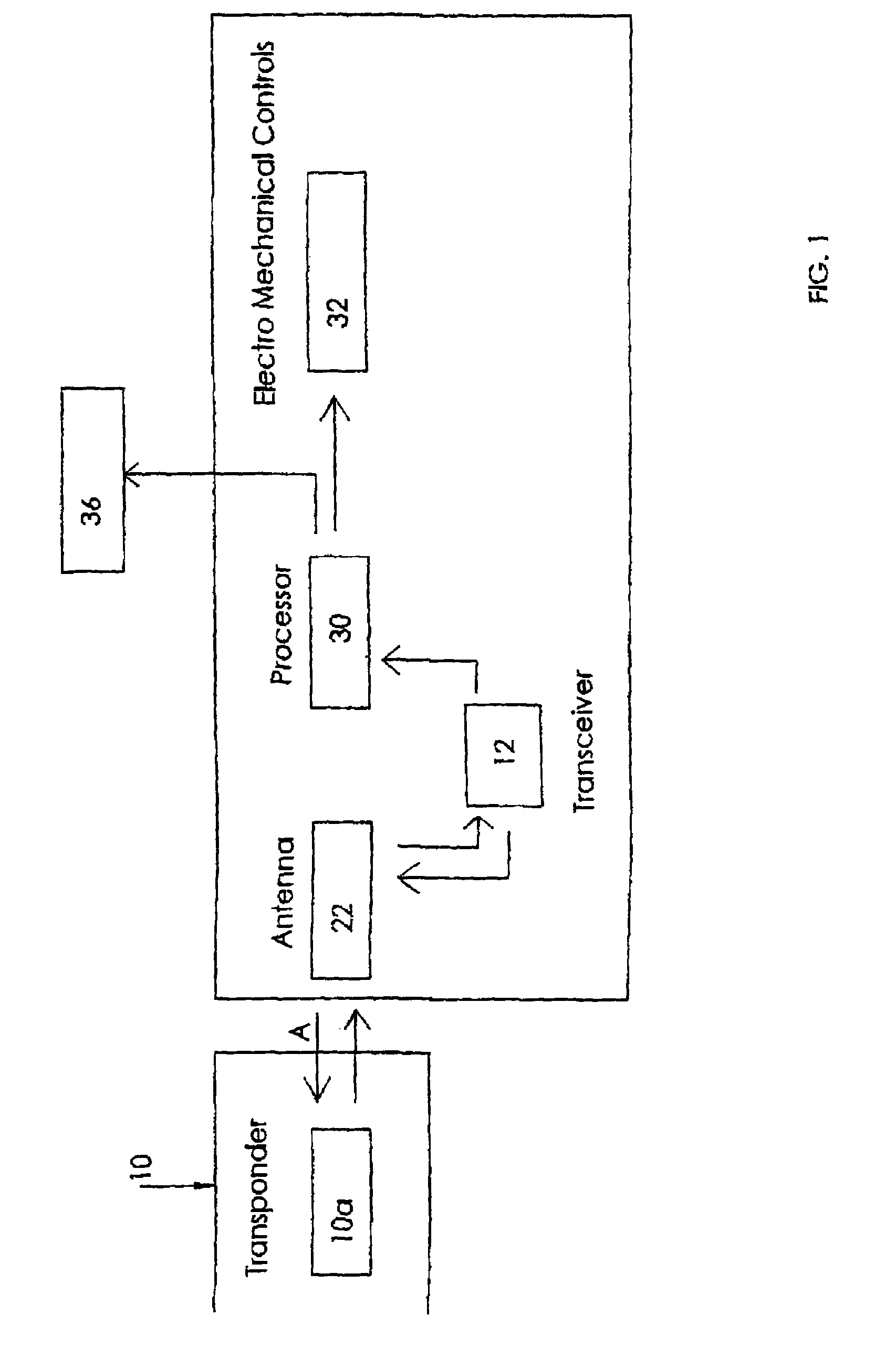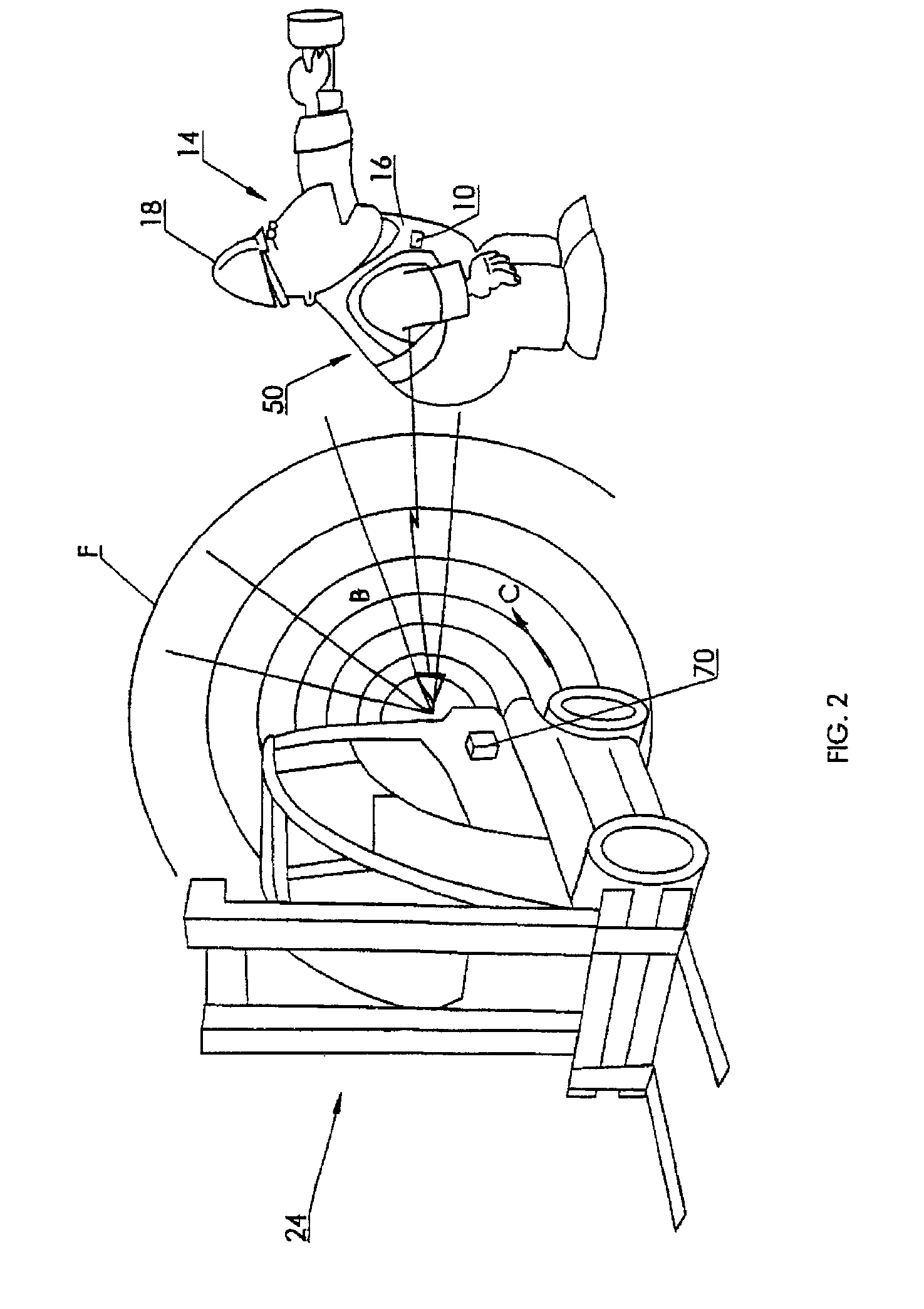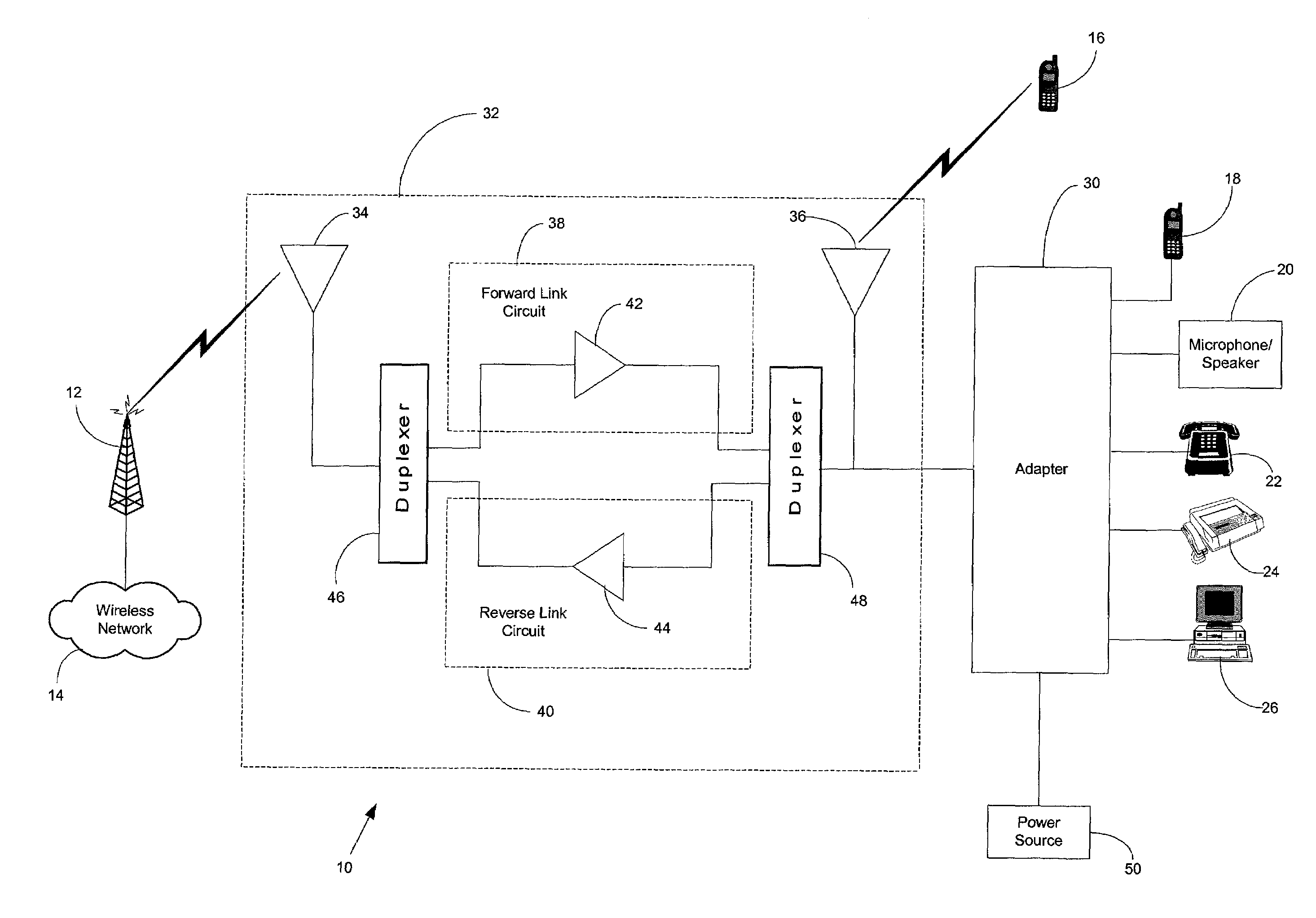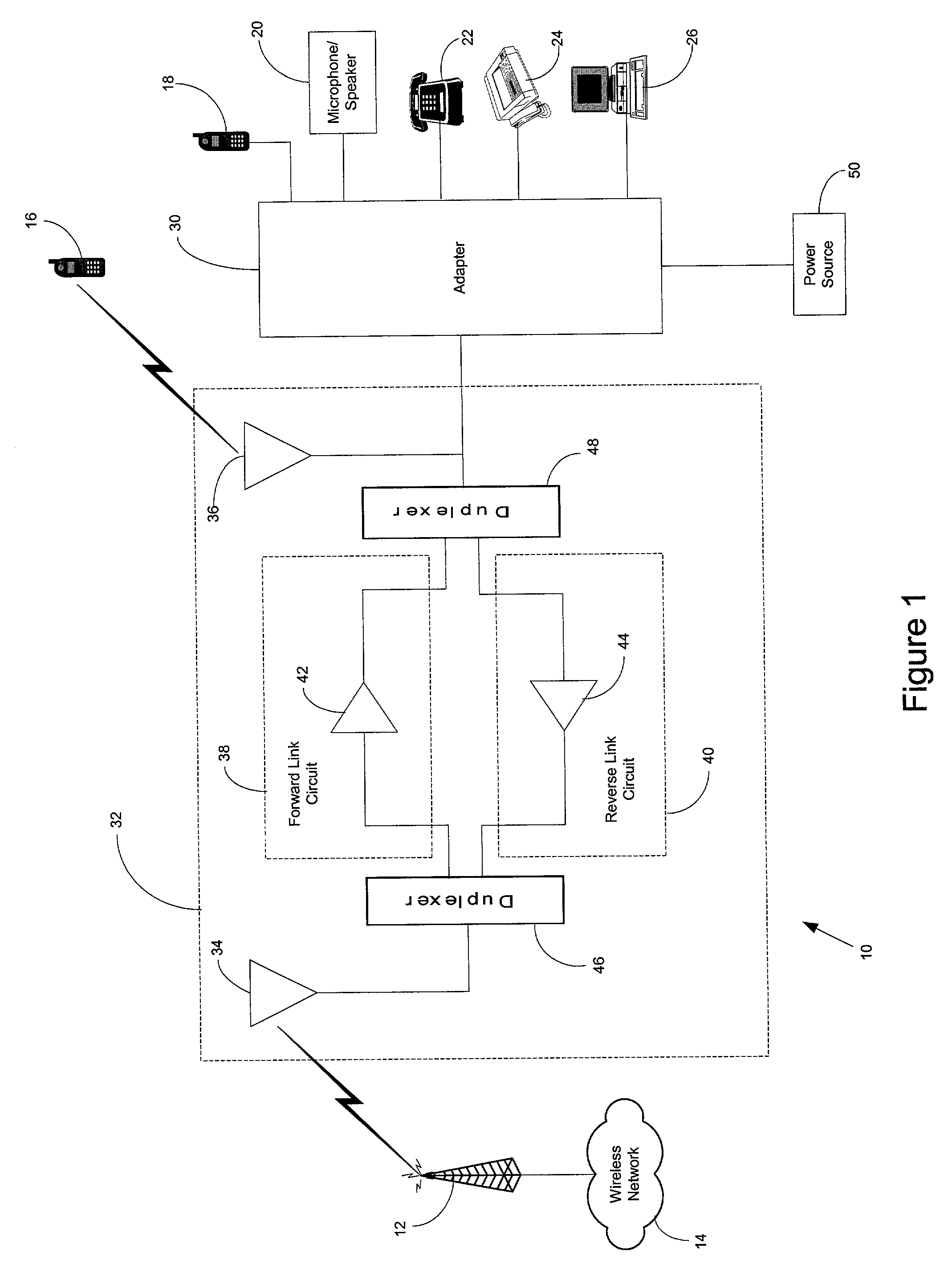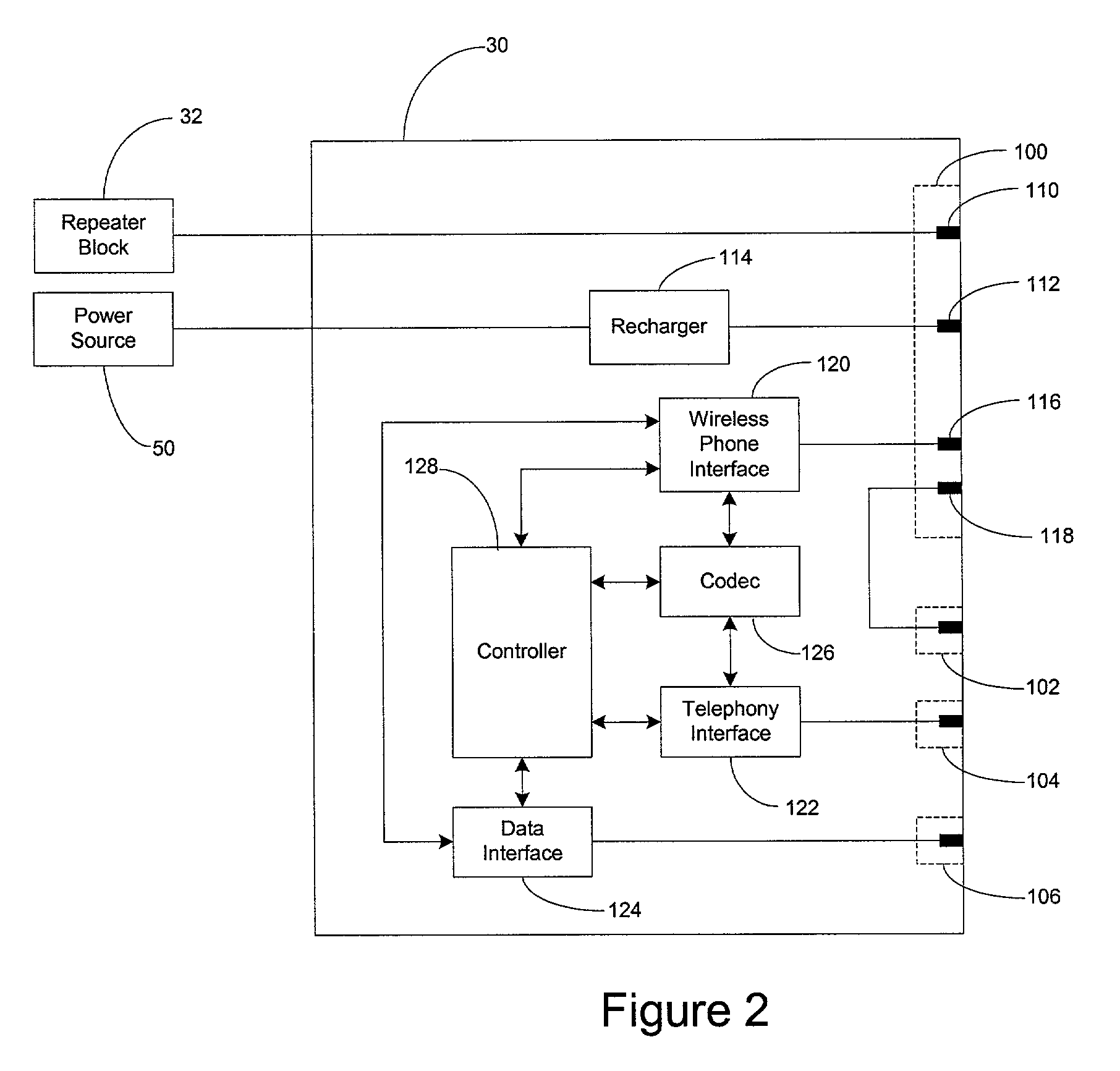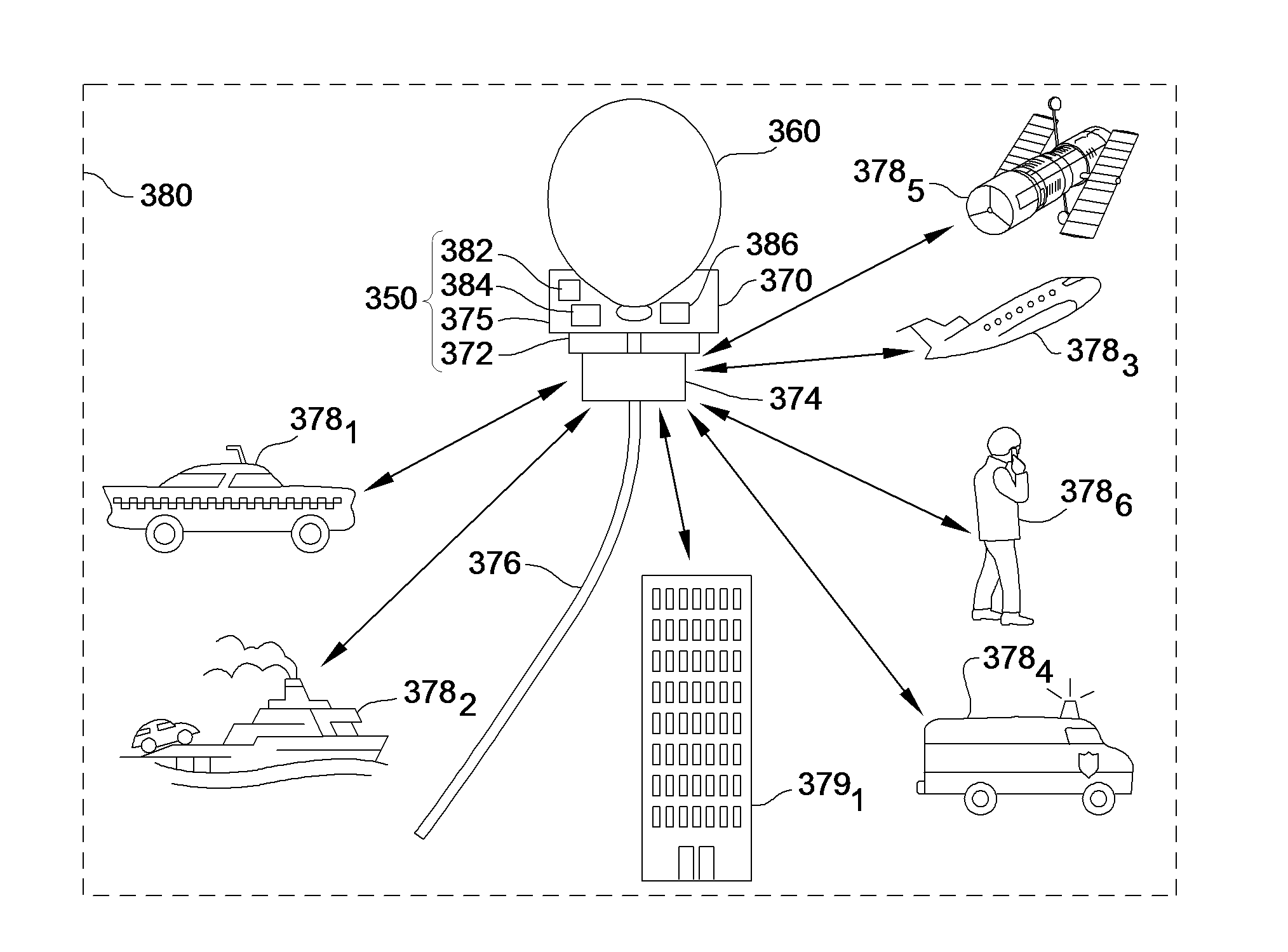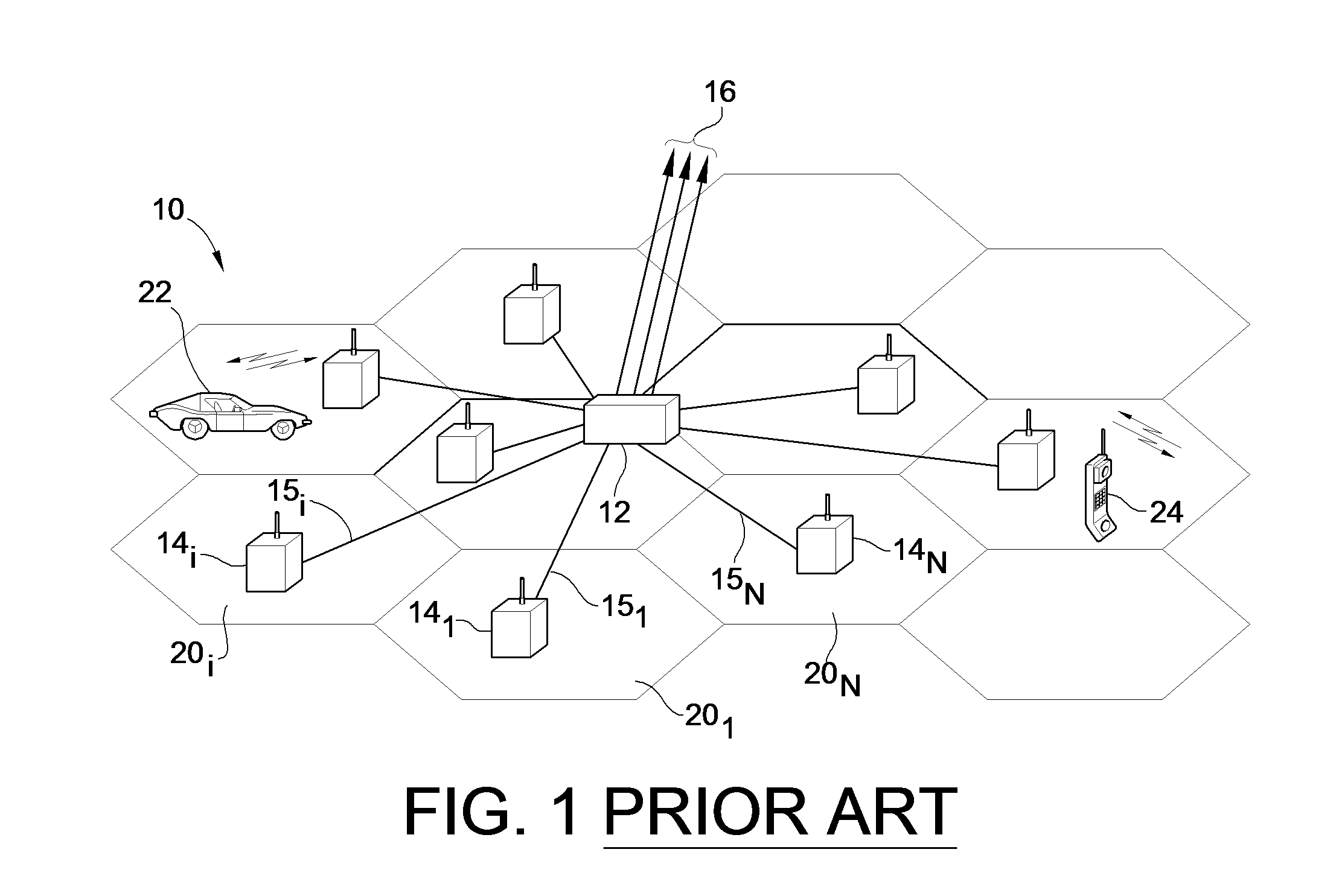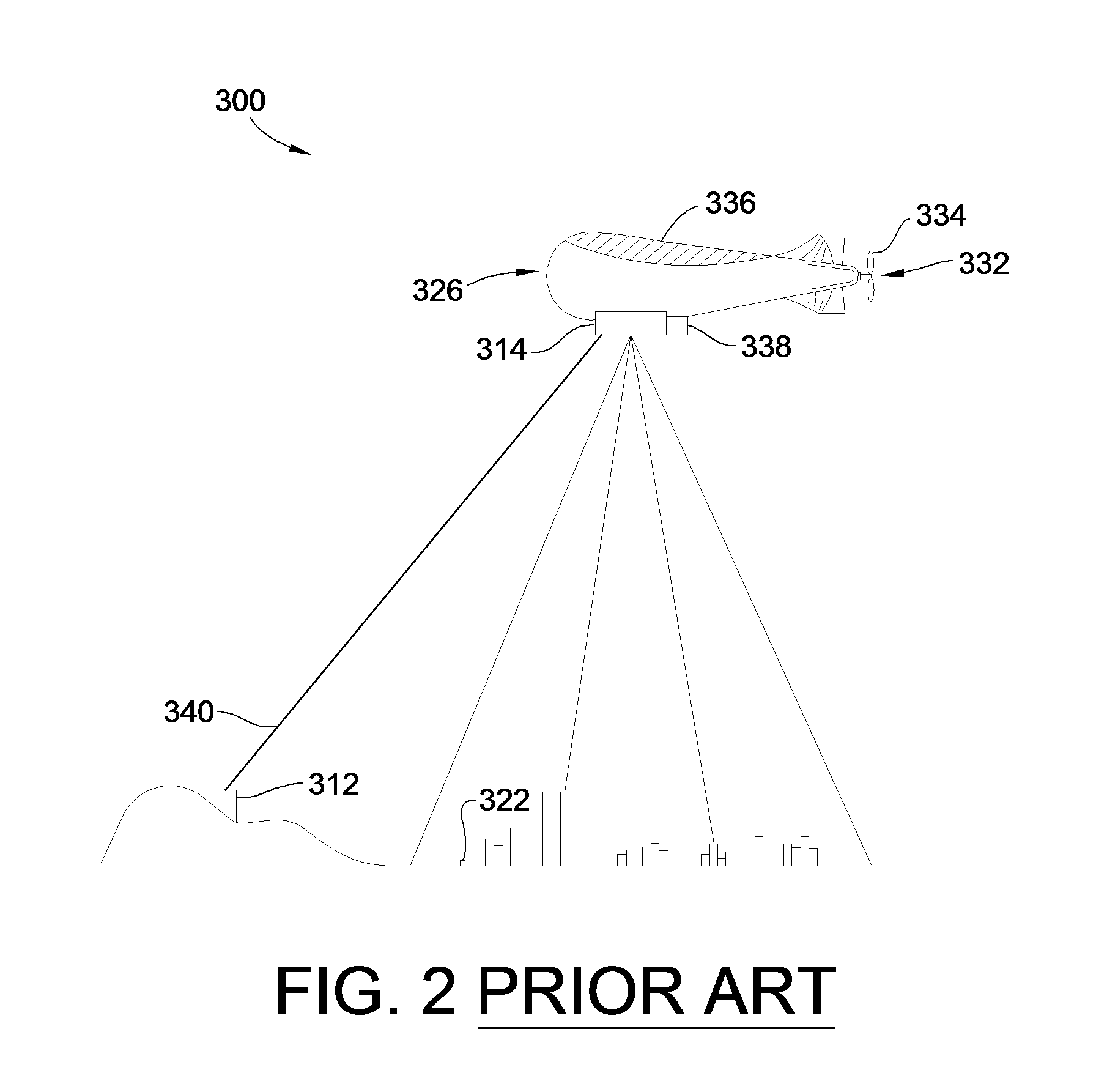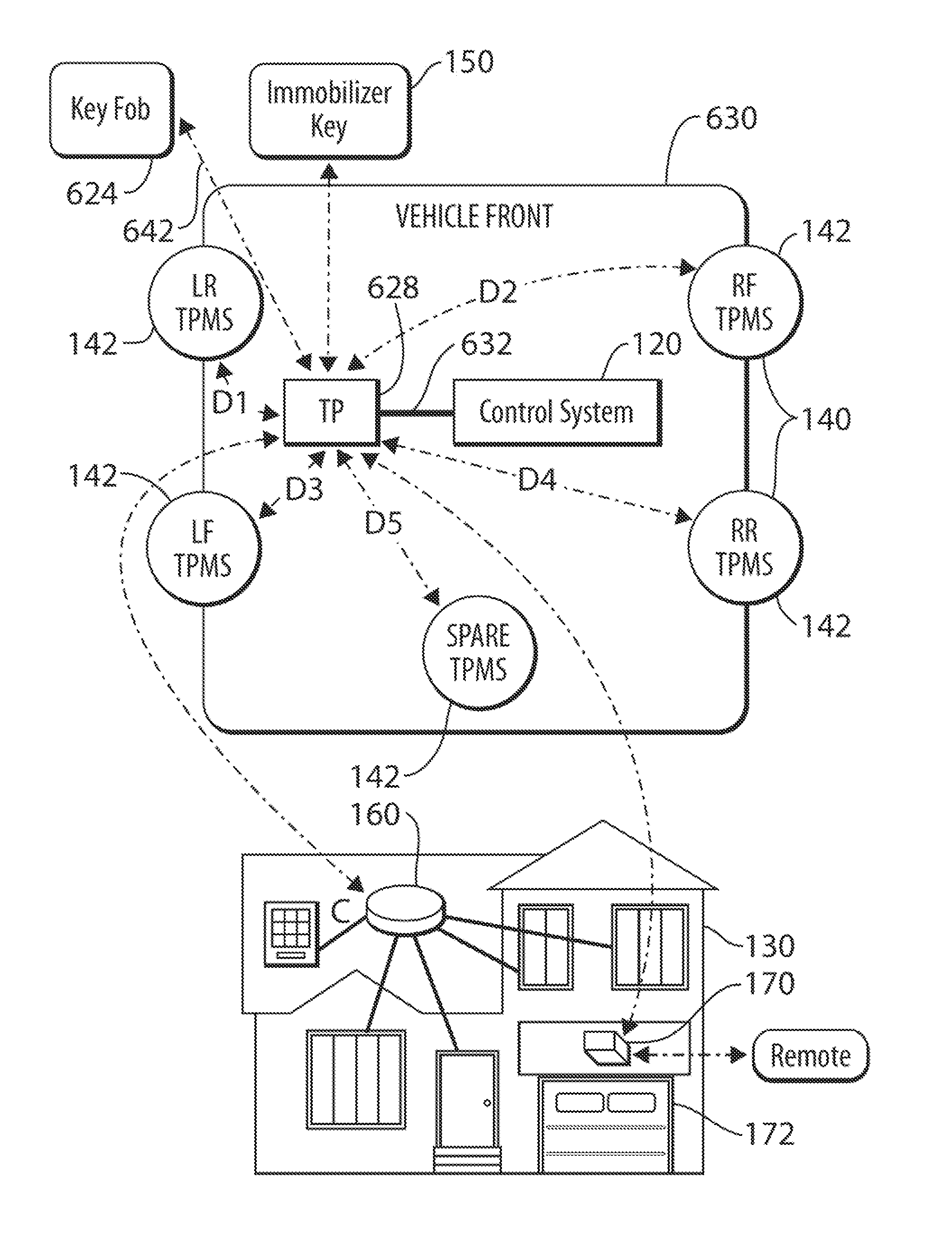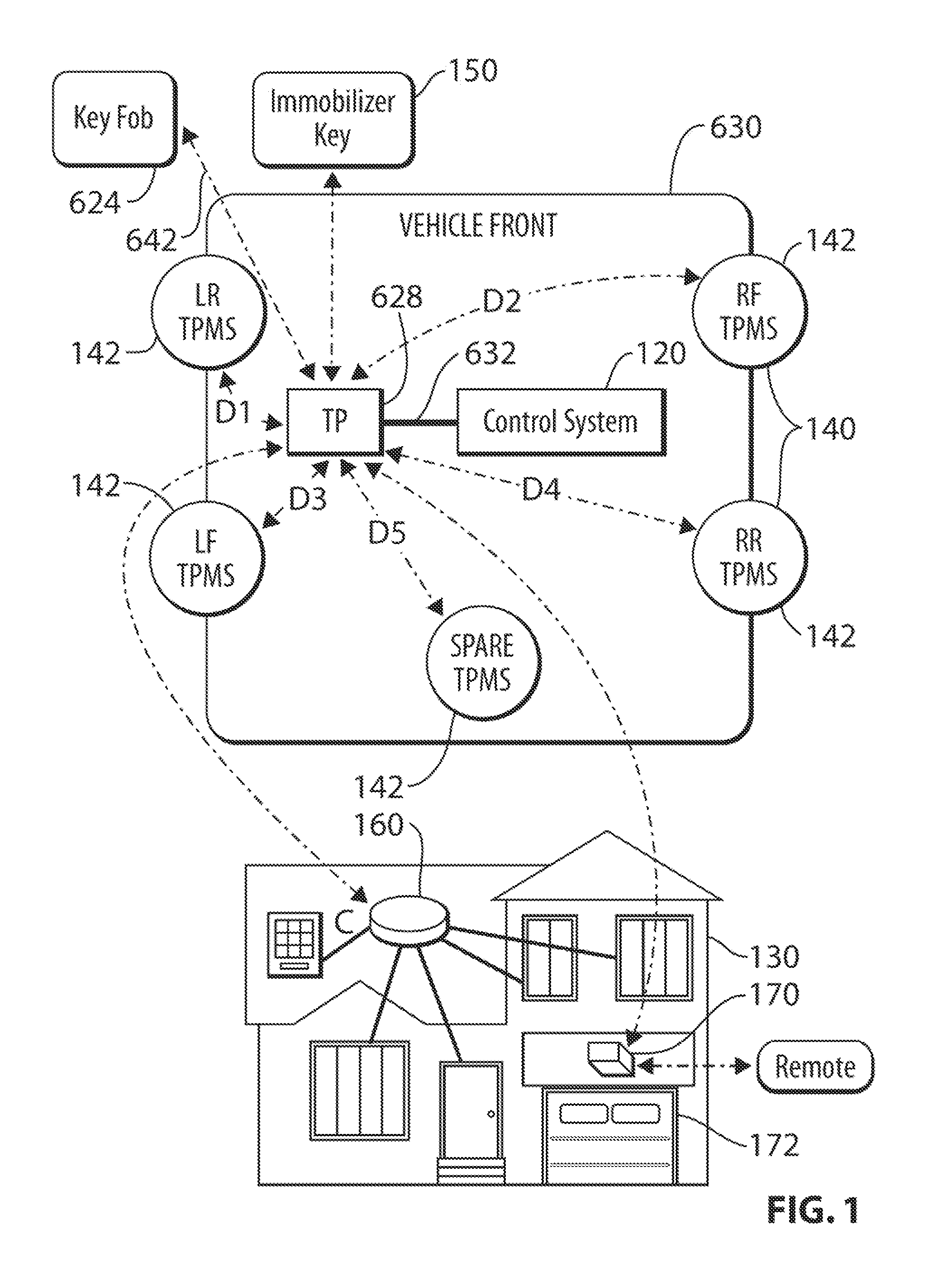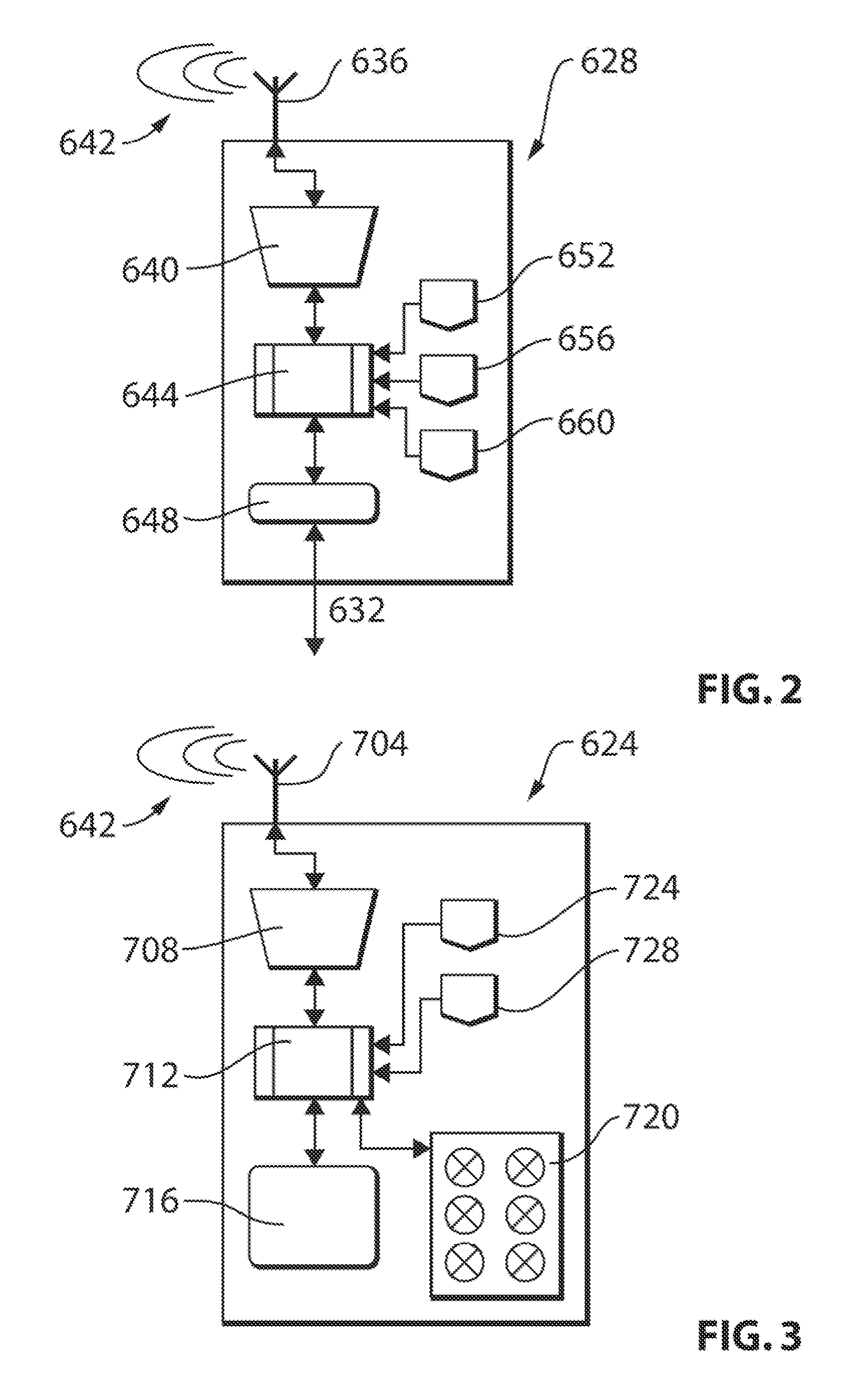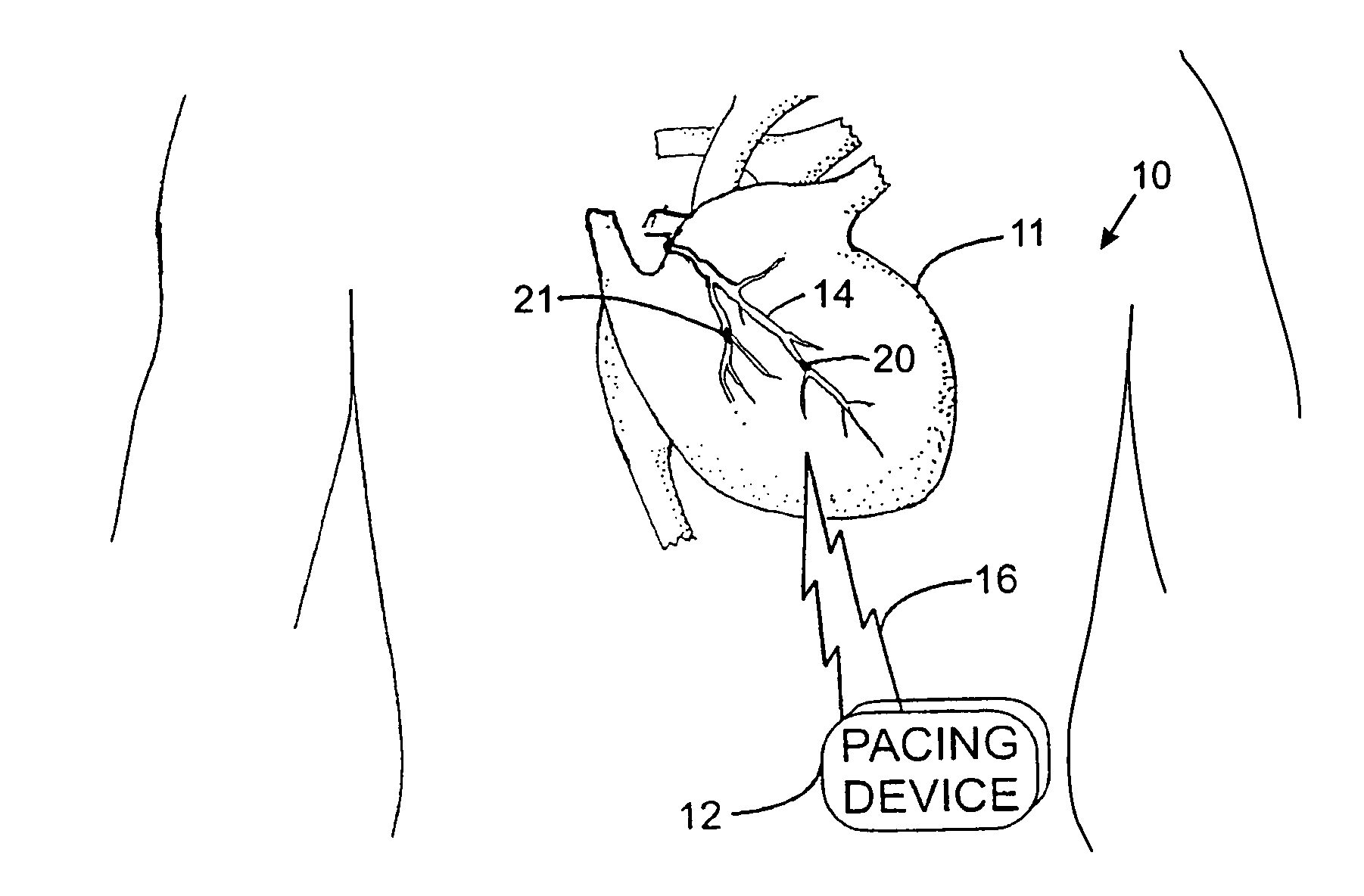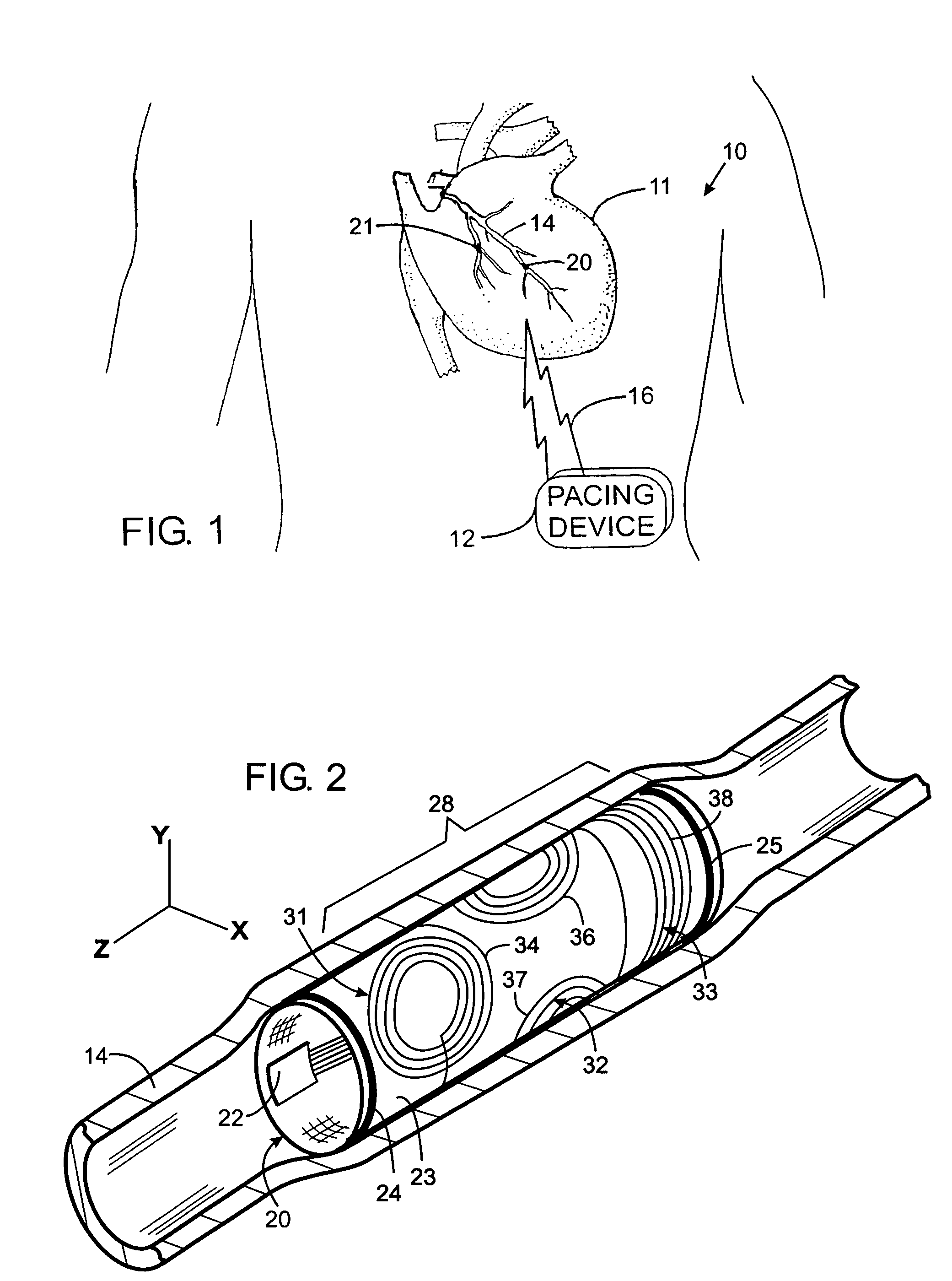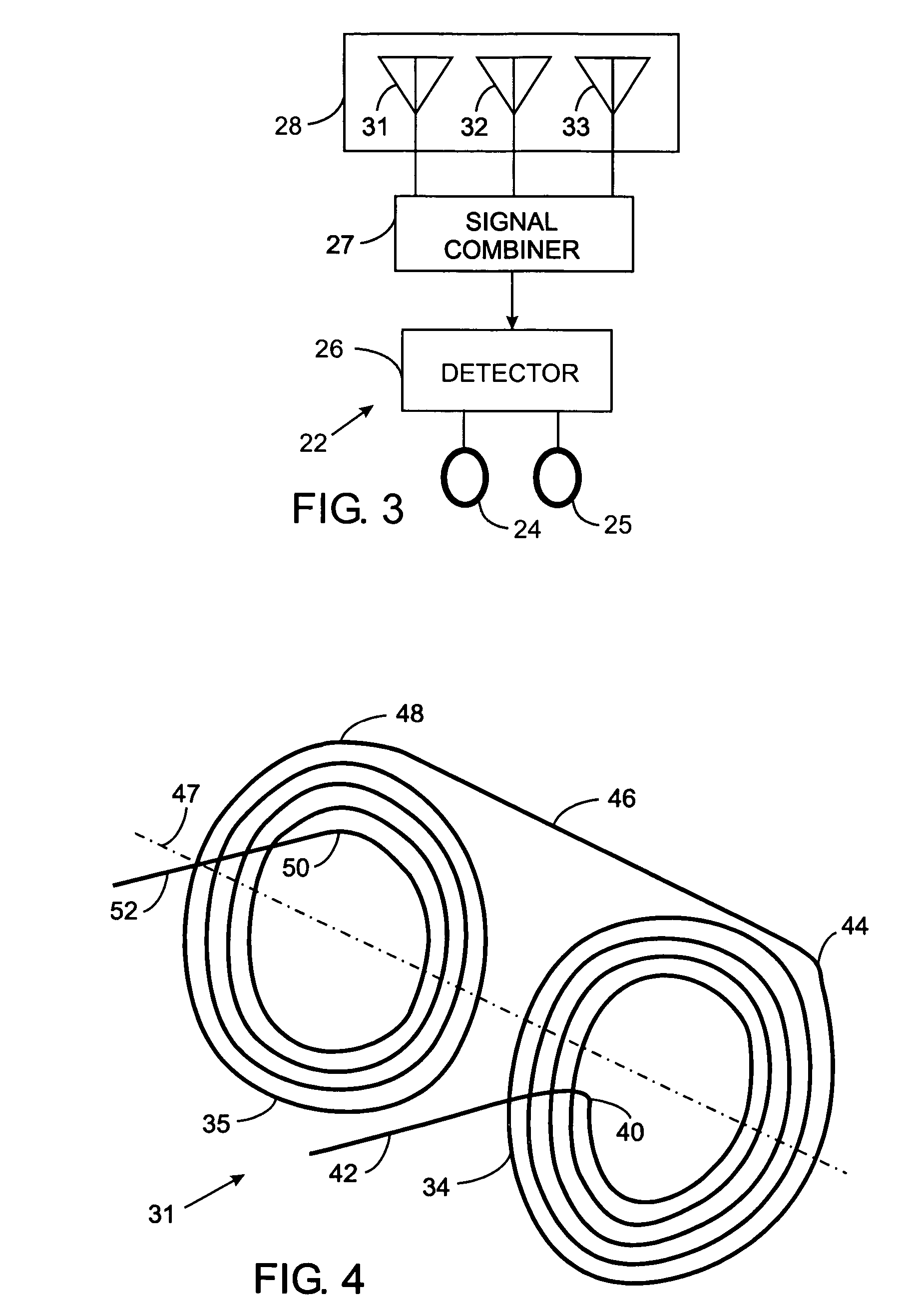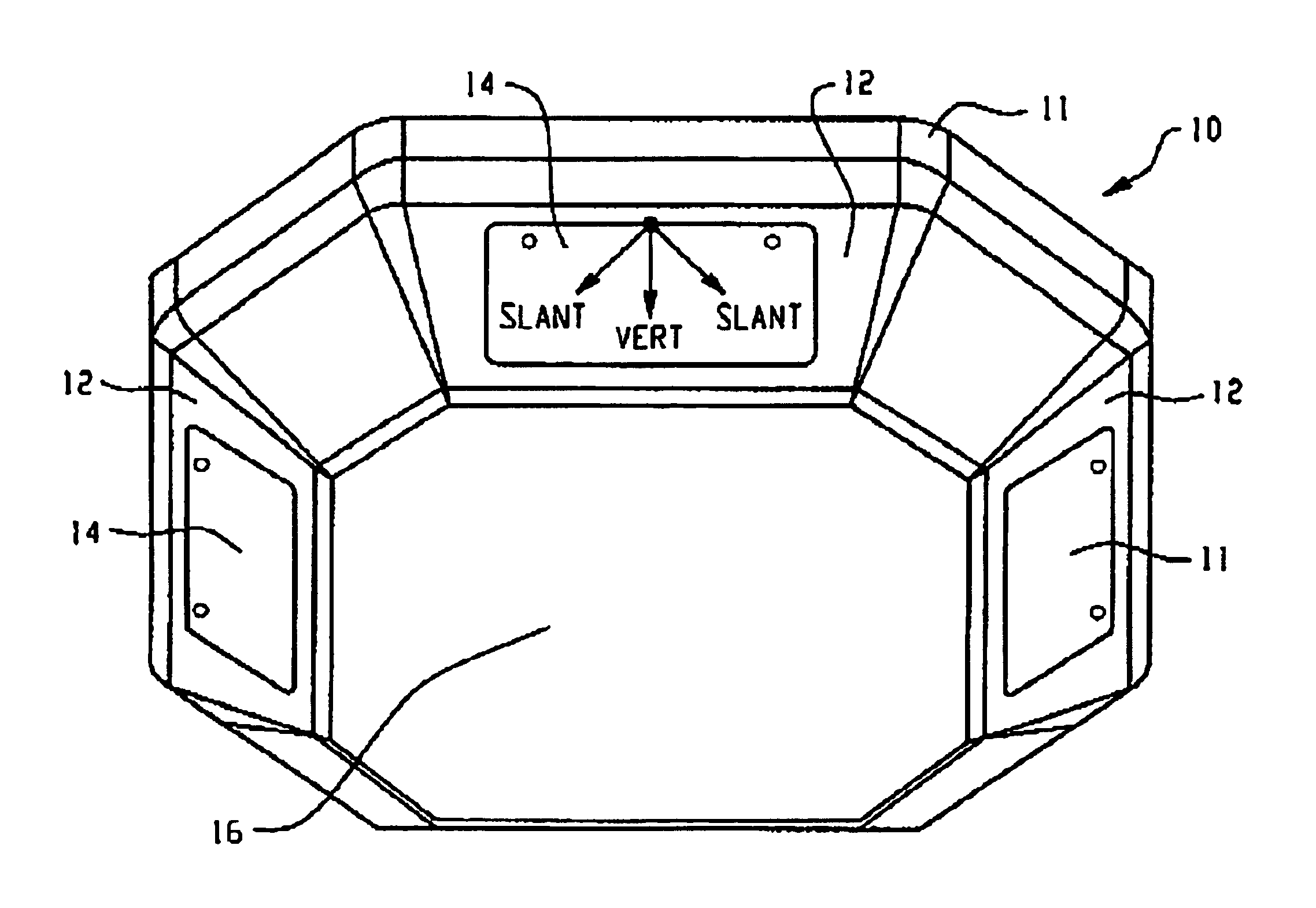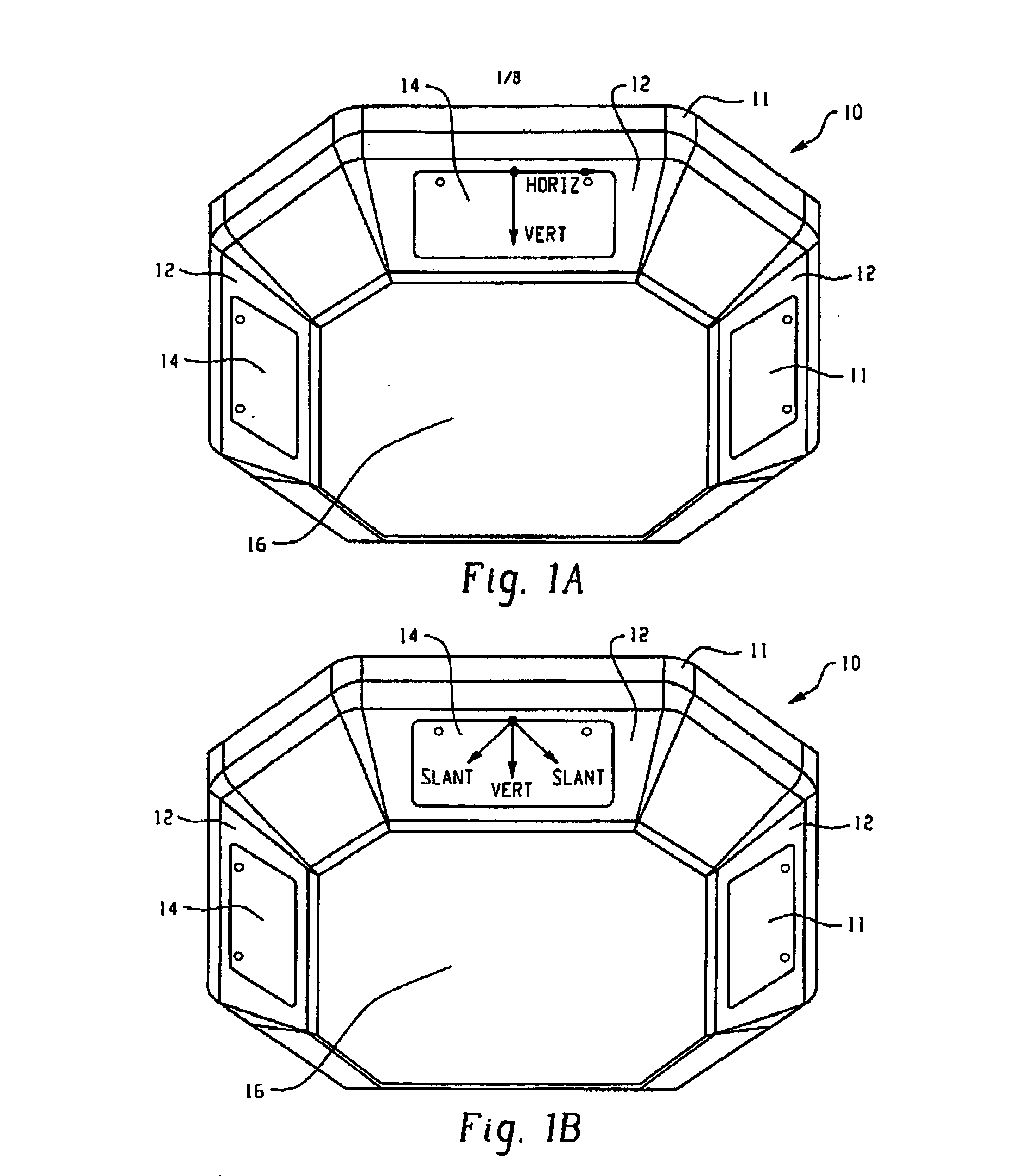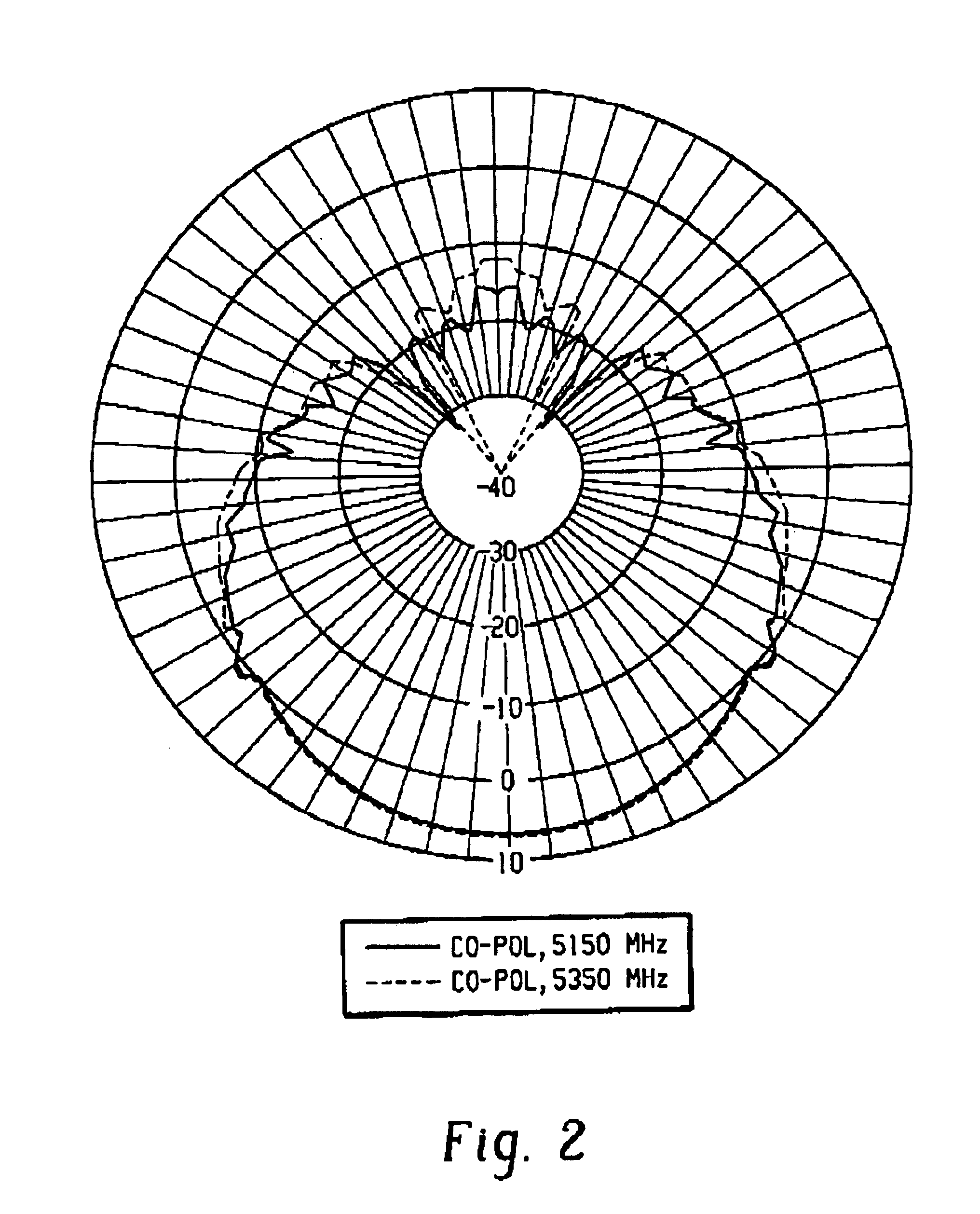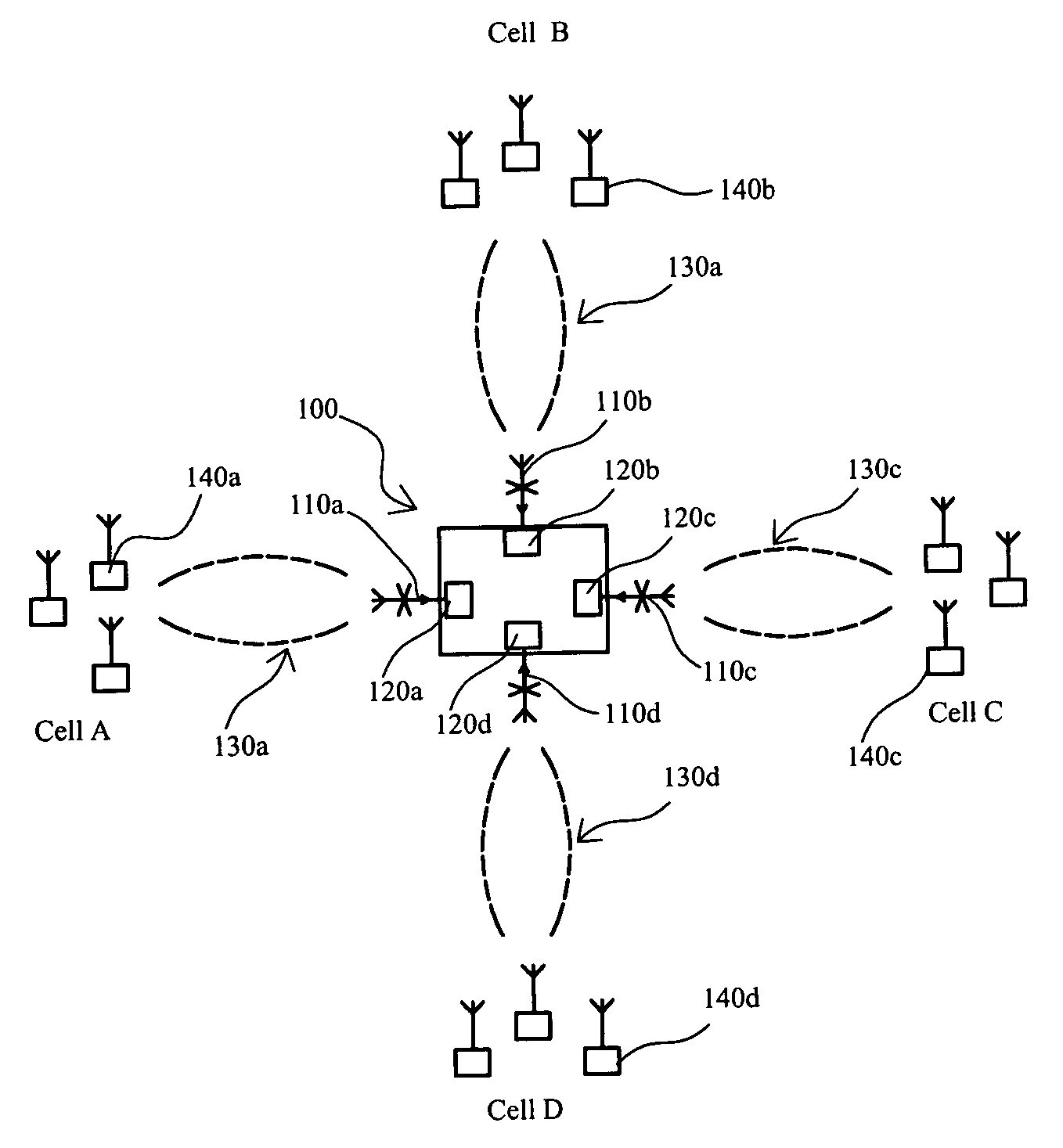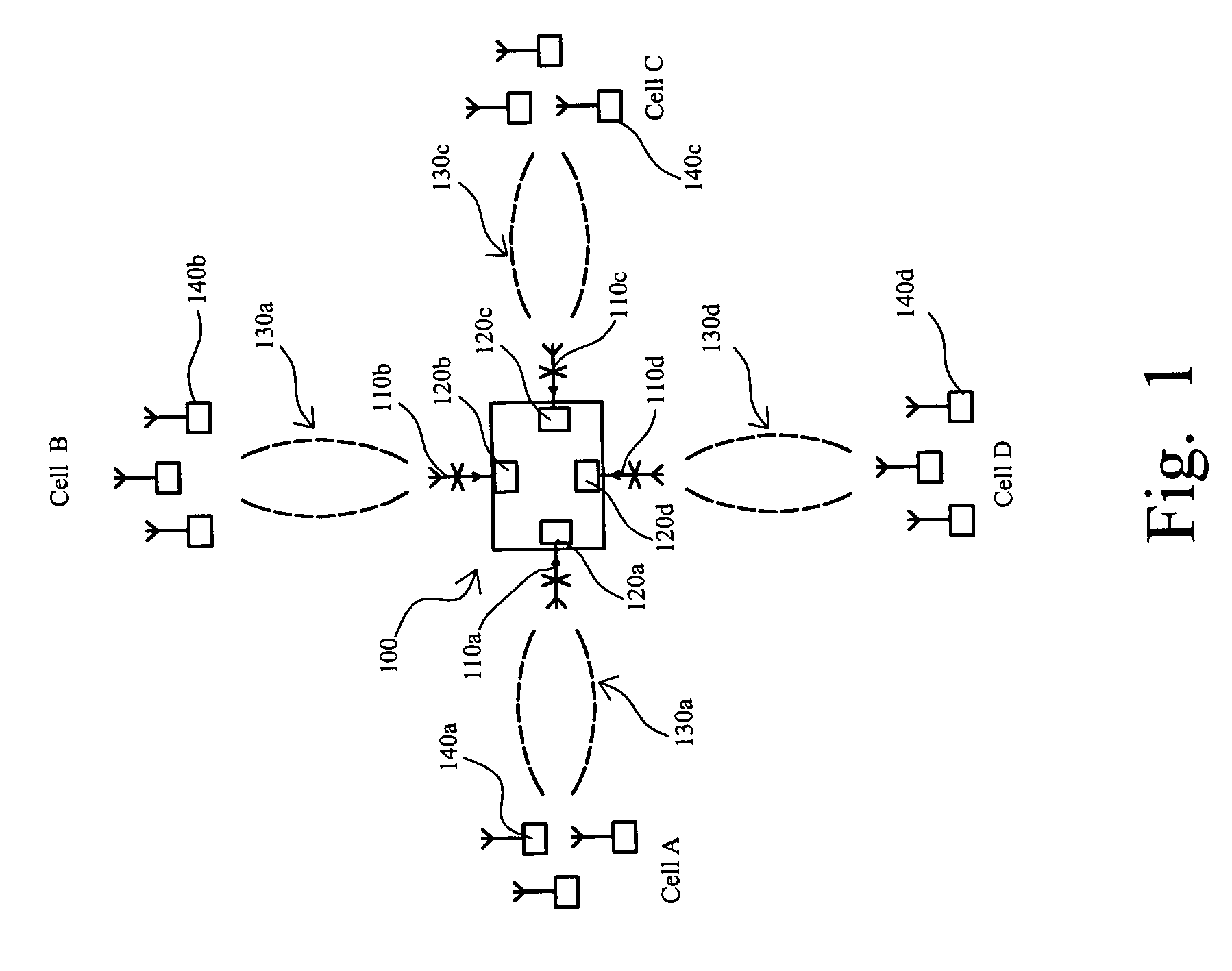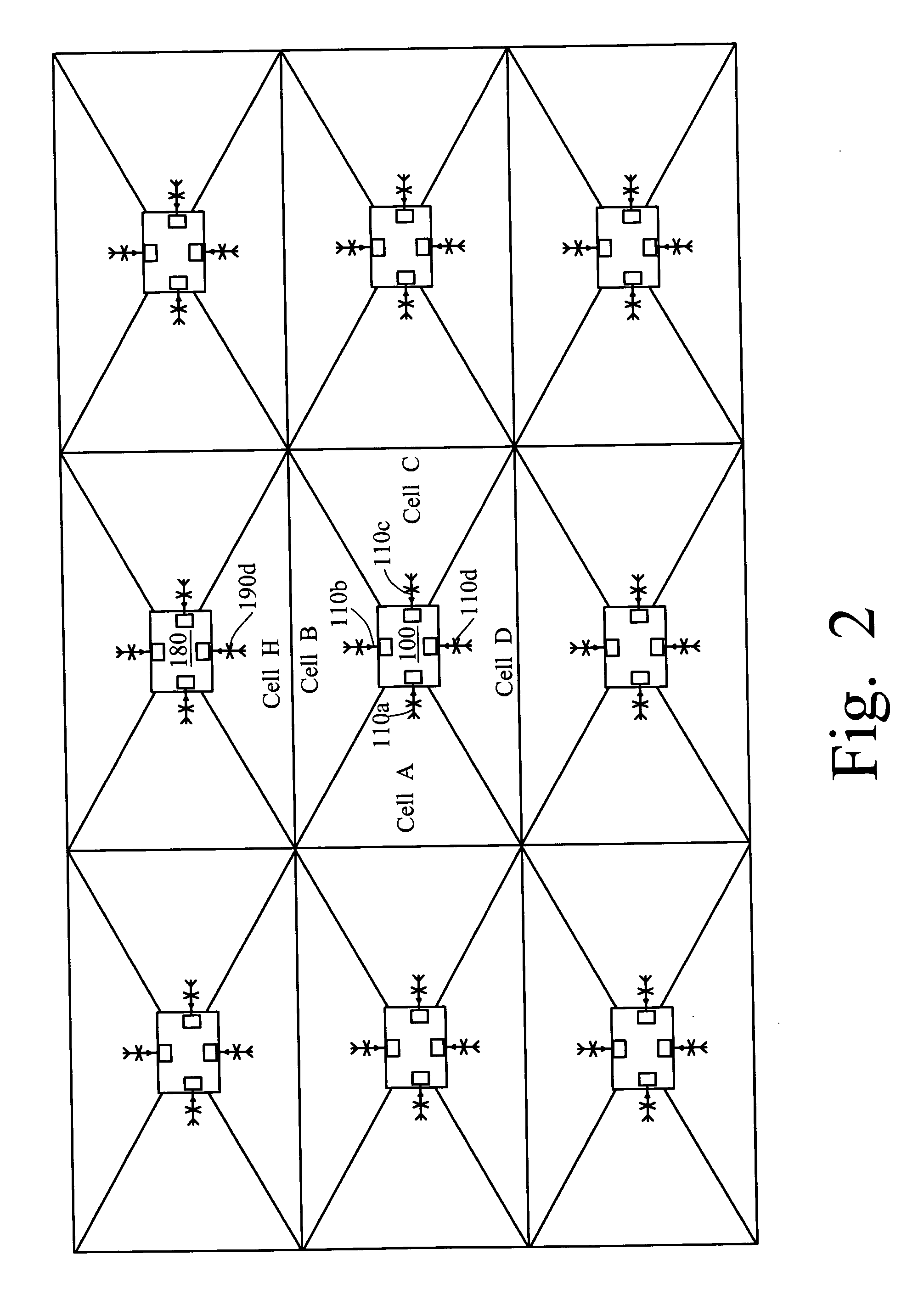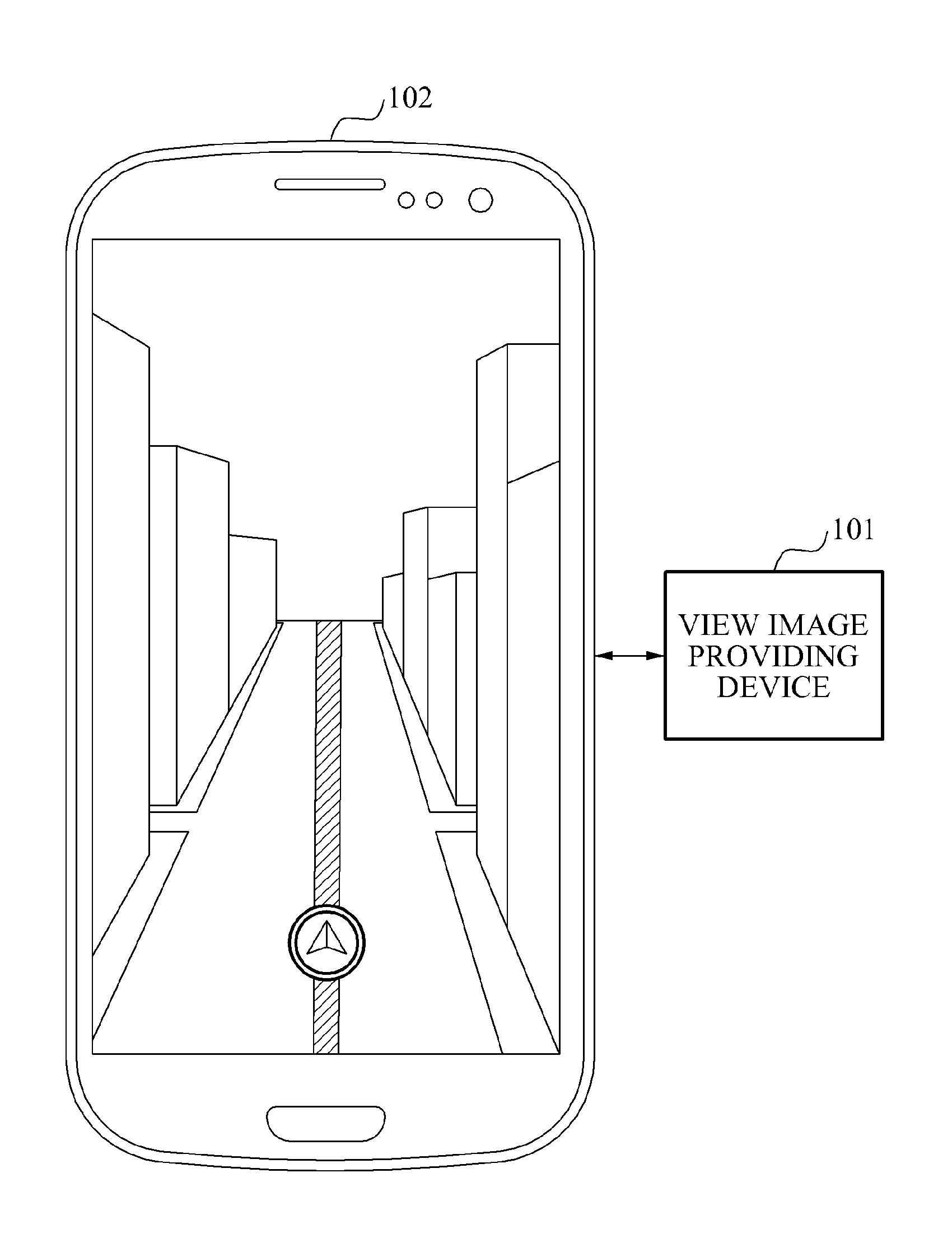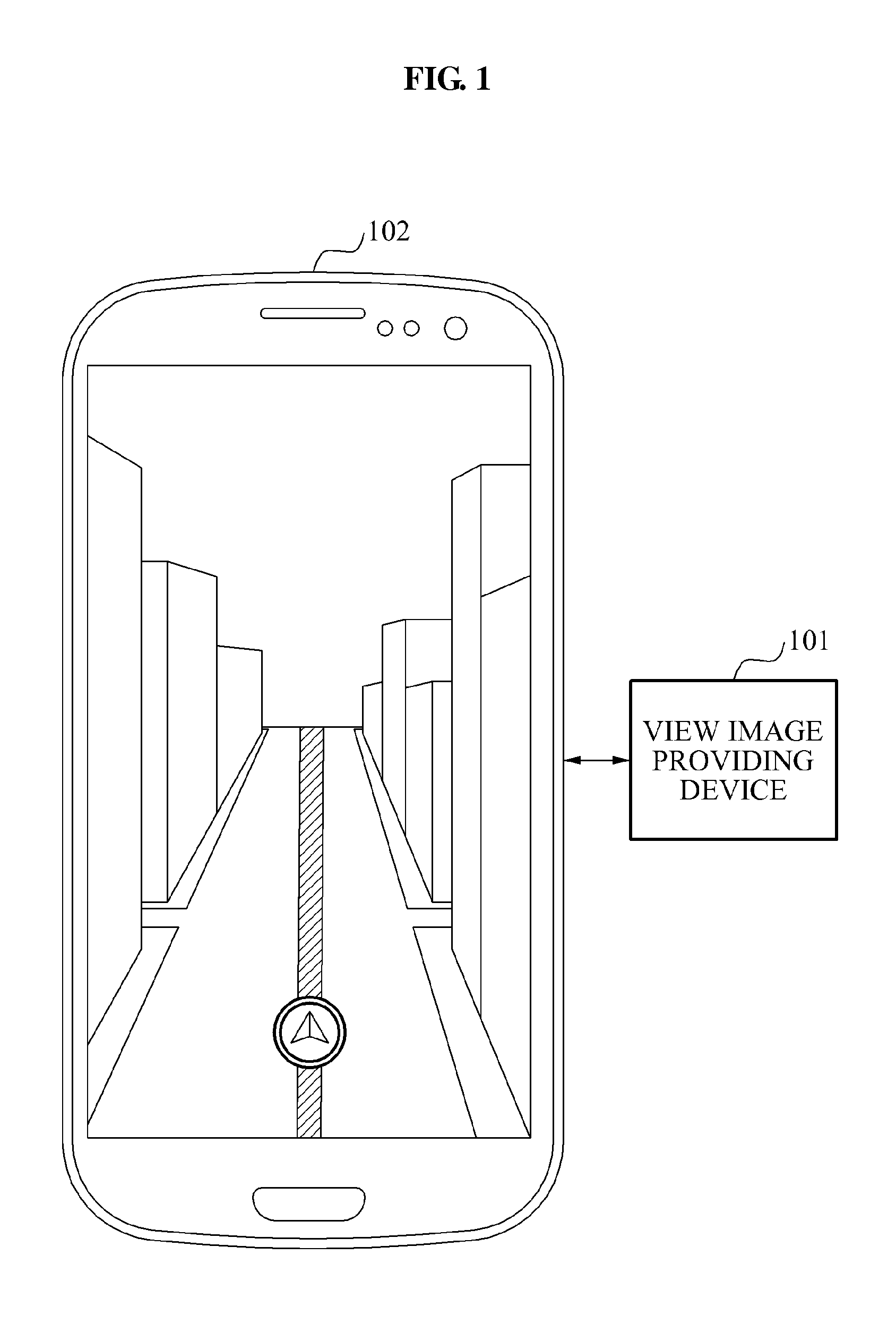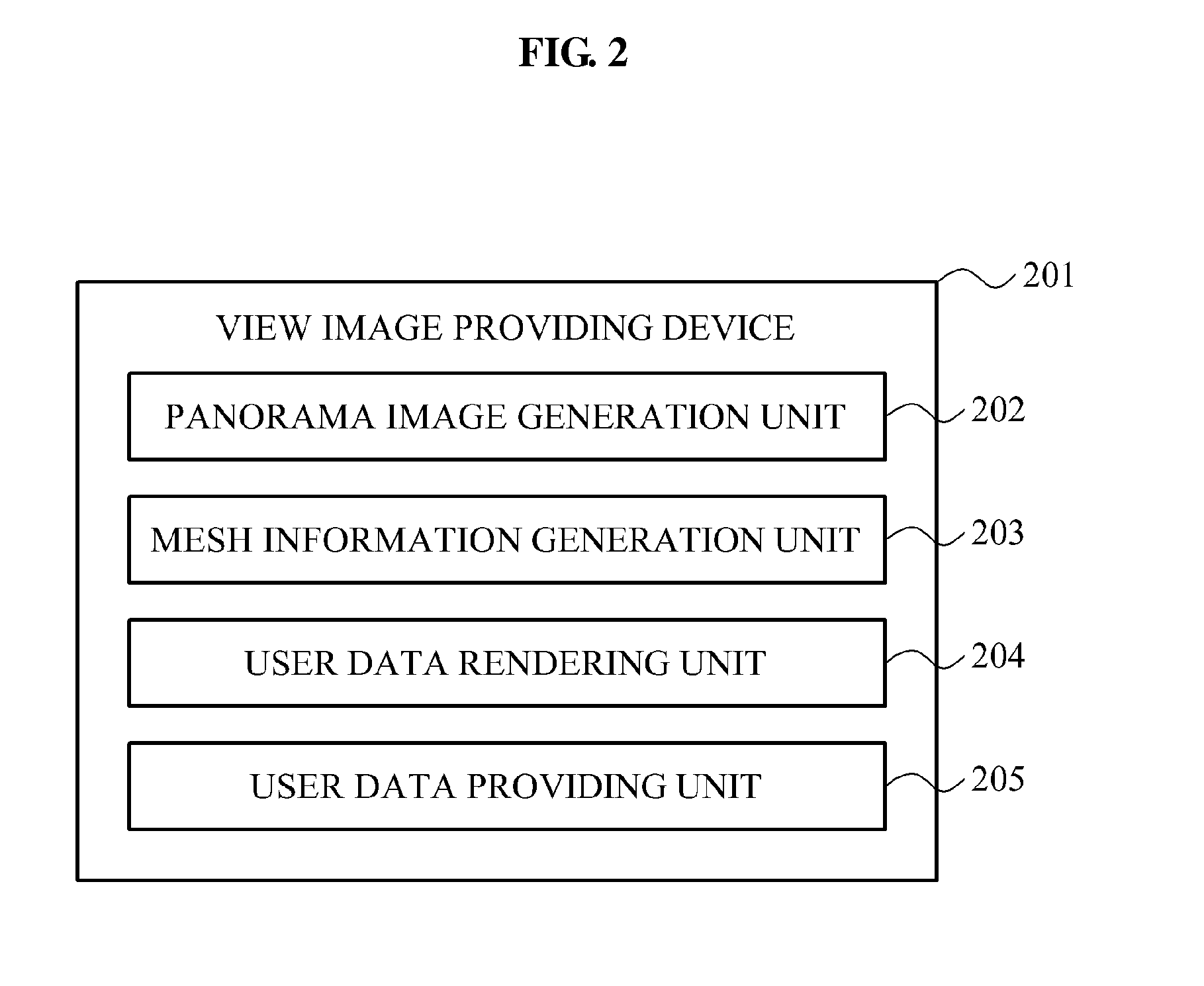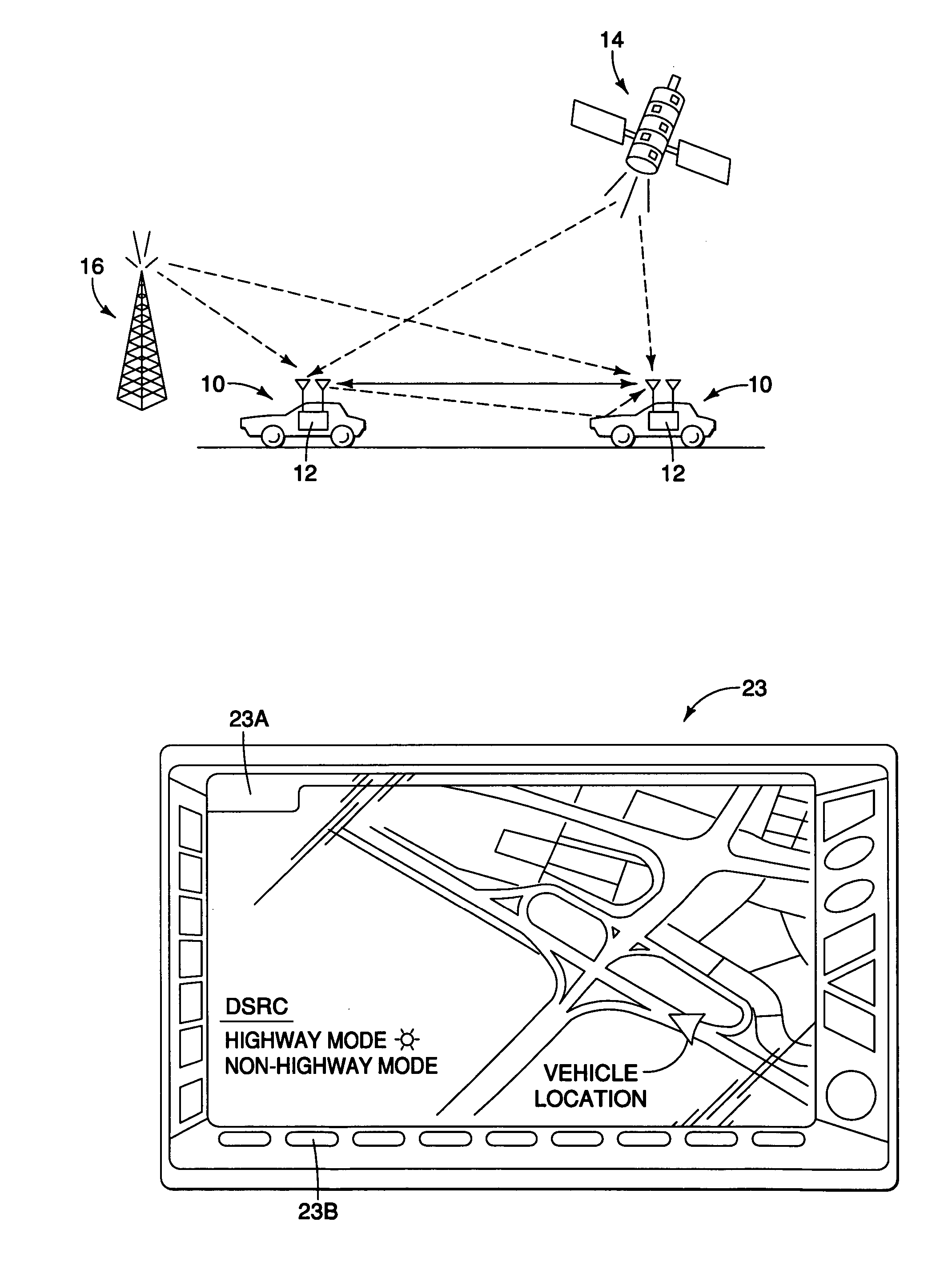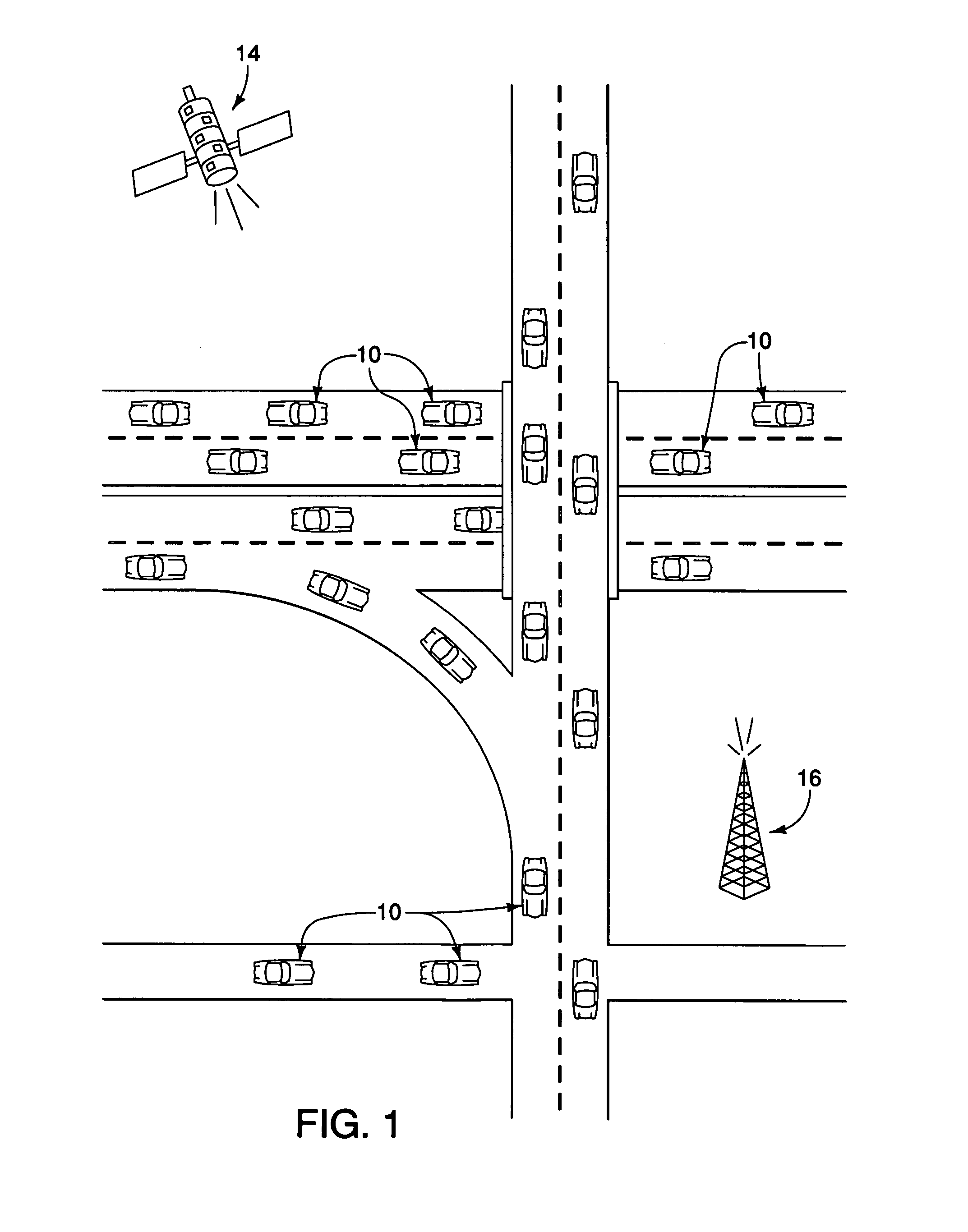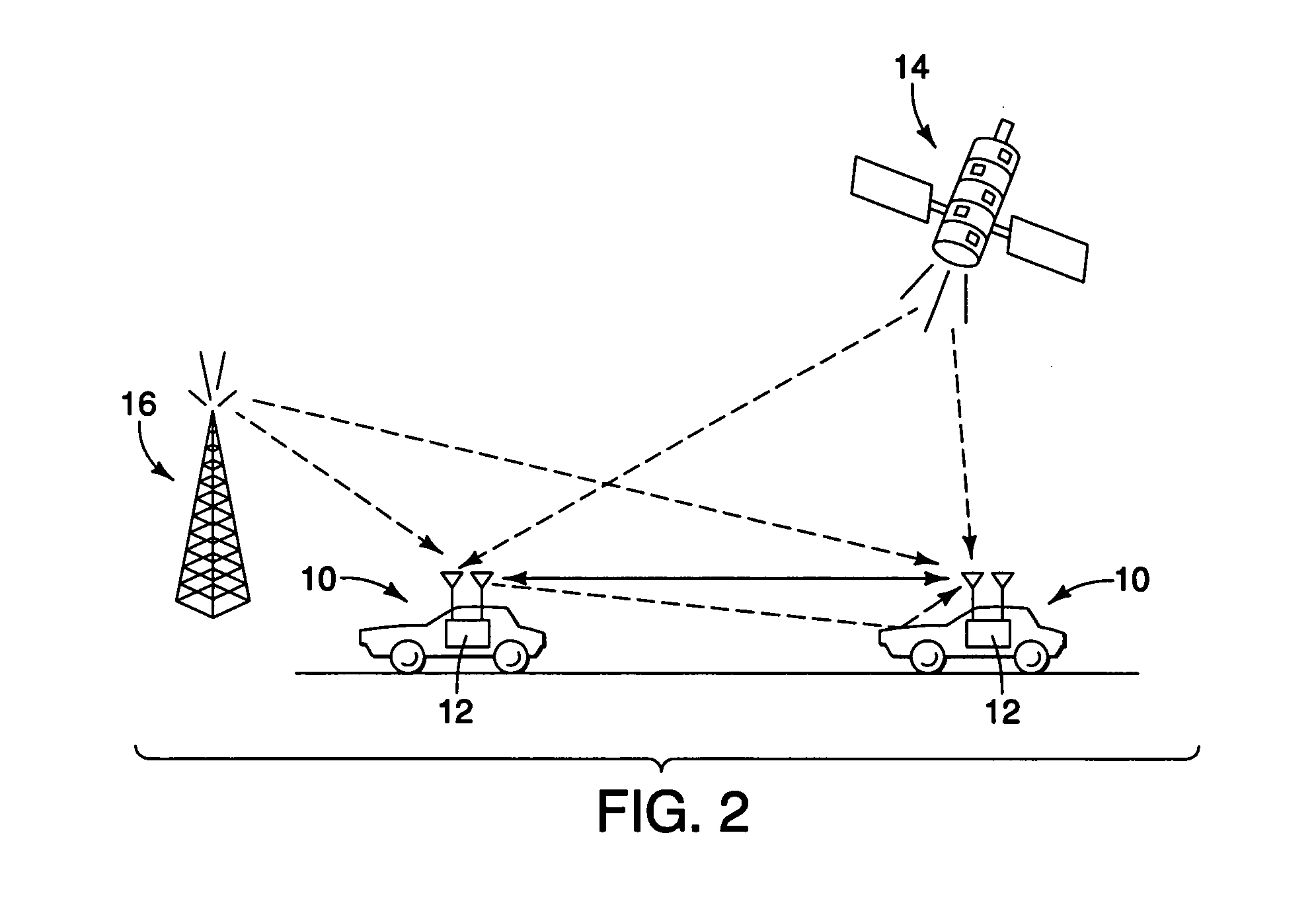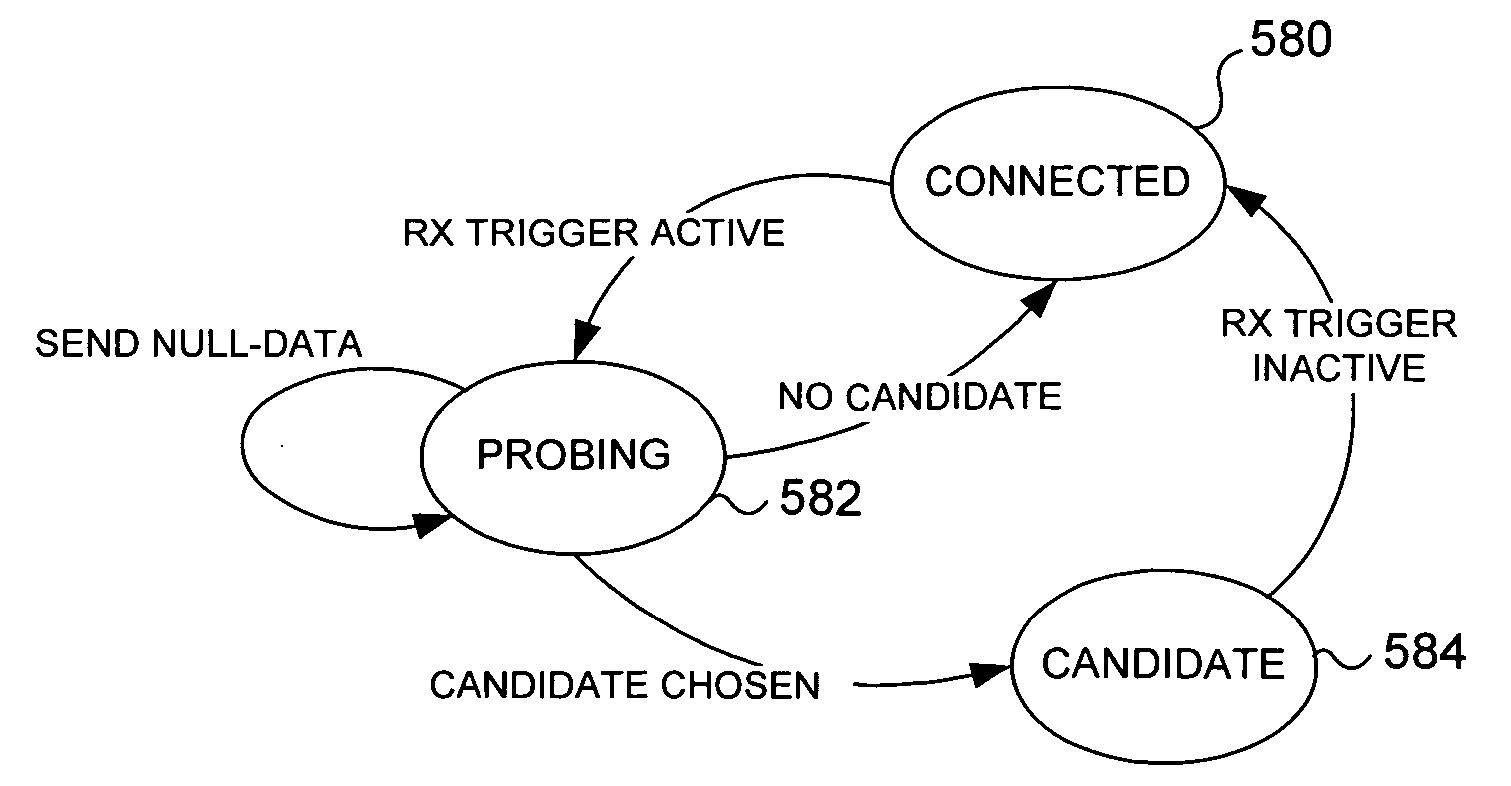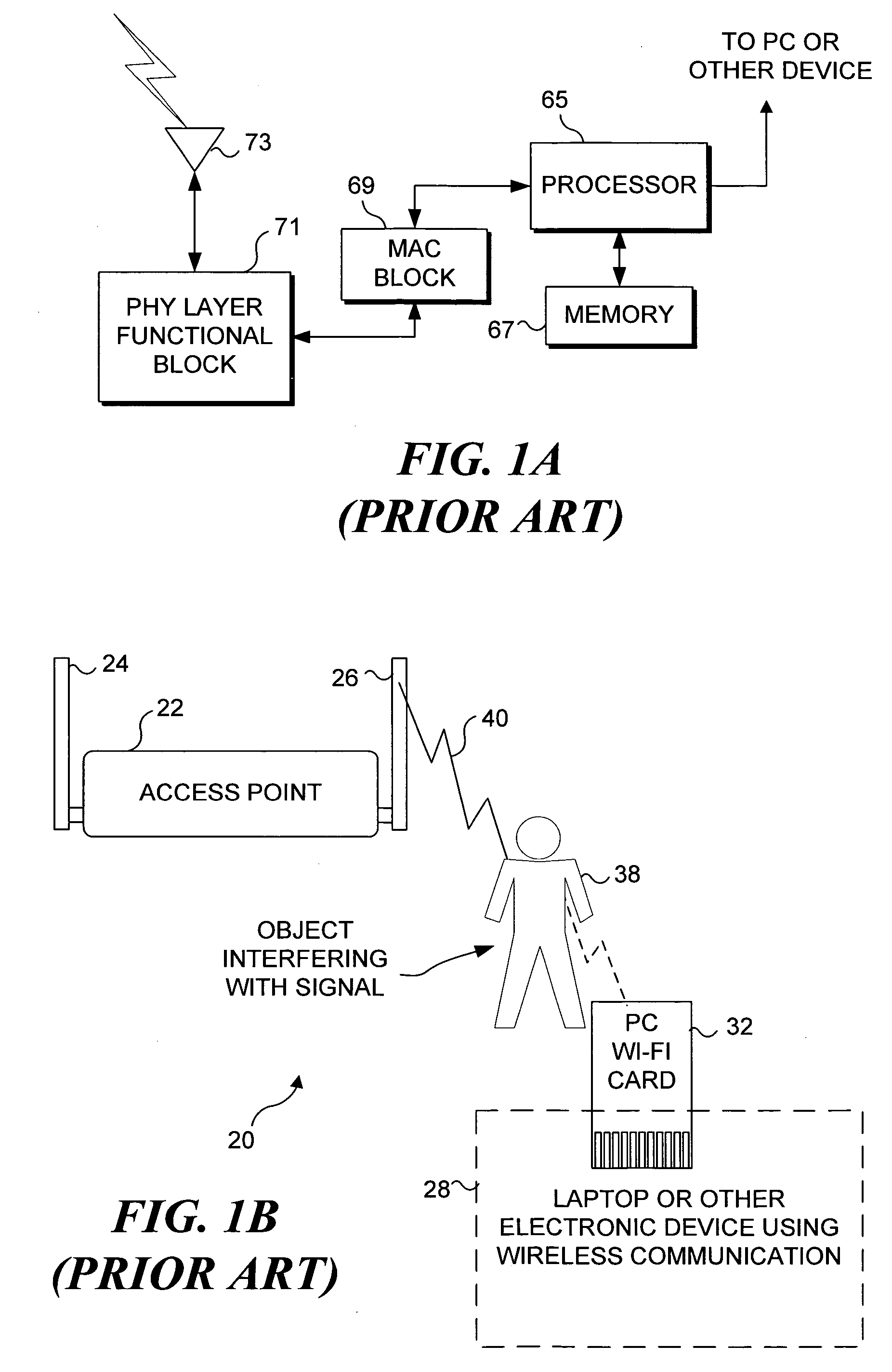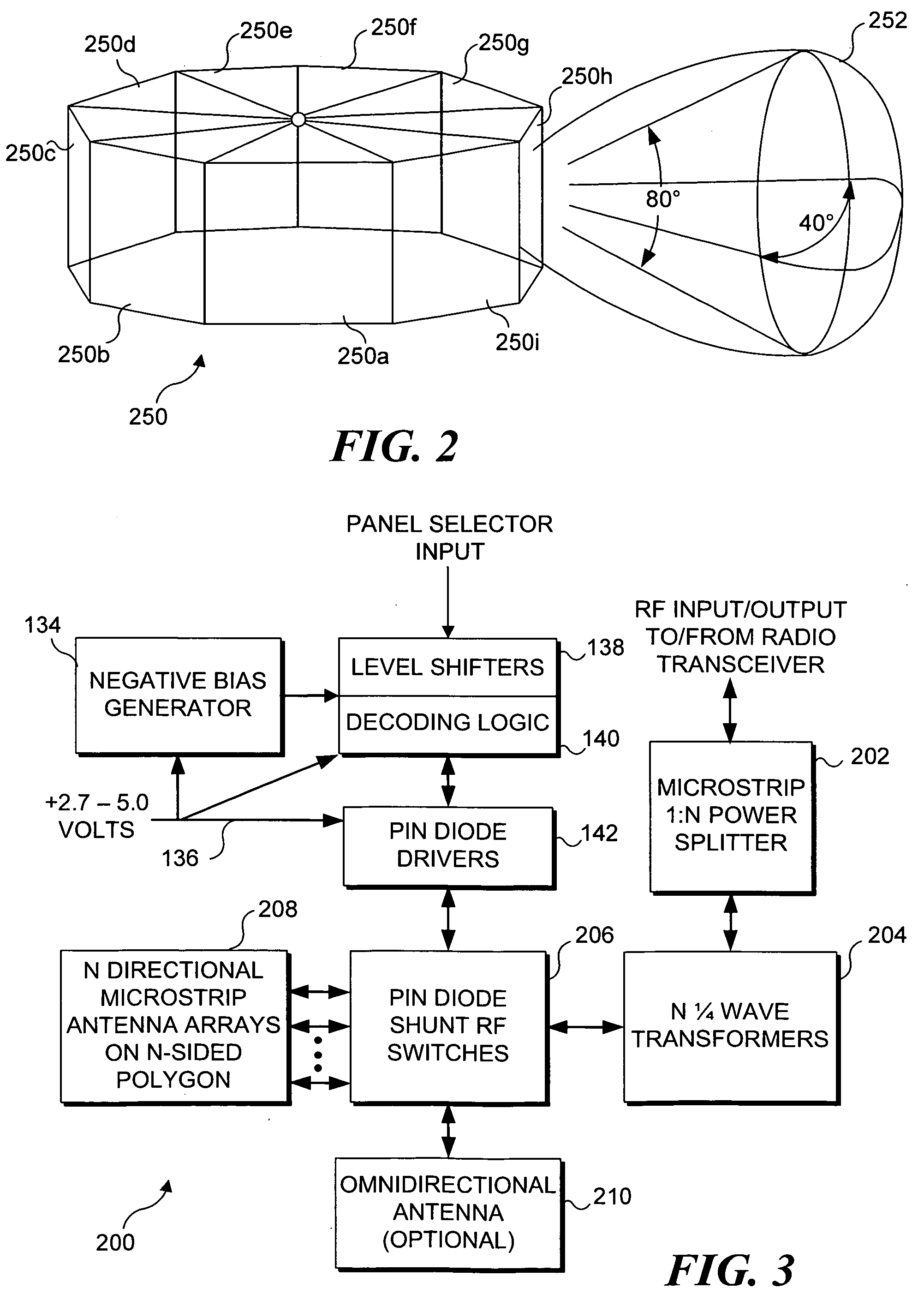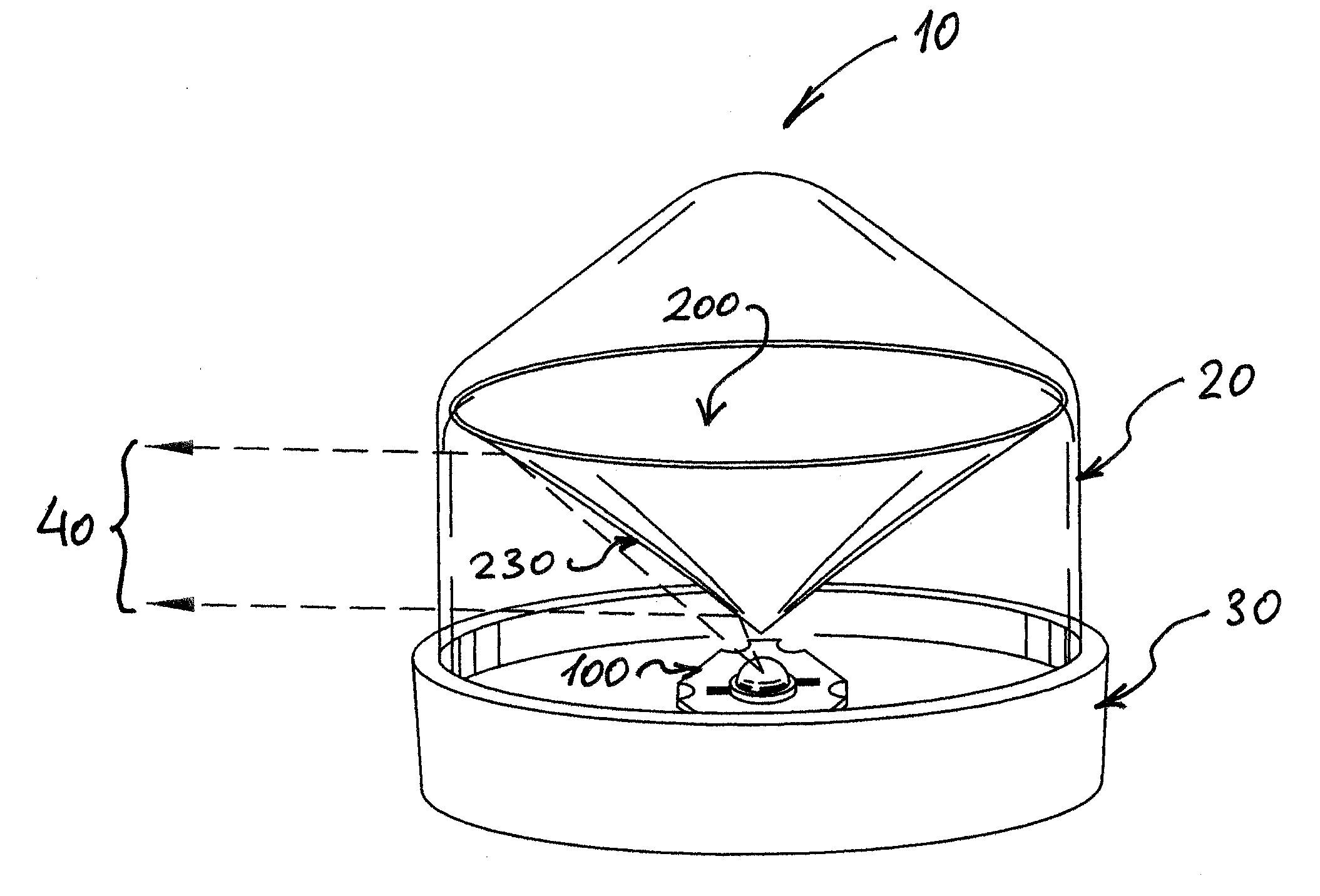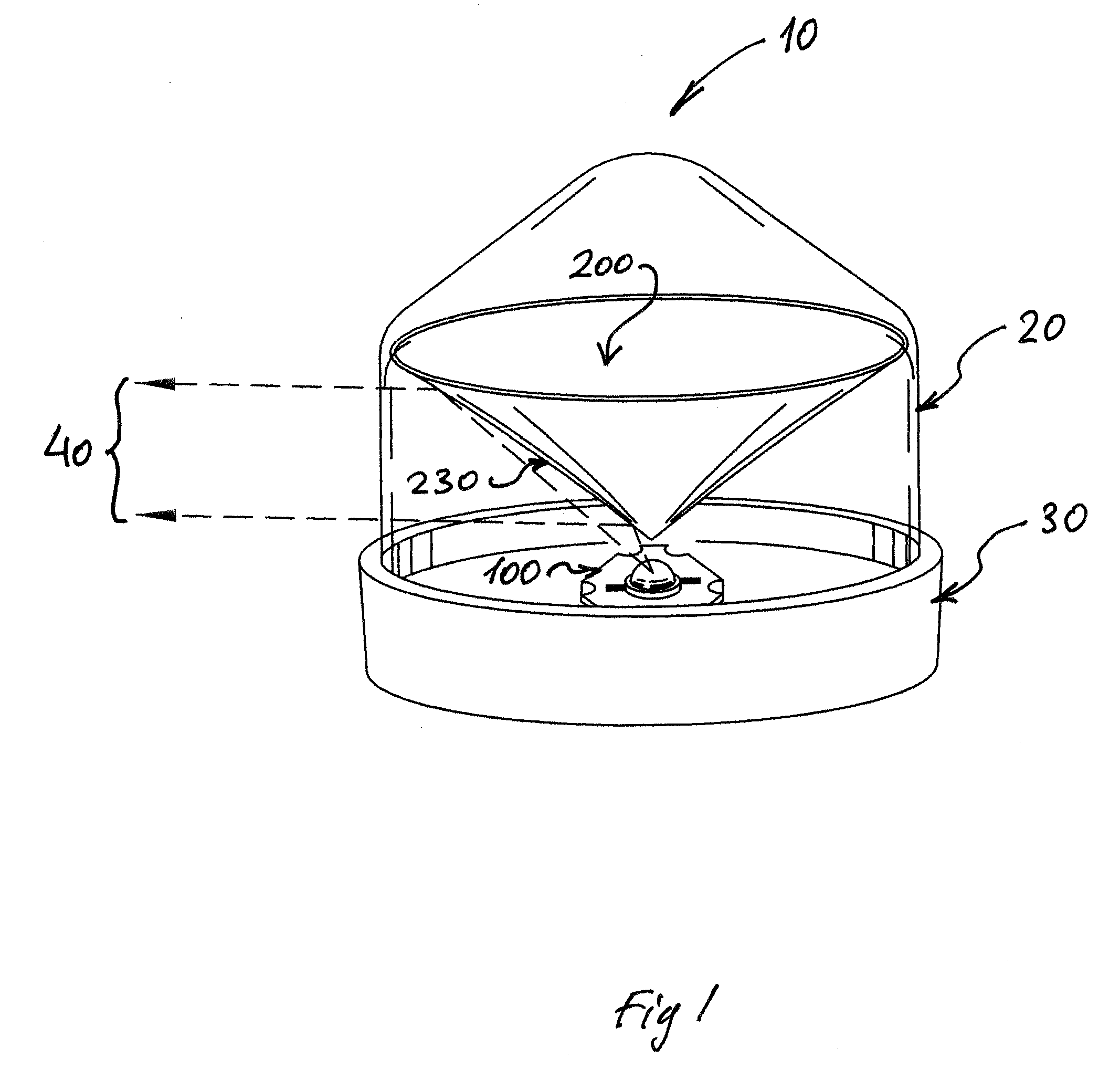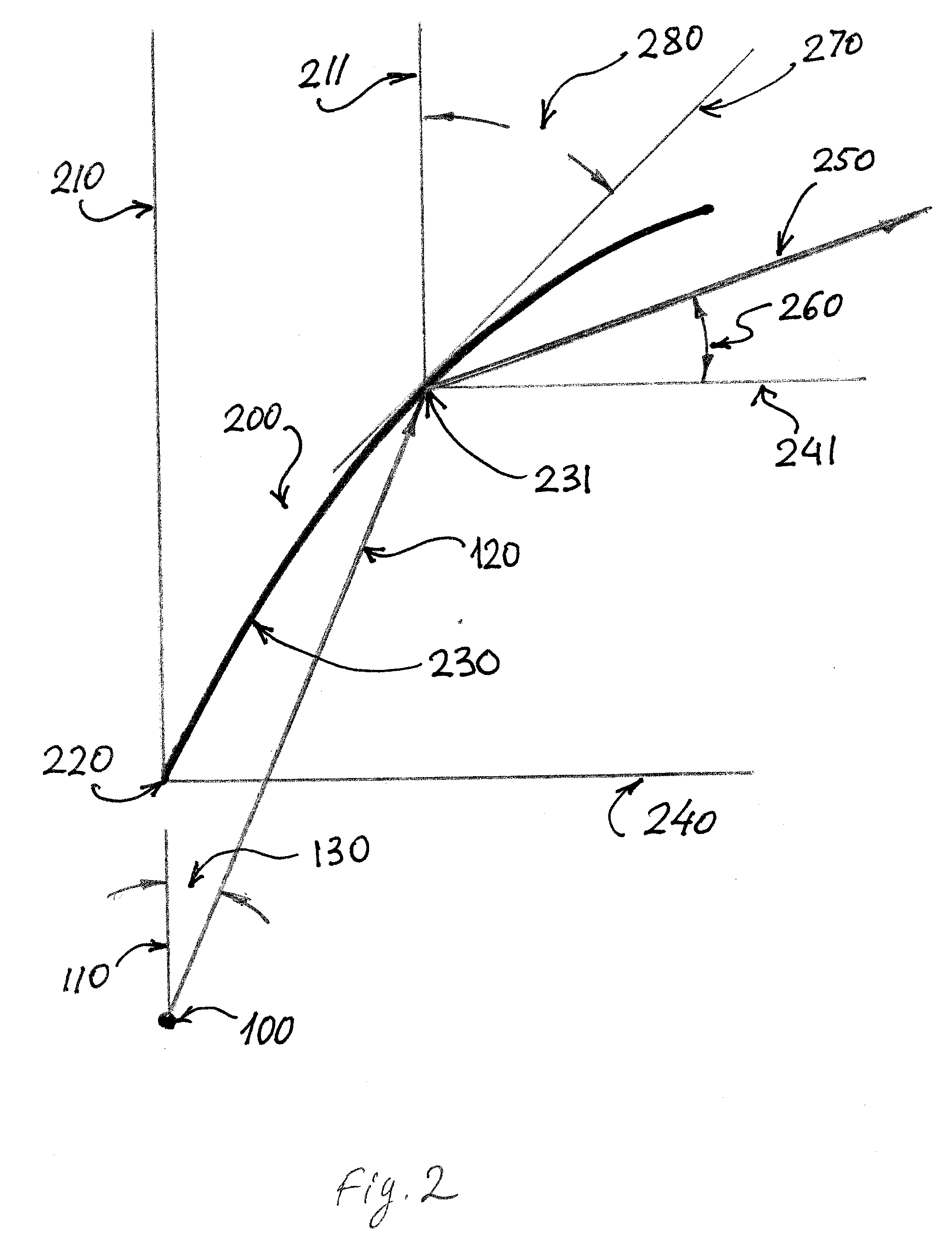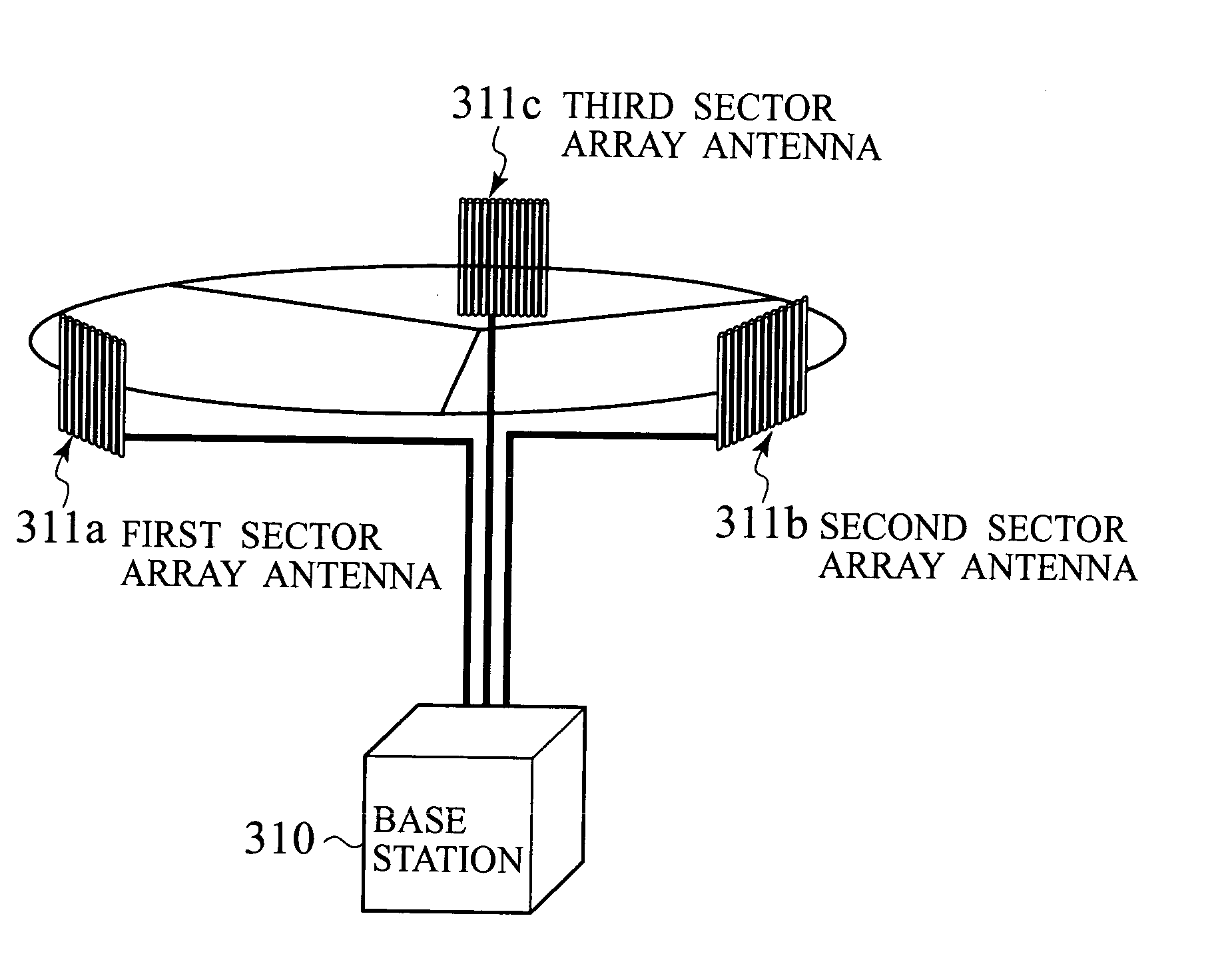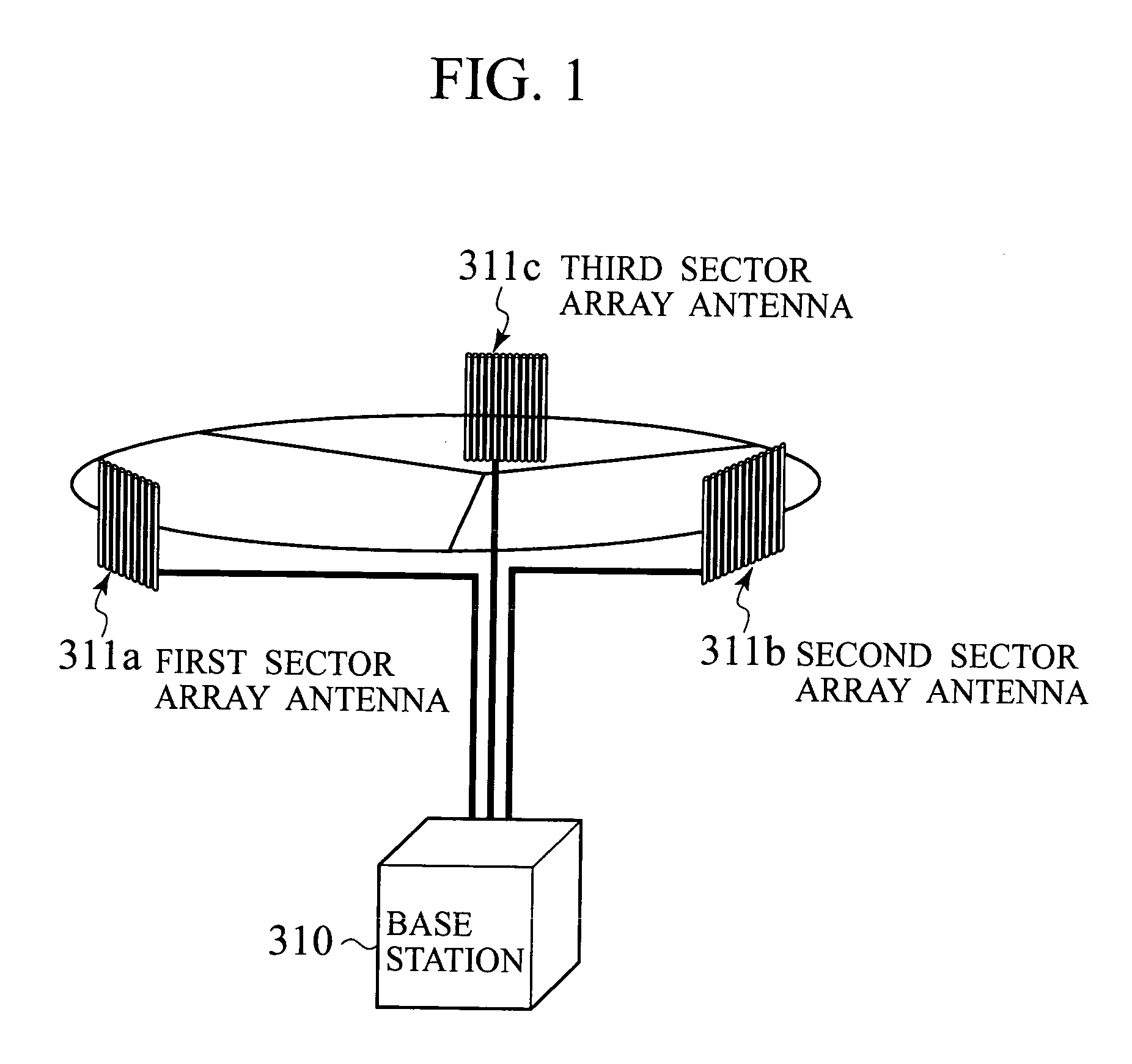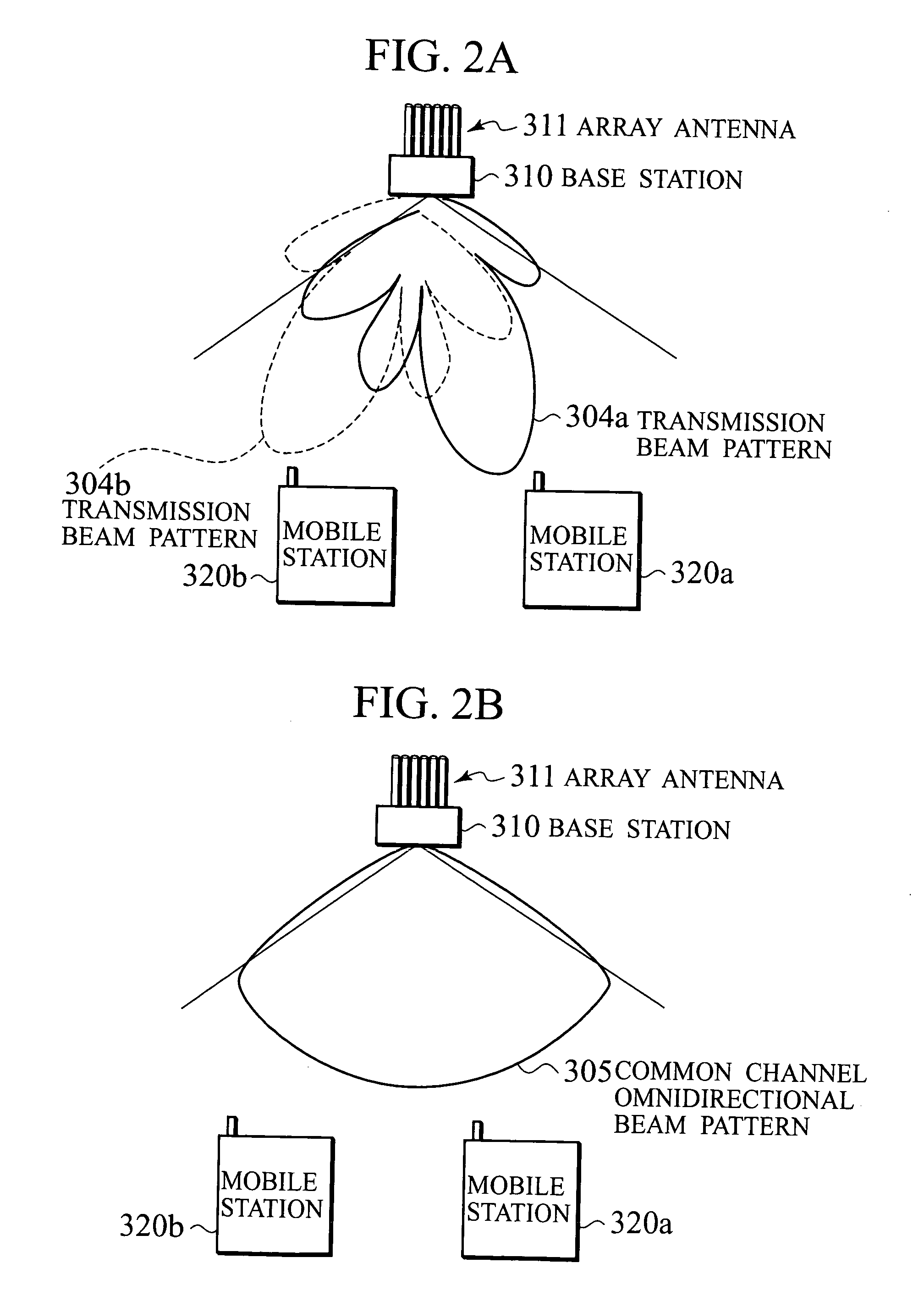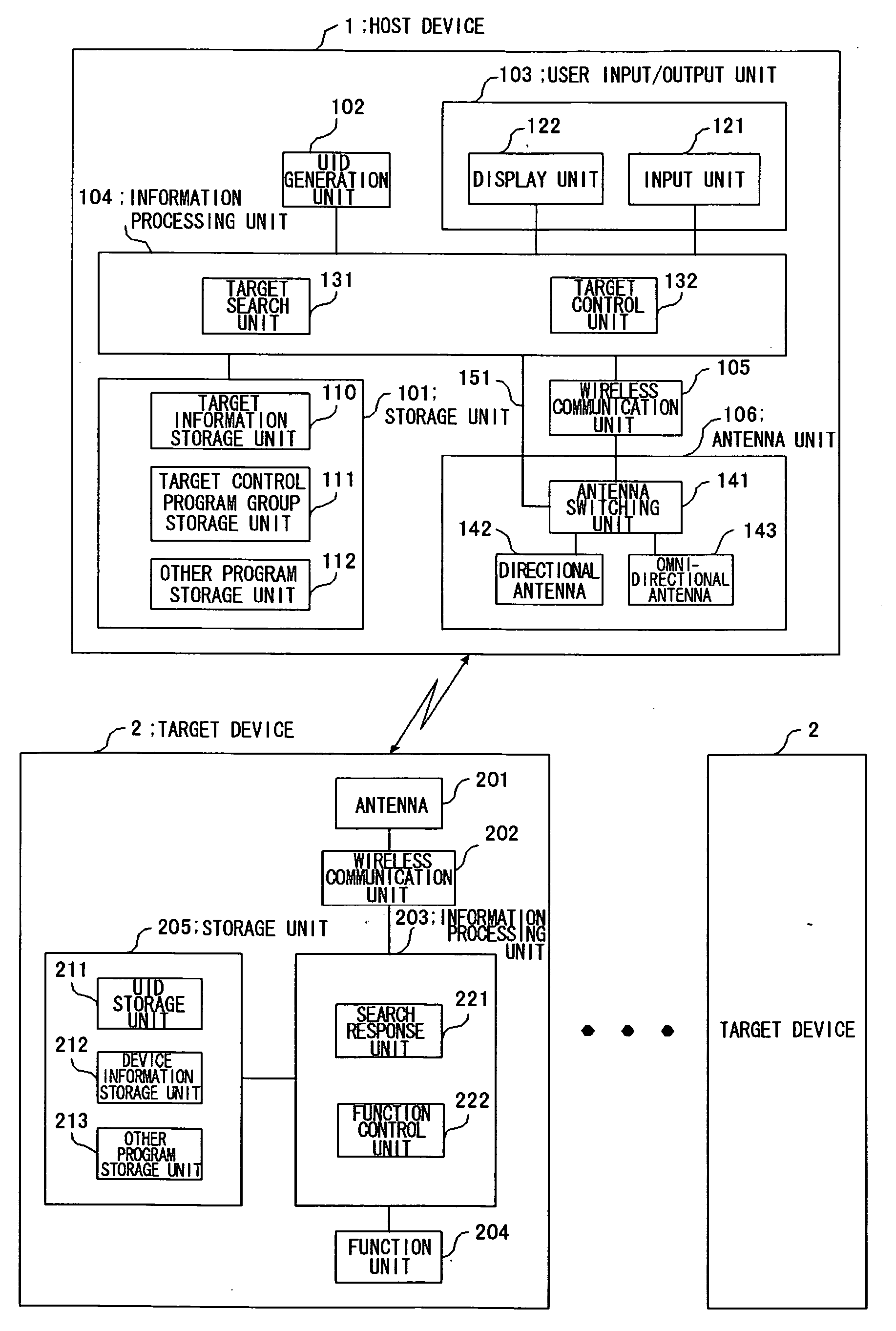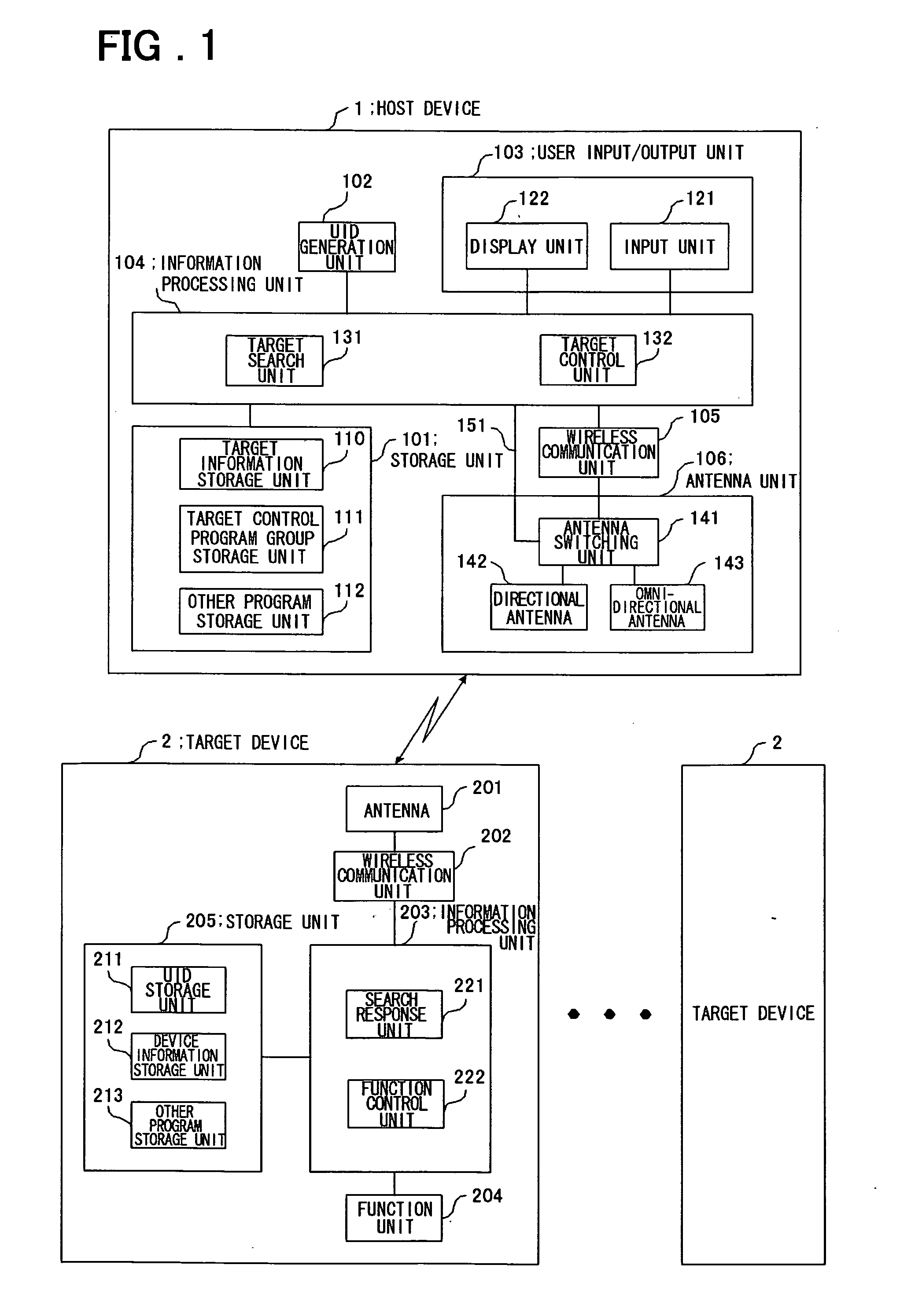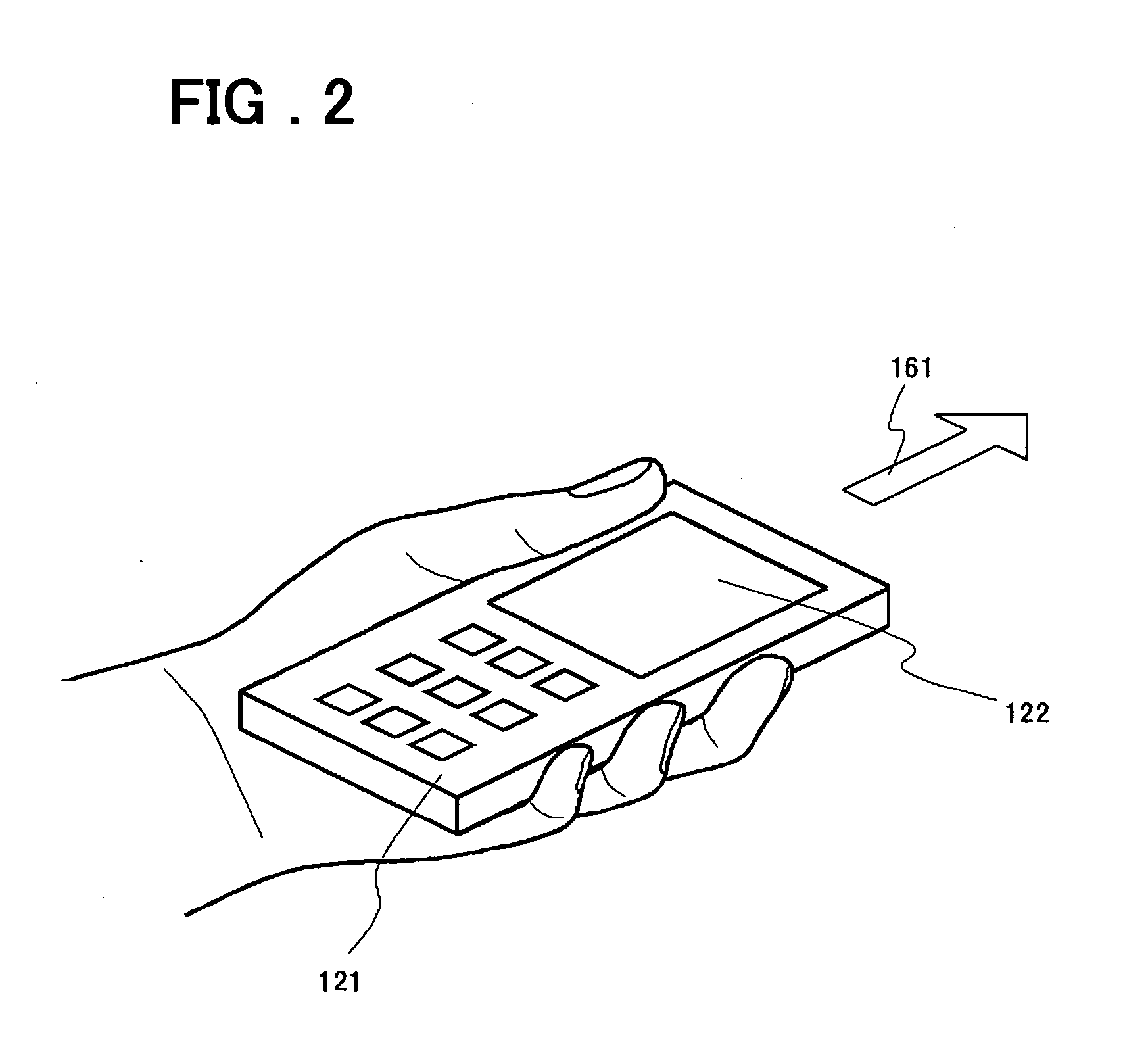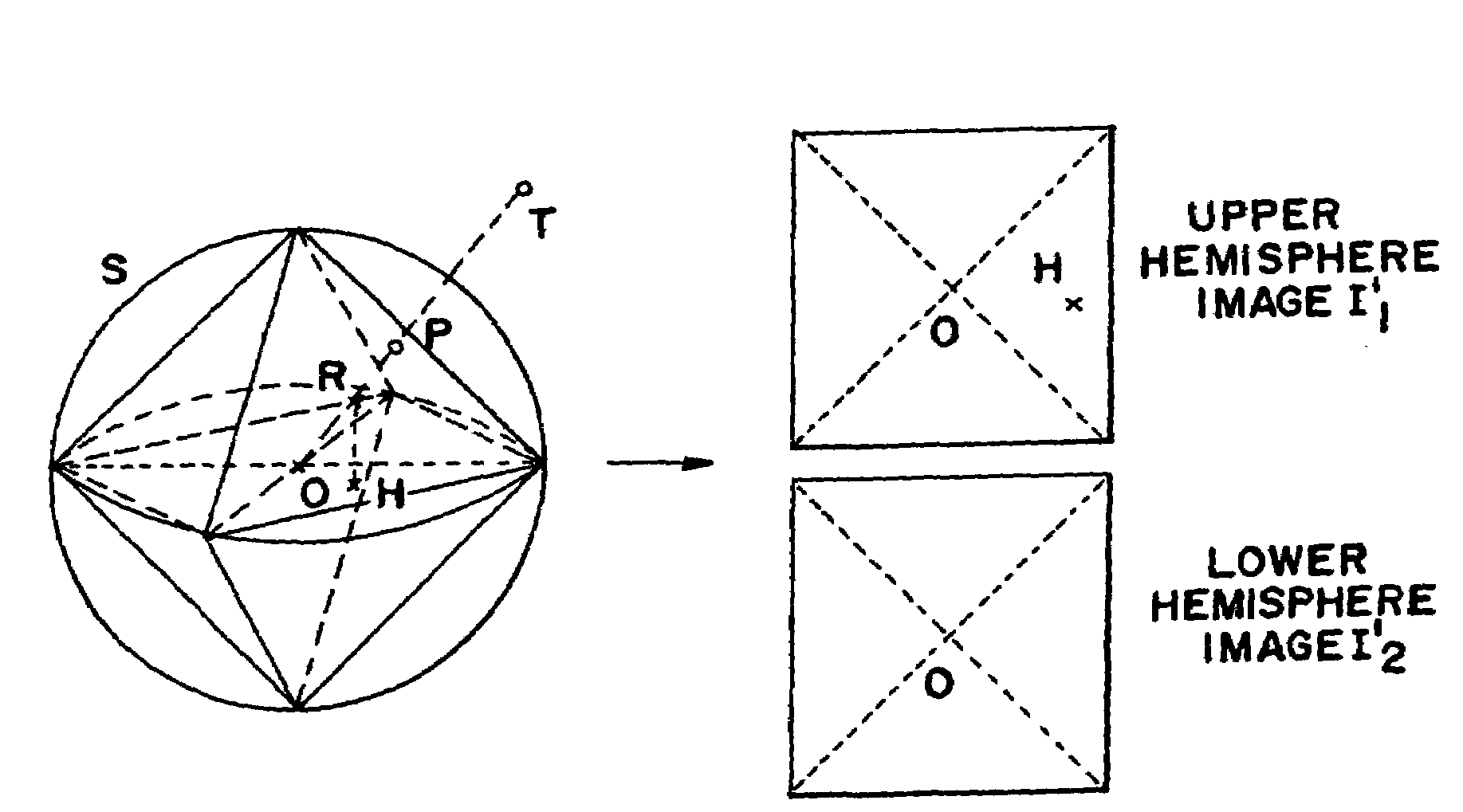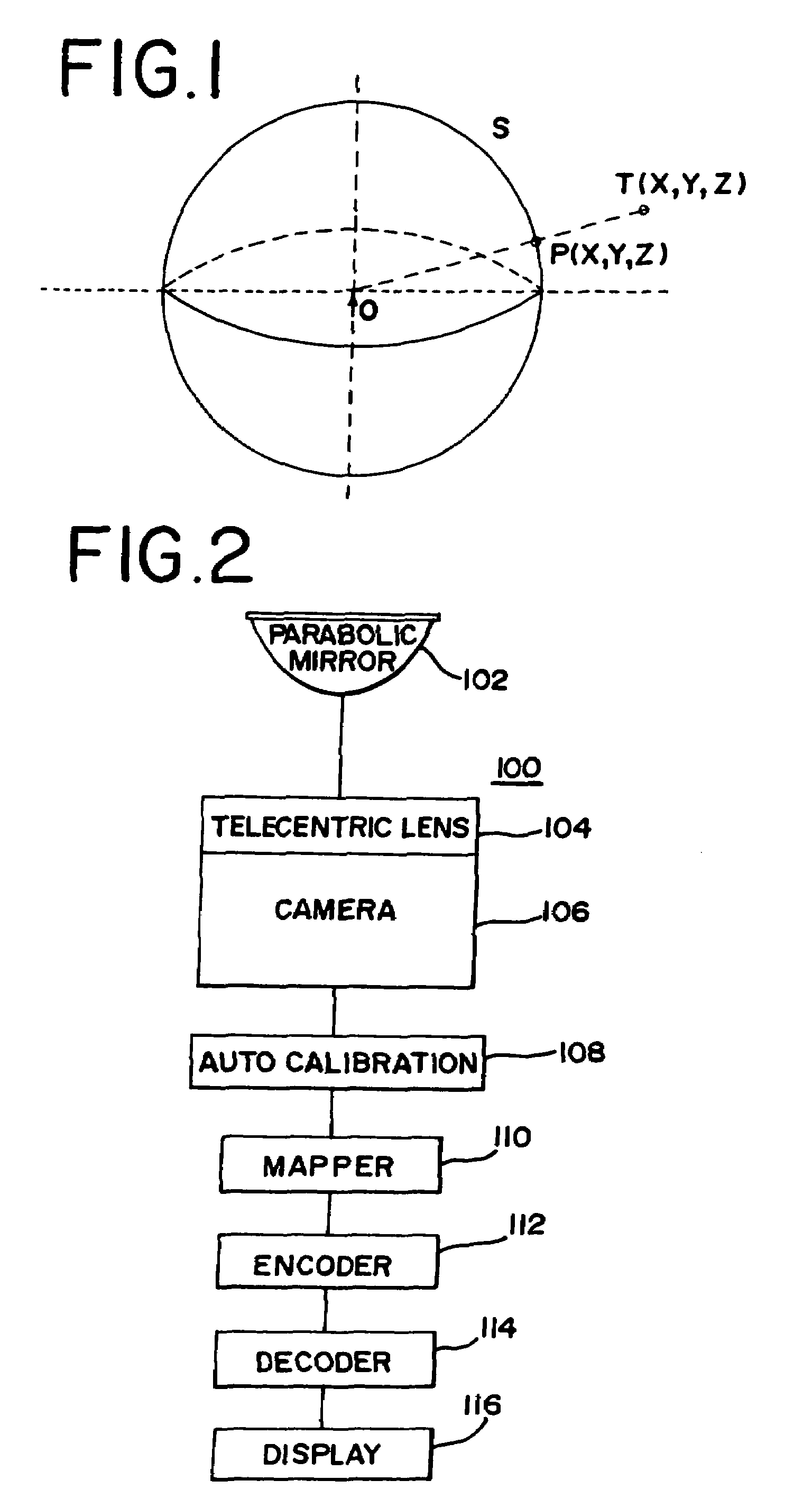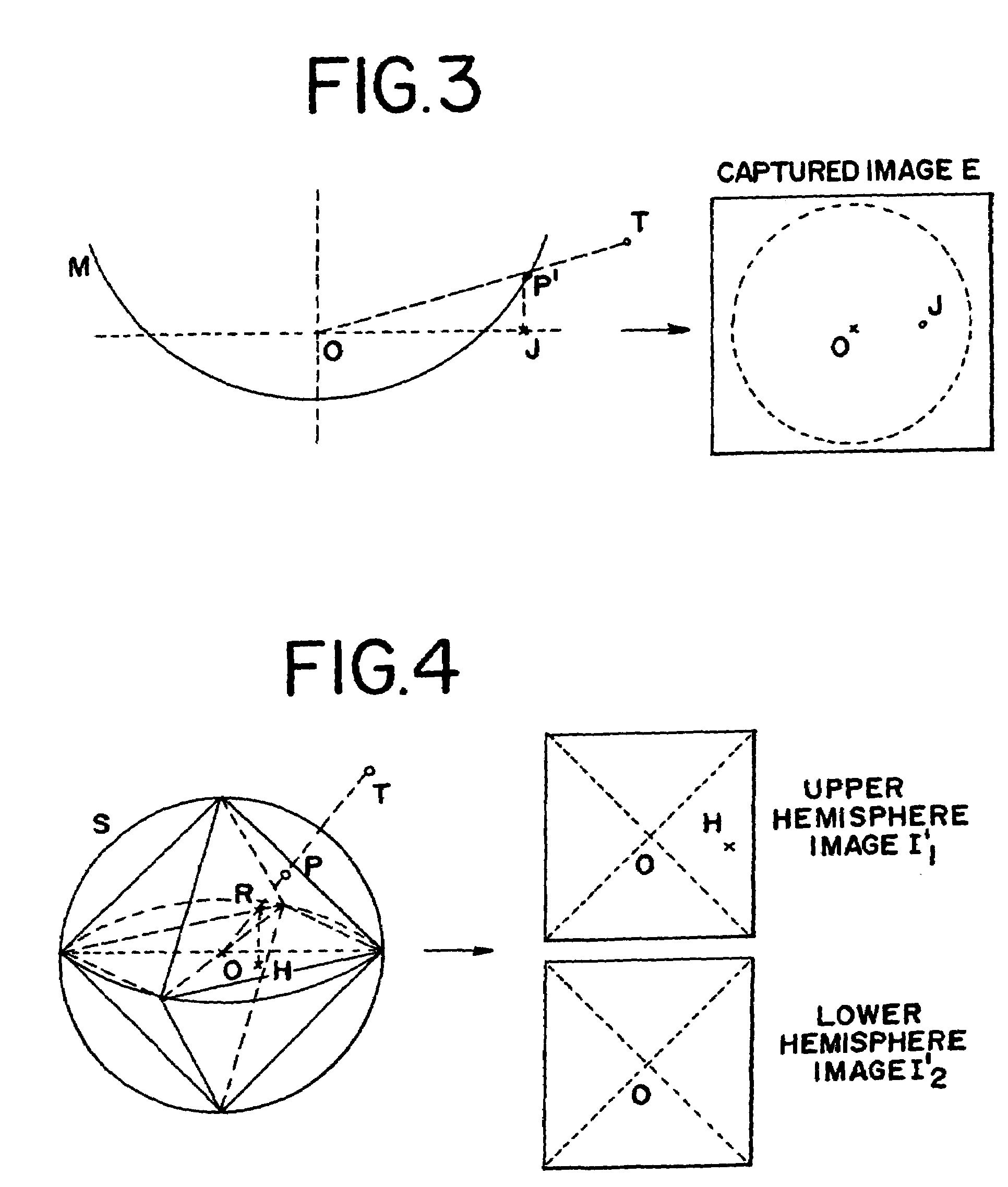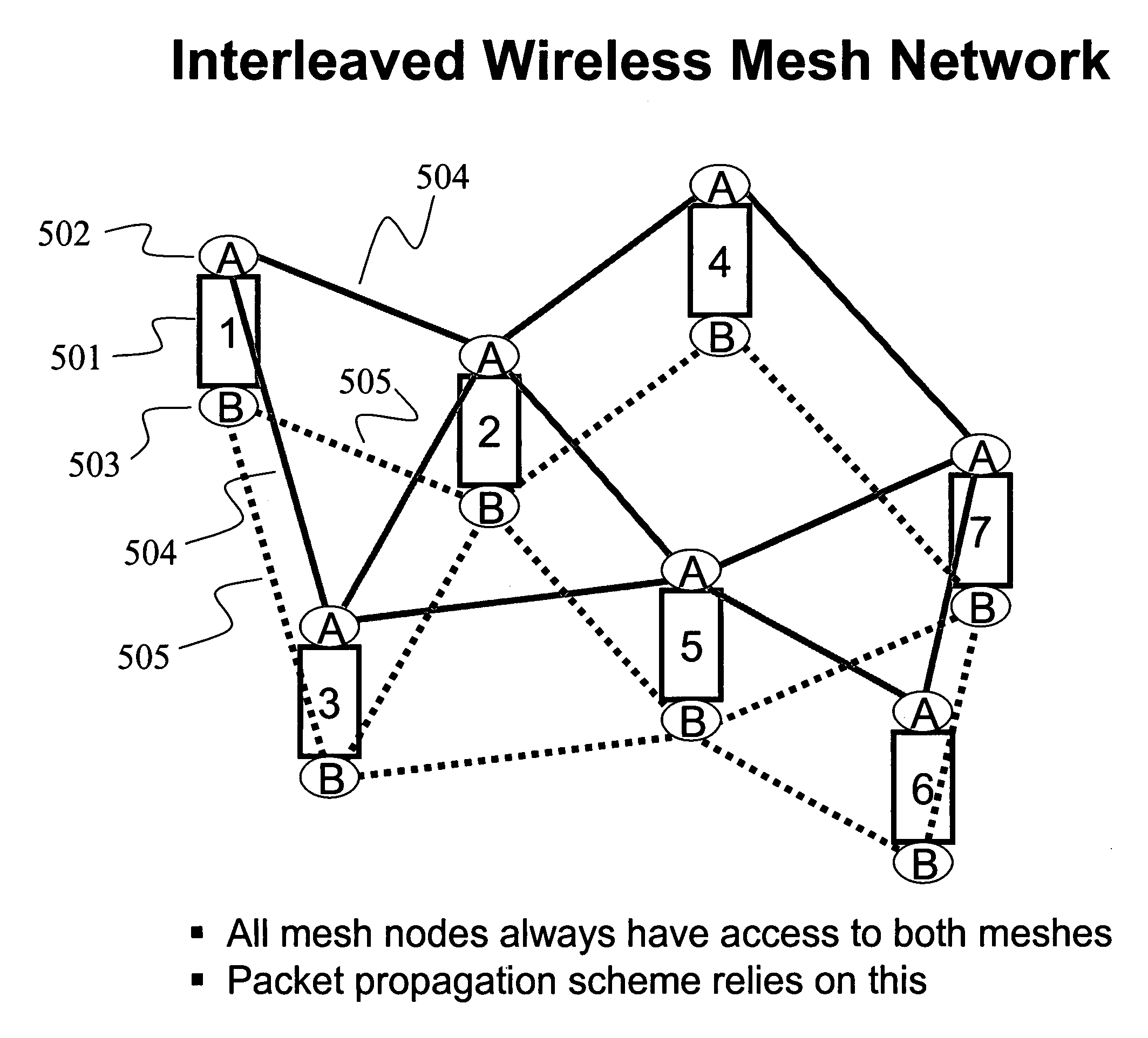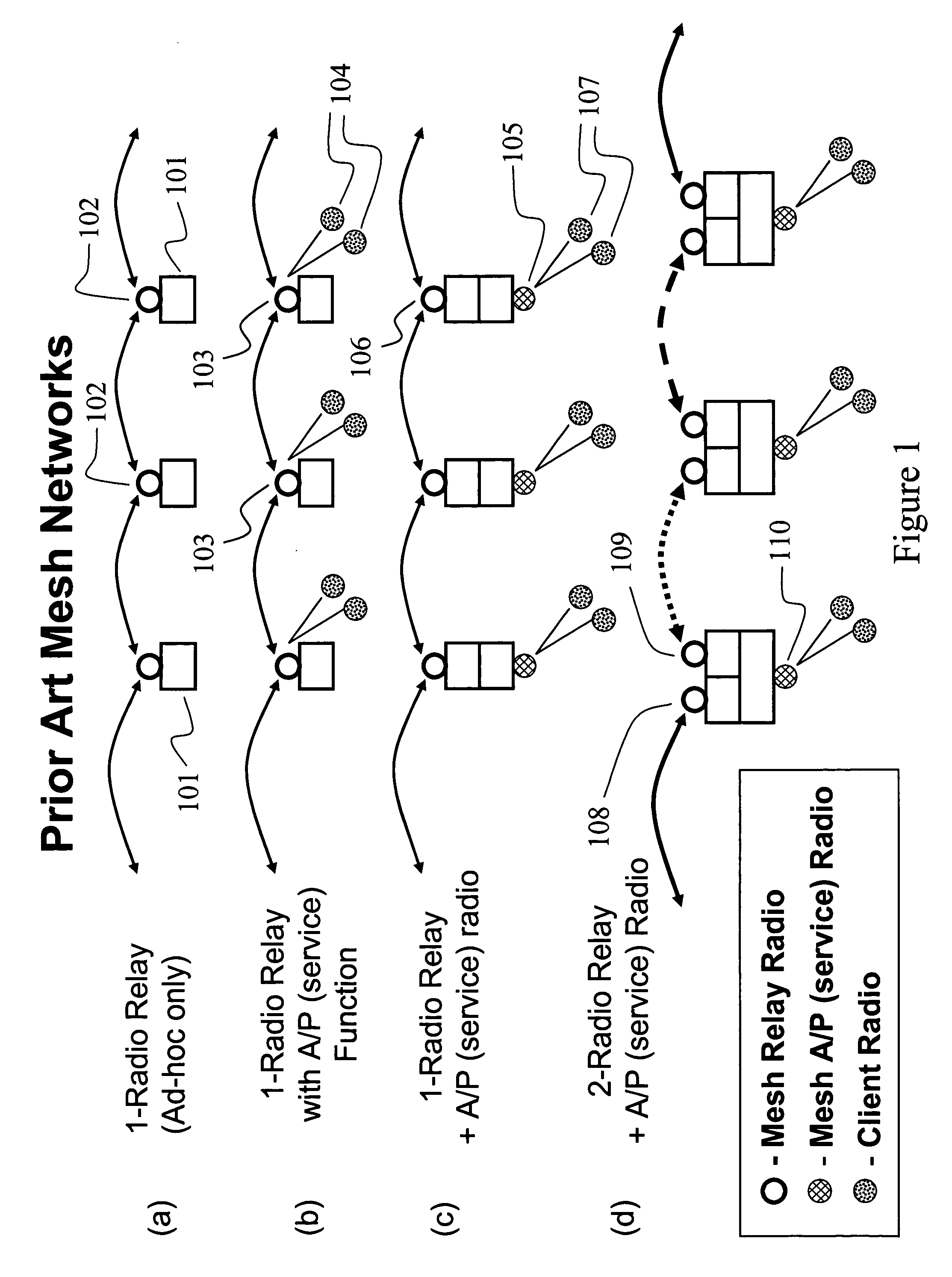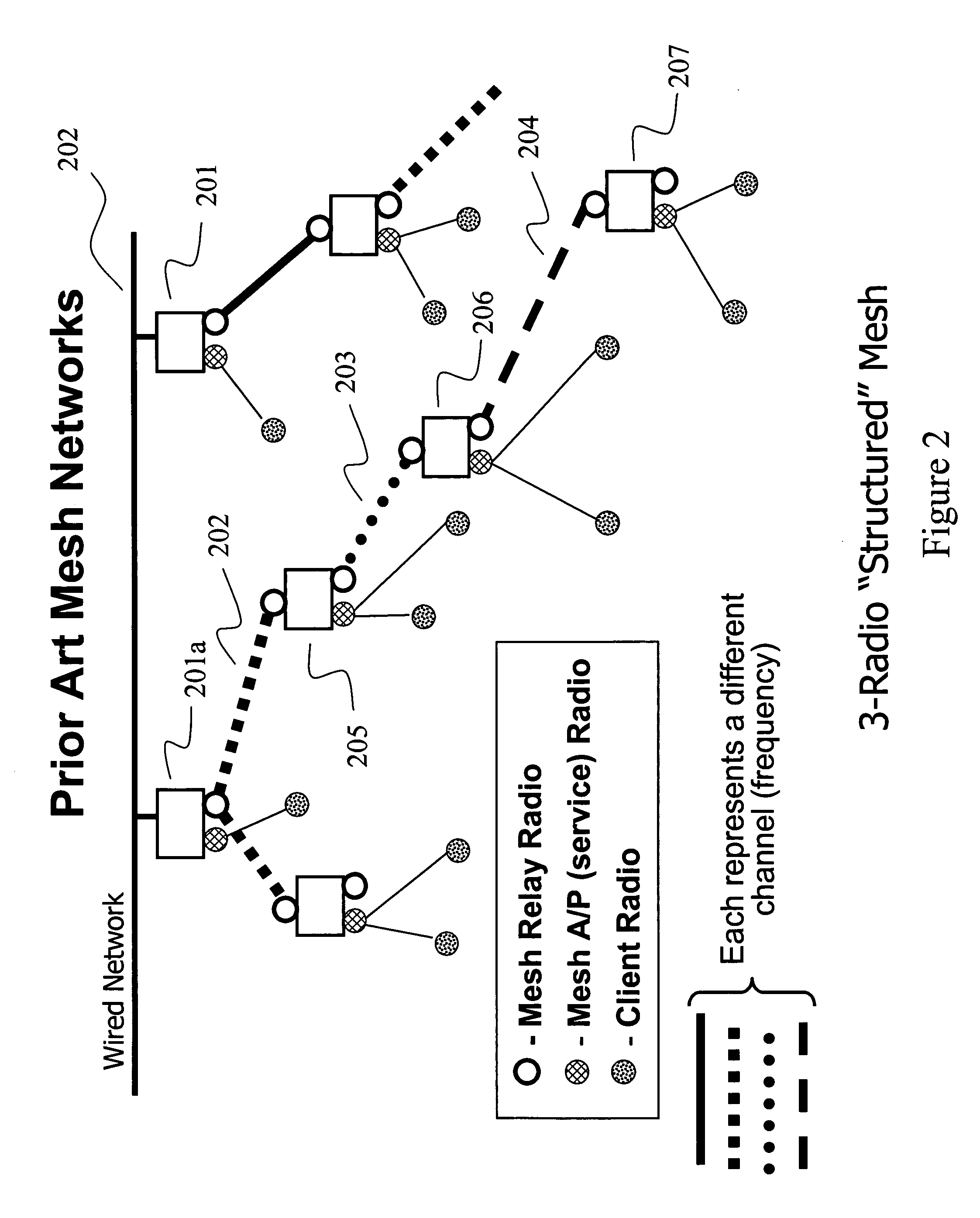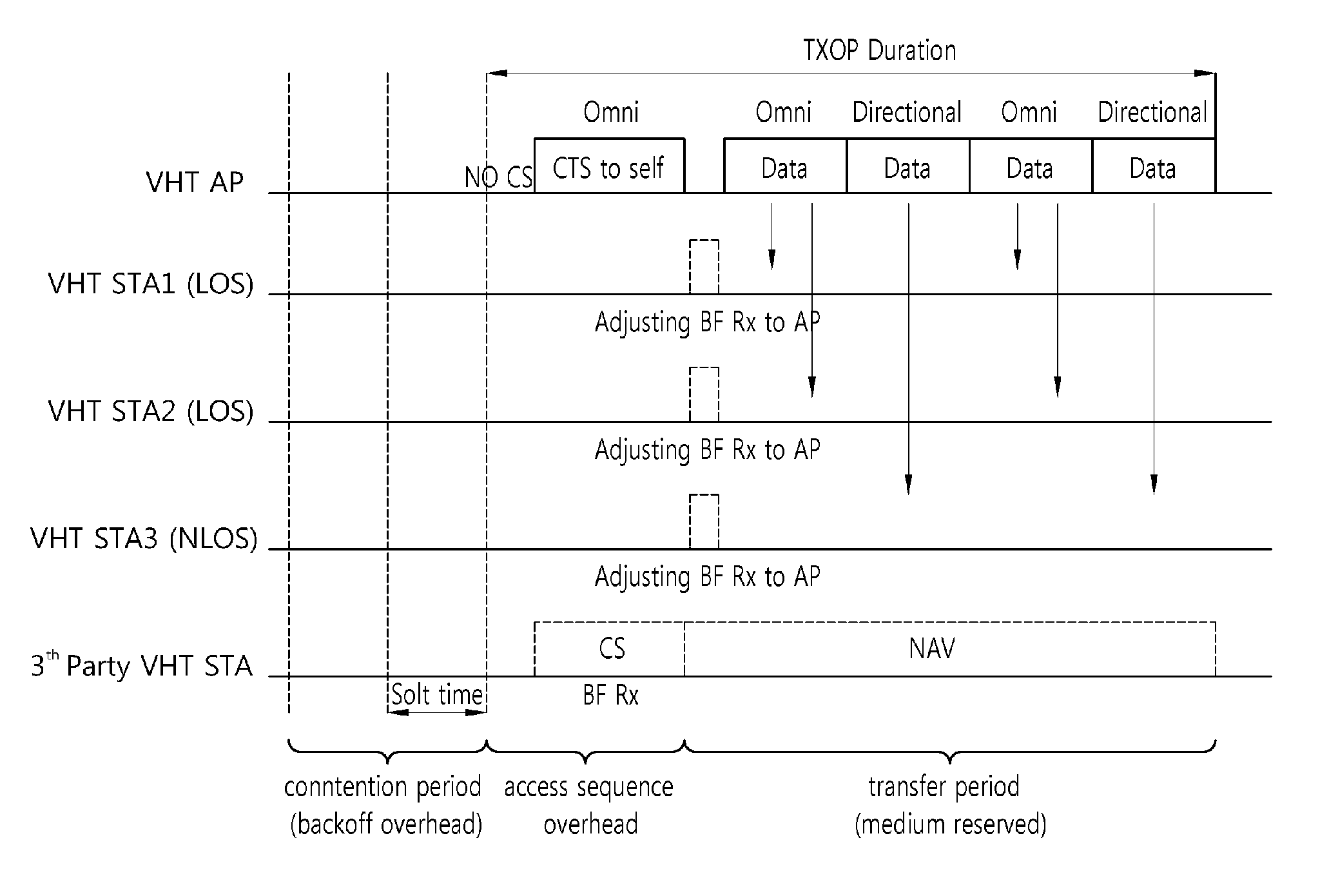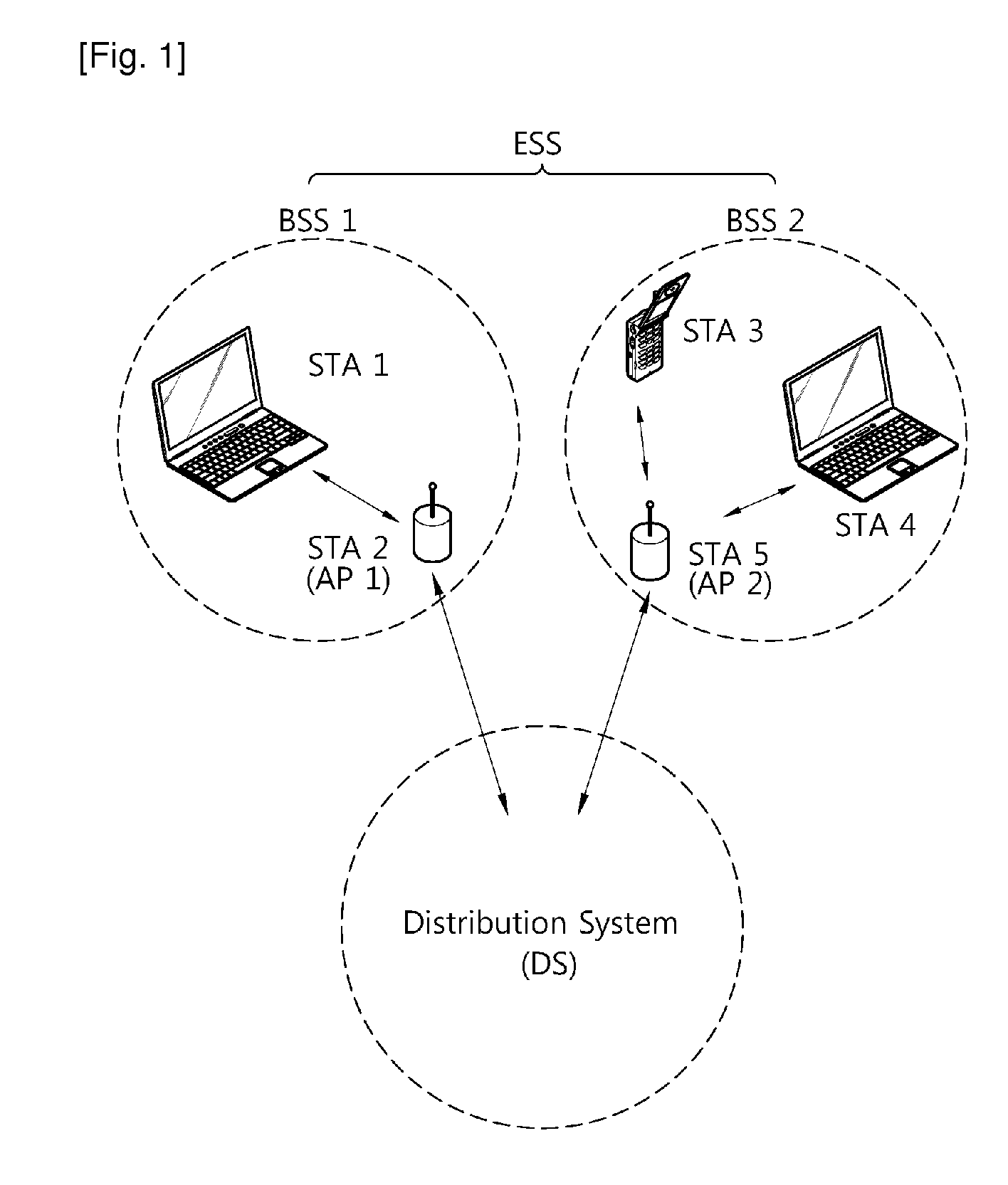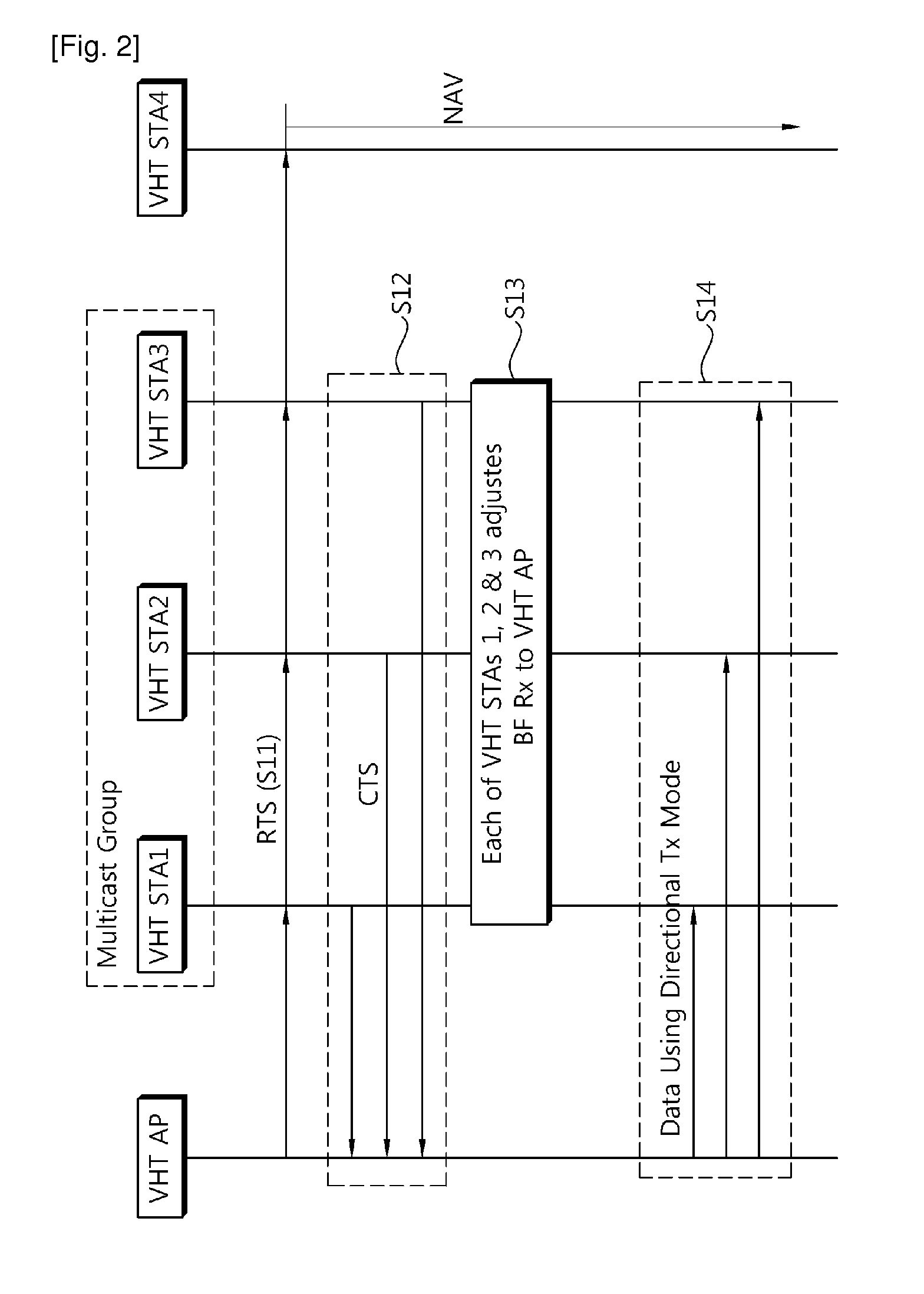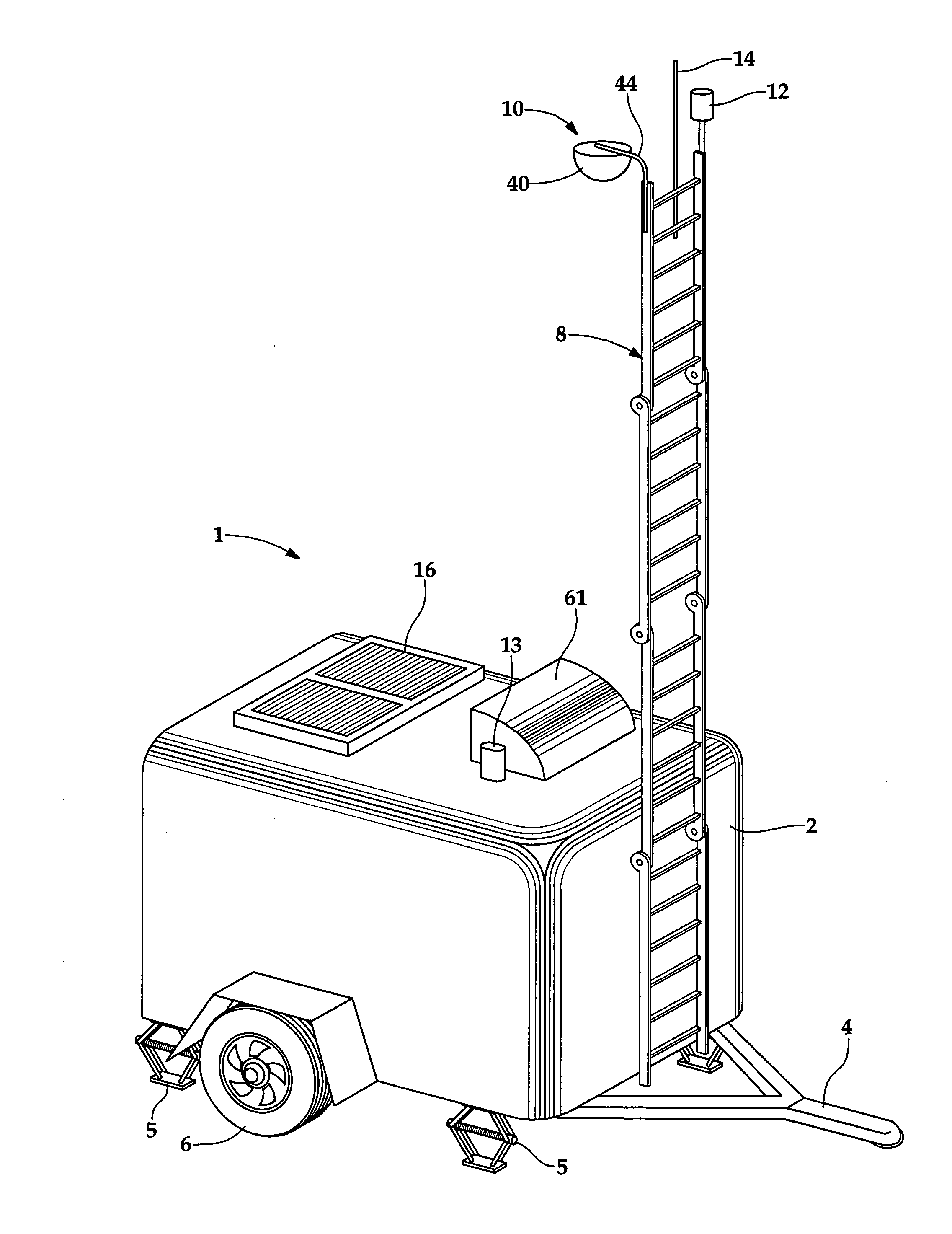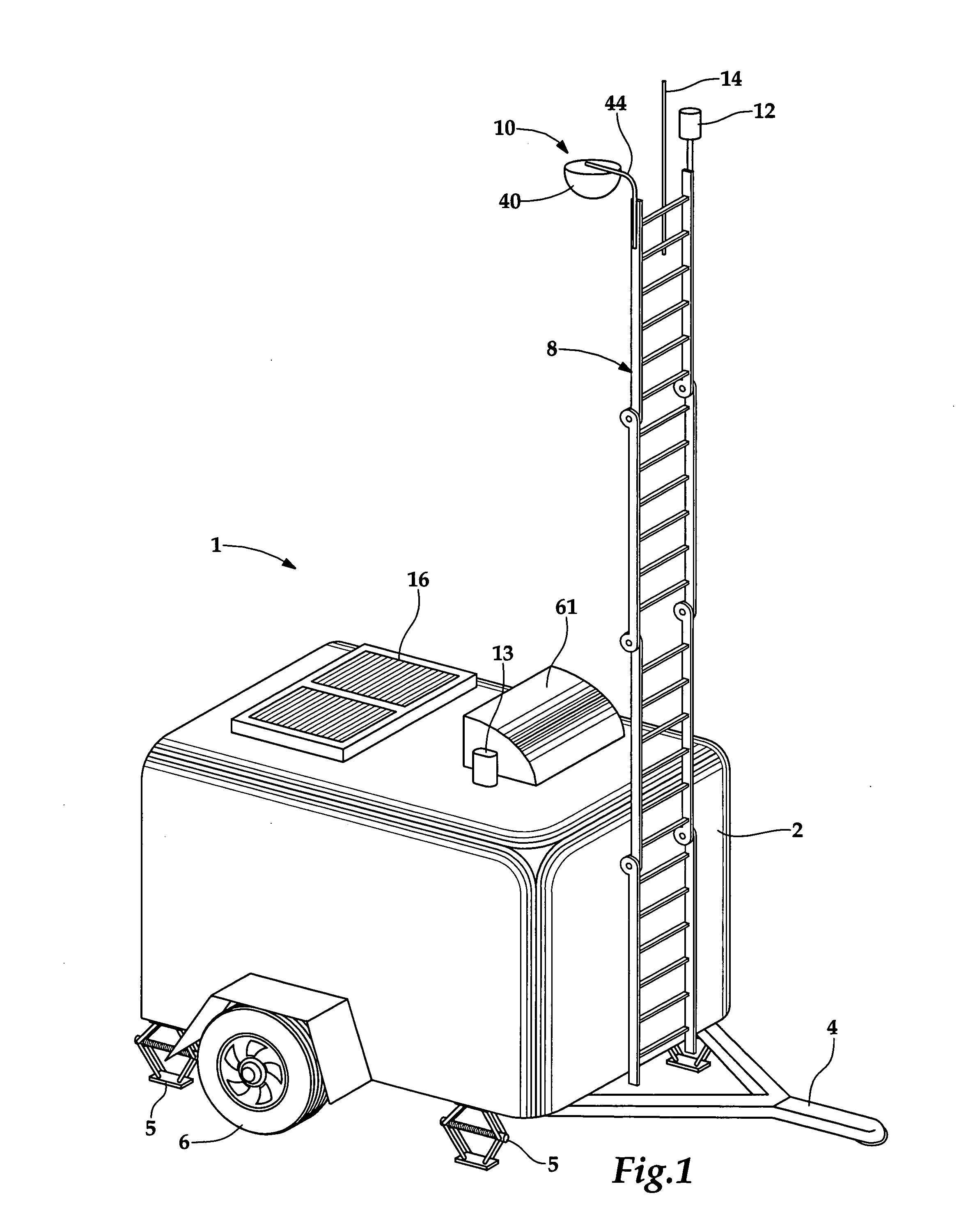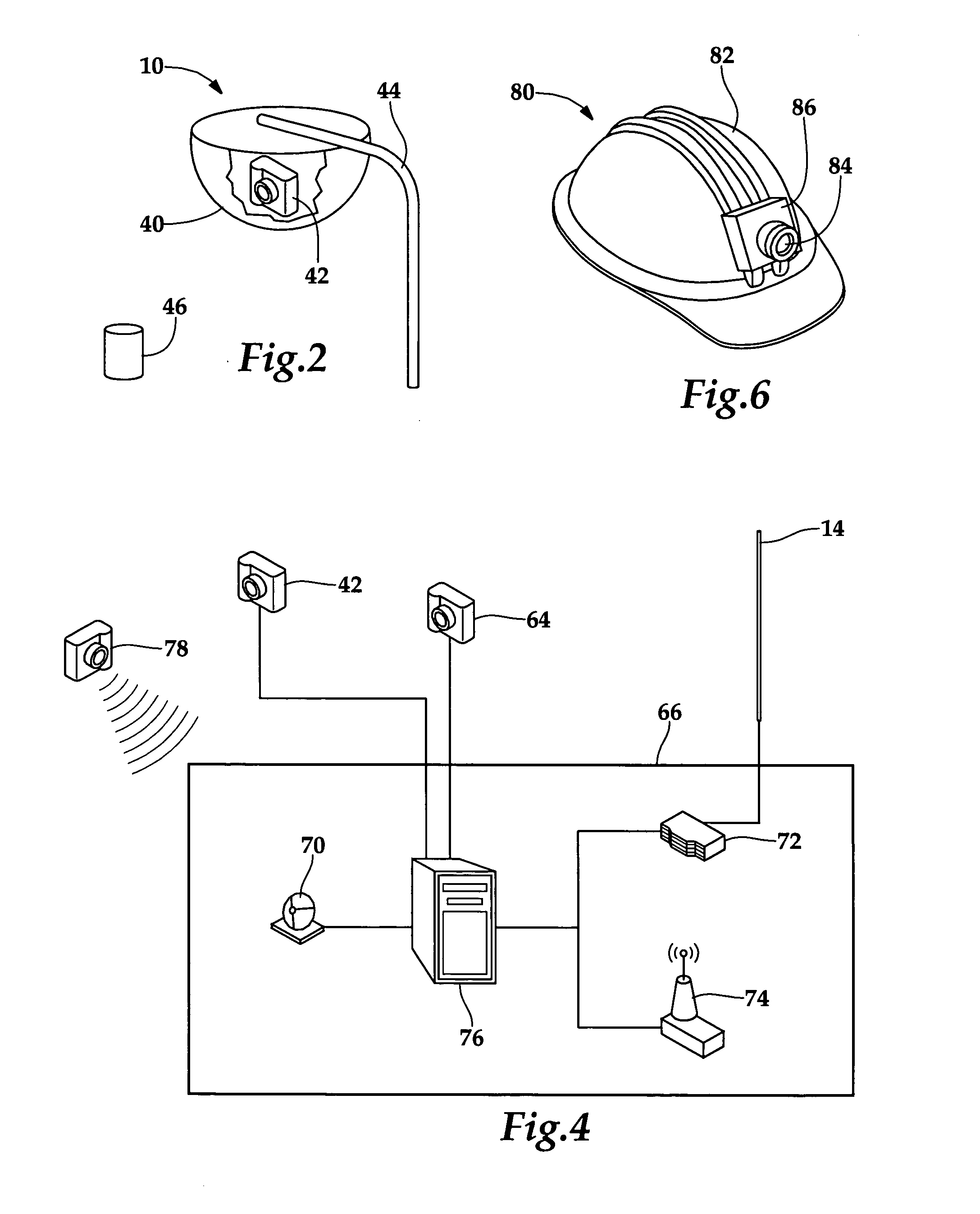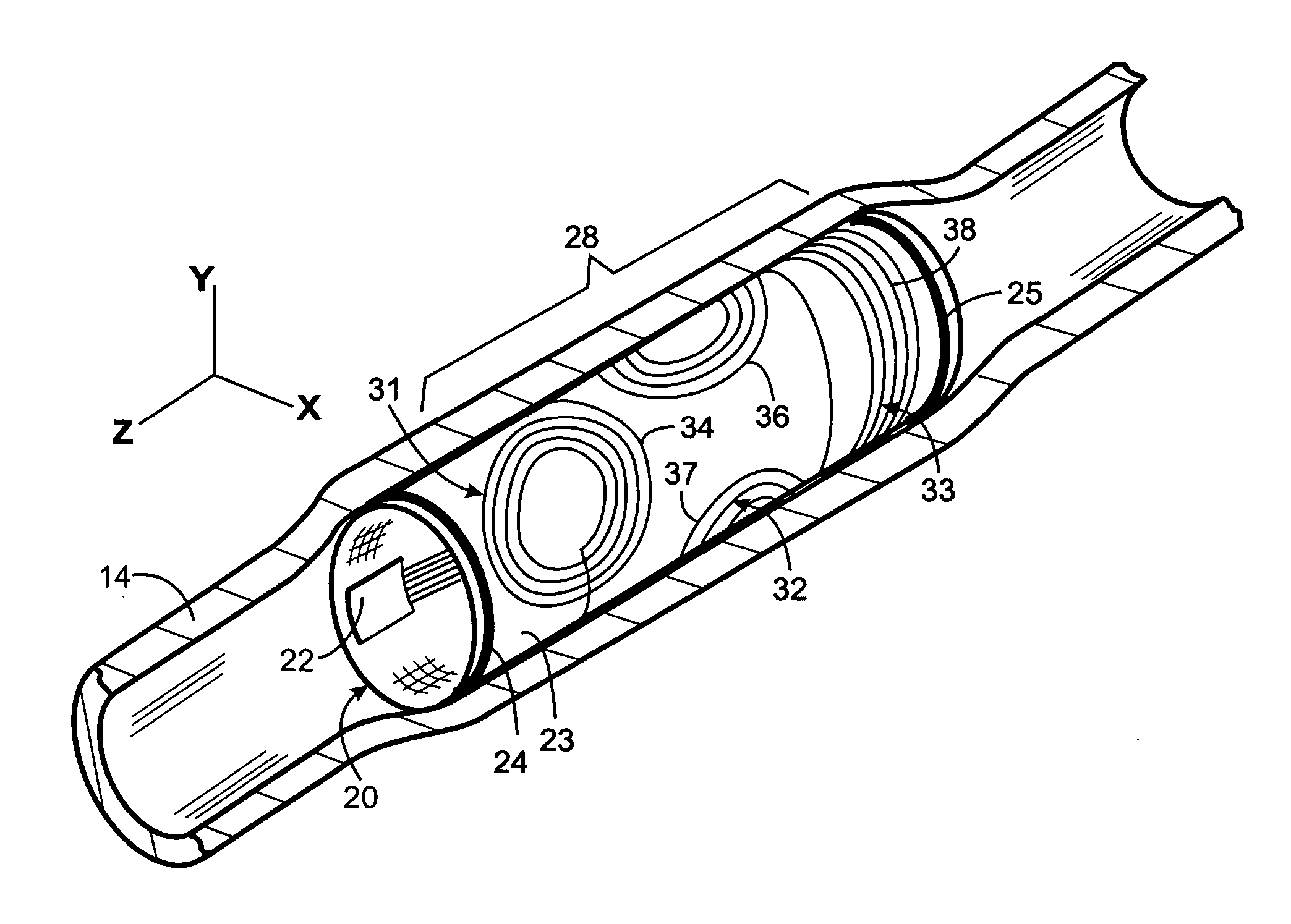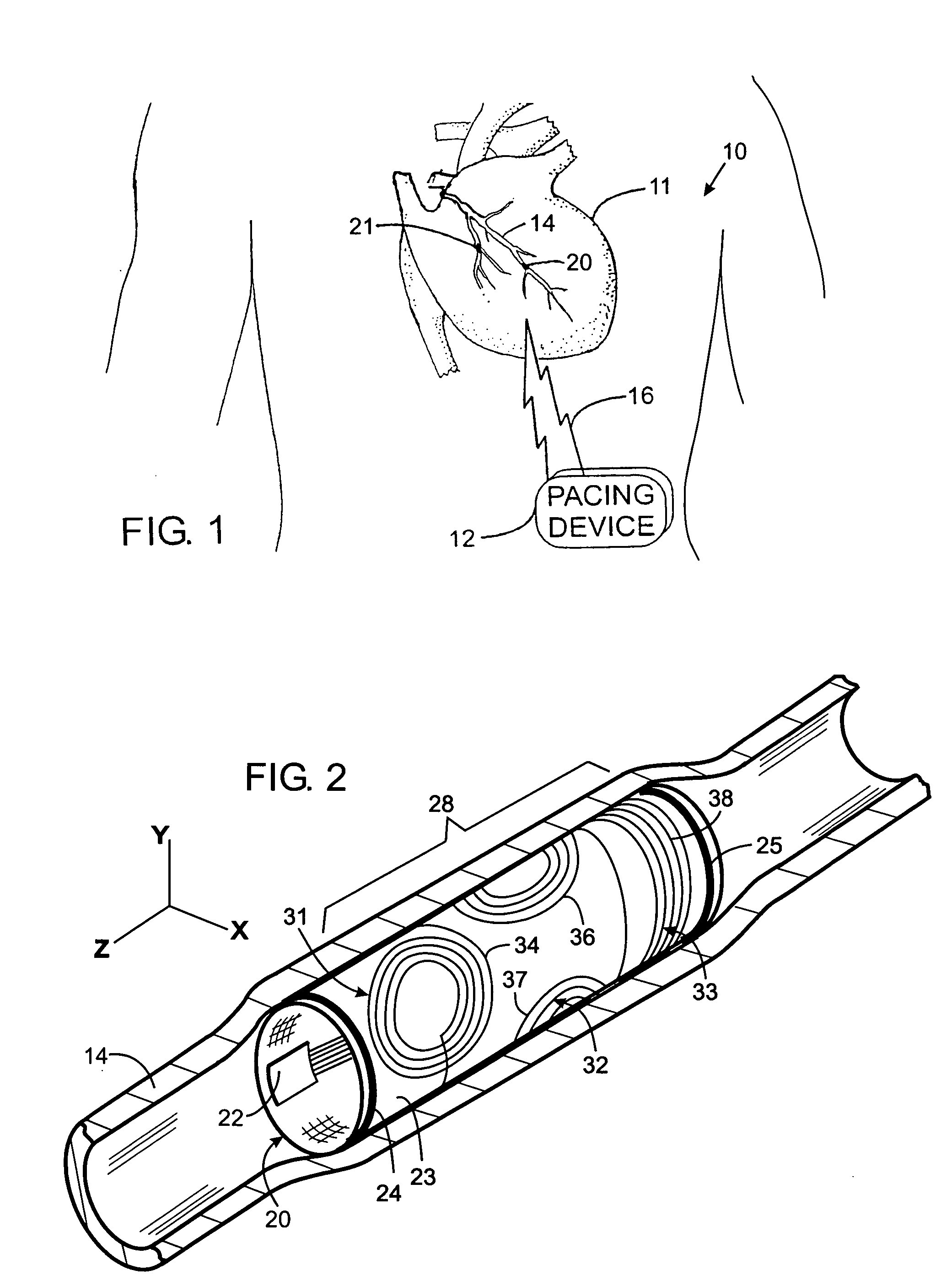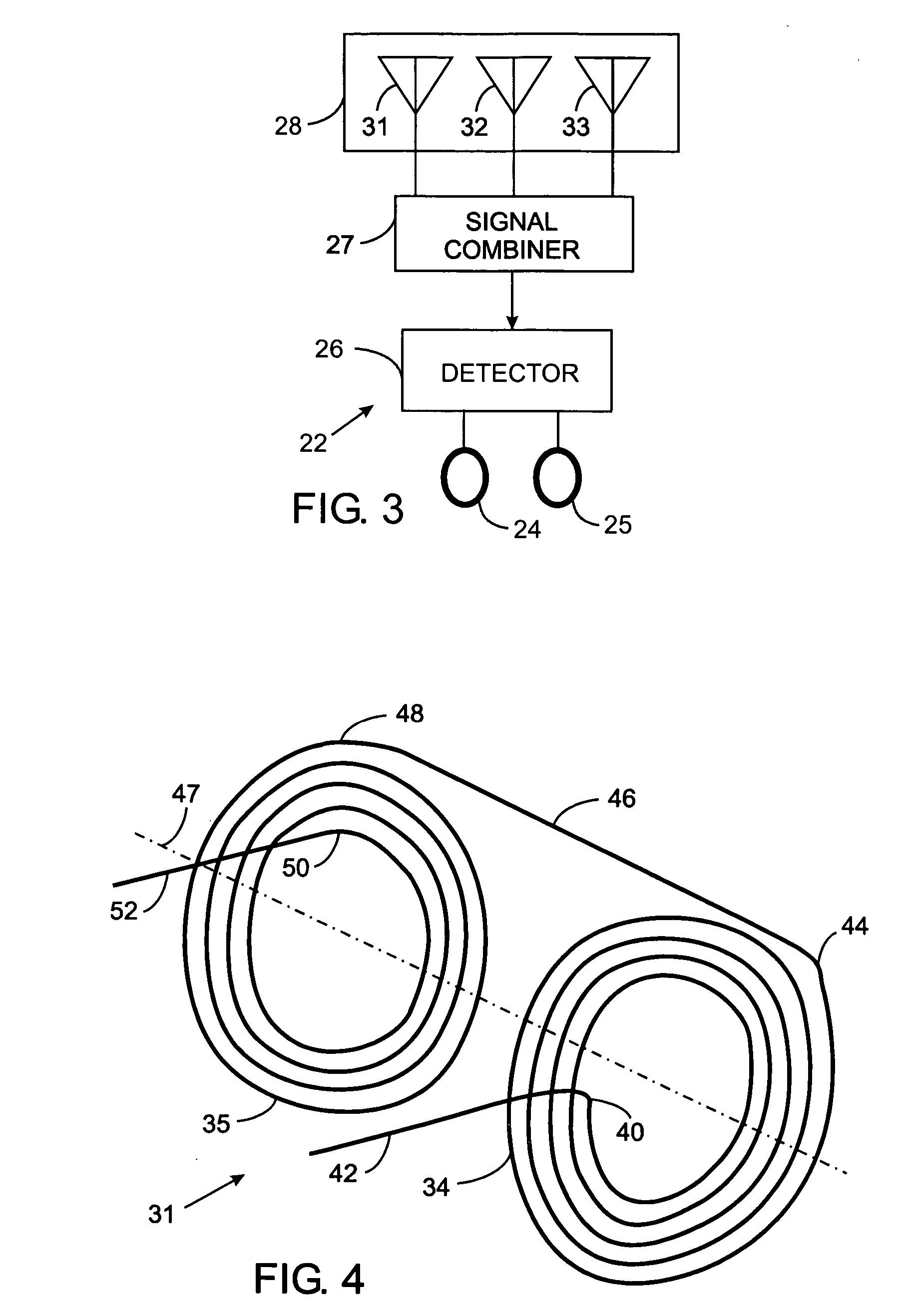Patents
Literature
Hiro is an intelligent assistant for R&D personnel, combined with Patent DNA, to facilitate innovative research.
1364 results about "Omnidirectional antenna" patented technology
Efficacy Topic
Property
Owner
Technical Advancement
Application Domain
Technology Topic
Technology Field Word
Patent Country/Region
Patent Type
Patent Status
Application Year
Inventor
In radio communication, an omnidirectional antenna is a class of antenna which radiates equal radio power in all directions perpendicular to an axis (azimuthal directions), with power varying with angle to the axis (elevation angle), declining to zero on the axis. When graphed in three dimensions (see graph) this radiation pattern is often described as doughnut-shaped. Note that this is different from an isotropic antenna, which radiates equal power in all directions, having a spherical radiation pattern. Omnidirectional antennas oriented vertically are widely used for nondirectional antennas on the surface of the Earth because they radiate equally in all horizontal directions, while the power radiated drops off with elevation angle so little radio energy is aimed into the sky or down toward the earth and wasted. Omnidirectional antennas are widely used for radio broadcasting antennas, and in mobile devices that use radio such as cell phones, FM radios, walkie-talkies, wireless computer networks, cordless phones, GPS, as well as for base stations that communicate with mobile radios, such as police and taxi dispatchers and aircraft communications.
Dual band, low profile omnidirectional antenna
InactiveUS7042403B2Simultaneous aerial operationsAntenna supports/mountingsOmnidirectional antennaDual band antenna
A low-profile dual-band antenna includes a ground plane. An “E”-shaped metal plate is located a first distance from the ground plane and includes first and second outer extensions and an inner extension of the metal plate. A feed tab connects the inner extension and the ground plane. A shorting tab connects the inner extension and the ground plane. The low-profile dual-band antenna communicates first radio frequency (RF) signals in a first RF band and second RF signals in a second RF band. The first RF signals and the second RF signals are vertical polarized signals. The low-profile dual-band antenna produces a radiation pattern that is omnidirectional in the azimuth plane and vertically polarized in a horizontal plane when communicating the first RF signals and the second RF signals. The first RF band and the second RF band can be independently tuned.
Owner:GM GLOBAL TECH OPERATIONS LLC
Omnidirectional sonde and line locator
InactiveUS7009399B2Easy to useSimple methodAlarmsElectric/magnetic detection for transportElectromagnetic shieldingGraphical user interface testing
At least one antenna array including three mutually orthogonal antennas each sharing a common center point senses an electromagnetic signal emitted by a buried object such as a utility line, pipe or sonde. A circuit at least partially mounted in a housing is connected to the array and determines a location of the buried object by measuring signal strength and field angles in three dimensions without having to align the antenna array relative to the buried object while eliminating nulls and false peaks. A graphical user interface (GUI) has user-friendly icons, symbols, menus, numbers and graphical and auditory representation of signal strength. A SEARCH view indicates signal strength by showing a rotating strength indicator, a trace mode MAP view in which line location is shown by a line that moves side-to-side, and a sonde mode MAP view in which sonde location is shown by a moving line, pole and equator.
Owner:SEEK TECH
Remote vehicle control system utilizing multiple antennas
ActiveUS20100305779A1Low costDigital data processing detailsAnti-theft devicesTransceiverDriver/operator
A remote vehicle control system having a base transceiver mounted in a vehicle and a mobile key fob. The base transceiver utilizes an omni-directional antenna to communicate wirelessly with the key fob via the IEEE 802.15.4 communication protocol. Additional antennas are mounted to the vehicle and are also tuned to communicate over the IEEE 802.15.4 bandwidth. The additional antennas have radiation patterns extending outwardly to various sides of the vehicle (e.g., driver, passenger and rear sides). The system provides remote control functions and enables passive keyless entry functions such as unlocking doors or trunk latches by detecting the presence of the key fob proximate to one or more sides of the vehicle based on the ability of the key fob to communicate over IEEE 802.15.4 via the additional antennas.
Owner:MAGNA ELECTRONICS
Out-of-band radio link protocol and network architecture for a wireless network composed of wireless terminals with millimetre wave frequency range radio units
ActiveUS20110053498A1Optimization rangeStable flowRadio relay systemsWireless communicationNetwork architectureDirectional antenna
The present invention relates to a wireless transmitter comprising a transmitter radio unit working a wireless transmitter comprising a transmitter radio unit working in the millimeter wave frequency band using a directional antenna and a bidirectional radio unit working in a frequency range different from said transmitter radio unit and using an omnidirectional antenna. The invention further relates to a wireless receiver and a wireless relay.
Owner:SONY CORP
Omni-directional antenna system for wireless communication
InactiveUS20120038520A1Reduce lossesReduce exposureSimultaneous aerial operationsAntenna supports/mountingsDirectional antennaConductive materials
A wireless device having an improved antenna system is disclosed comprising one or more antenna, preferably circularly polarized antenna, for transmitting or receiving a signal, and one or more floating ground planes, wherein the floating ground plane preferably is electrically isolated from and in sufficient proximity to the antenna so that it is inductively coupled to the antenna. The floating ground plane may comprise one or more of a strip, band, foil, plate, block, wire mesh, sheet or coating of conductive material and, for example, may be a relatively thin copper strip, band, foil or coating. The circularly polarized antenna, preferably comprises a flat planar shaped radiating element sized and configured to resonate at a predetermined, desired frequency, frequencies or band of frequencies, and a flat planar shaped antenna ground, both radiating element and antenna ground formed on the same printed circuit board. The radiating element is electrically isolated from the antenna ground but sufficiently close to resonate at the desired frequencies. Preferably the floating ground plane is larger than or more massive than the antenna ground, and preferably larger than or more massive than the radiating element. In a further embodiment the wireless device comprises a housing for interfacing with a user, the housing comprising a conductive contact exposed to the exterior of the housing and configured to be contacted by a user, wherein the conductive contact is electrically connected to the floating ground plane, preferably so that the user is coupled to the antenna and becomes part of the antenna system. The floating ground plane may also preferably be configured to substantially cover or overlap the antenna, and may also be configured to distribute and propagate the electromagnetic signals away from the head of the user.
Owner:KAONETICS TECH
Dual-feed series microstrip patch array
ActiveUS8063832B1Equally distributedSimultaneous aerial operationsRadiating elements structural formsOmnidirectional antennaOmni directional
A sub-array of slot-coupled microstrip antennas fed using microstrip lines on an opposing substrate. Also provided is an omni-directional antenna comprised of six of the sub-arrays arranged in a hexagonal fashion. The gain of the antenna is ˜6 dB with a 3 dB elevation beam width of ˜30 degrees. The design provides constant beam angle over frequency, which is important for frequency-hopping applications, and the potential to add beam control to mitigate jamming in different sectors.
Owner:UNIV OF SOUTH FLORIDA
Personnel safety utilizing time variable frequencies
InactiveUS20100289662A1High noiseIncrease resistanceSafety devices for lifting equipmentsEngineering safety devicesOmnidirectional antennaDirectional antenna
A system to improve safety of workers who are in proximity to mobile machines includes a machine mountable radio-frequency identification reader that wirelessly monitors radio-frequency identification tags worn by workers moving relative to and in proximity to a mobile machine when the reader is mounted on the machine. The reader includes a processor and an antenna front-end which is switchable between an omni-directional antenna or at least one directional antenna. The omni-directional antenna is mountable so as to monitor a machine circumference completely around the mobile machine. Each directional antenna is mountable so as to monitor only either a front or a back of the mobile machine relative to the machines direction of motion.
Owner:PSST MOBILE EQUIP - RICHARD SHERVEY +1
Access point operating with a smart antenna in a WLAN and associated methods
InactiveUS20050285803A1Increase rangeImprove network throughputAntenna supports/mountingsSubstation equipmentOmnidirectional antennaSmart antenna
An access point operates in an 802.11 wireless communication network communicating with a client station, and includes a smart antenna for generating directional antenna beams and an omni-directional antenna beam. An antenna steering algorithm scans the directional antenna beams and the omni-directional antenna beam for receiving signals from the client station. The signals received via each scanned antenna beam are measured, and one of the antenna beams is selected based upon the measuring for communicating with the client station. The selected antenna beam is preferably a directional antenna beam. Once the directional antenna beam has been selected, there are several usage rules for exchanging data with the client station. The usage rules are directed to an active state of the access point, which includes a data transmission mode and a data reception mode.
Owner:INTERDIGITAL TECH CORP
Orthogonal resource reuse with SDMA beams
ActiveUS20070249402A1Frequency-division multiplexSubstation equipmentOmnidirectional antennaCommunications system
A wireless communication system can implement beamforming across multiple omni-directional antennas to create beams at different spatial directions. The communication system can arrange the beams in sets, with each set arranged to provide substantially complete coverage over a predetermined coverage area. The communication system can arrange the multiple SDMA beam sets to support substantially complementary coverage areas, such that a main beam from a first set provides coverage to a weak coverage area of the second beam set. The wireless communication system assigns or otherwise allocates substantially orthogonal resources to each of the beam sets. The wireless communication system allocates resources to a communication link using a combination of beam sets and substantially orthogonal resources in order to provide improved coverage without a corresponding increase in interference.
Owner:QUALCOMM INC
Dual-band omnidirectional antenna for wireless local area network
InactiveUS6859176B2Easy to operateReduce manufacturing costSimultaneous aerial operationsAntenna supports/mountingsDual frequencyOmnidirectional antenna
The present invention relates to a dual-band omnidirectional antenna for wireless LANs. The antenna has a planar dielectric substrate, and first and second conductive patterns. The planar dielectric substrate has two parallel surfaces. The first conductive pattern is arranged on one surface of the substrate, and is provided with a first feeder line arranged on a longitudinal central line of the substrate and a plurality of radiating elements connected to the first feeder line and designed such that some of them operate in a high frequency band (4.9 to 5.85 GHz frequency band), and others thereof operate in a low frequency band (2.4 to 2.5 GHz frequency band). The second conductive pattern is arranged on the other surface of the substrate, and provided with a second feeder line arranged on a longitudinal central line of the substrate and a plurality of radiating elements connected to the second feeder line arid up-down symmetrically arranged with respect to the radiating elements on the first conductive pattern.
Owner:SUNWOO COMM +1
Omnidirectional antenna for wireless communication with implanted medical devices
Medical devices implanted in a patient can be activated and powered by an RF signal. Unless the medical device is properly oriented with respect to the transmitting antennas enough signal energy may not be received to power that device. However, optimum orientation can not be assured due to constraints on the implantation position. The present transmitting antenna is flat and omnidirectional thereby eliminating the need to properly orient the implanted medical device.
Owner:KENERGY INC
Coverage enhancement using dynamic antennas
ActiveUS20070026807A1Quickly make roaming decisionExpand coverageNetwork topologiesBroadcast service distributionOmnidirectional antennaTelecommunications
Mechanisms for wireless local area network coverage enhancement using dynamic antennas are provided. The dynamic antennas may be used, for example, in an antenna apparatus of an access point. The access point maps a plurality of virtual access points (VAPs), each VAP corresponding to at least one of a plurality of directional antenna patterns of the antenna apparatus. The processor transmits broadcast communication on each of the VAPs a further distance from the access point as compared to transmitting on an omnidirectional antenna pattern of the antenna apparatus.
Owner:ARRIS ENTERPRISES LLC
Personnel safety utilizing time variable frequencies
InactiveUS8248263B2High noiseIncrease resistanceSafety devices for lifting equipmentsEngineering safety devicesOmnidirectional antennaDirectional antenna
A system to improve safety of workers who are in proximity to mobile machines includes a machine mountable radio-frequency identification reader that wirelessly monitors radio-frequency identification tags worn by workers moving relative to and in proximity to a mobile machine when the reader is mounted on the machine. The reader includes a processor and an antenna front-end which is switchable between an omni-directional antenna or at least one directional antenna. The omni-directional antenna is mountable so as to monitor a machine circumference completely around the mobile machine. Each directional antenna is mountable so as to monitor only either a front or a back of the mobile machine relative to the machine's direction of motion.
Owner:PSST MOBILE EQUIP - RICHARD SHERVEY +1
Wireless repeater with wireless telephone adapter
ActiveUS7010325B1Simple methodSubstation equipmentRadio transmissionOmnidirectional antennaDirectional antenna
A wireless signal repeater for portable wireless communication devices includes an adapter for connecting a portable wireless communication device. When a portable wireless communication device is connected to the adapter, the portable device's own omni-directional antenna is disabled, and the portable device instead uses the repeater's directional antenna. Specifically, the adapter carries forward link signals received by the repeater's directional antenna to the portable wireless communication device and carries reverse link signals from the portable wireless communication device for transmission by the repeater's directional antenna.
Owner:SPRINT SPECTRUM LLC
Airborne basestation
A wireless communications basestation that utilizes a light weight high directivity electronically-steerable antenna mounted on a lighter-than-air vehicle to providing relay broadband communication service among mobile units in a geographic area is provided. The lighter-than-air vehicle carries aloft the antenna; a radio and a switching device for routing. A gateway may also be provided to enable communications with a wide area network. A communication system for a geographic area utilizing the airborne wireless communications basestation is also presented. The system includes a number of user equipment units located in the geographic area in communication with the airborne wireless communications basestation. The user equipment units may utilize omni-directional antennas for low data rate communications, and / or a high directivity antenna.
Owner:THE UNITED STATES OF AMERICA AS REPRESENTED BY THE SECRETARY OF THE NAVY
Remote vehicle control system utilizing multiple antennas
ActiveUS8319605B2Low costDigital data processing detailsAnti-theft devicesTransceiverDirectional antenna
A remote vehicle control system having a base transceiver mounted in a vehicle and a mobile key fob. The base transceiver utilizes an omni-directional antenna to communicate wirelessly with the key fob via the IEEE 802.15.4 communication protocol. Additional antennas are mounted to the vehicle and are also tuned to communicate over the IEEE 802.15.4 bandwidth. The additional antennas have radiation patterns extending outwardly to various sides of the vehicle (e.g., driver, passenger and rear sides). The system provides remote control functions and enables passive keyless entry functions such as unlocking doors or trunk latches by detecting the presence of the key fob proximate to one or more sides of the vehicle based on the ability of the key fob to communicate over IEEE 802.15.4 via the additional antennas.
Owner:MAGNA ELECTRONICS INC
Implantable medical apparatus having an omnidirectional antenna for receiving radio frequency signals
InactiveUS7532932B2Easy to receiveHigh strengthStentsElectrotherapyOmnidirectional antennaMedical device
An radio frequency antenna assembly is provided for a medical device such as one capable of being implanted into a patient. The antenna assembly includes a plurality of antennas, each oriented to receive a radio frequency signal propagating along a different axis. This facilitates reception of the radio frequency signal regardless of the orientation of its propagation axis to the medical device. In other cases, the radio frequency signal has a plurality of components, each propagating along a different axis, and each antenna of the assembly receives a different one of those components. The individual electrical signals produced in each antenna are additively combined into a single signal having greater strength than each of the individual electrical signals.
Owner:KENERGY INC
Multichannel access point with collocated isolated antennas
InactiveUS6933909B2Radiating elements structural formsRadiating element housingsOmnidirectional antennaTelecommunications Device
A wireless telecommunications device is disclosed including a plurality of wireless antennas, each respectively for transmitting and / or receiving wireless signals into a predetermined sector of an omnidirectional space. A mounting structure is included for retaining the respective plurality of wireless antennas, wherein the mounting structure is configured so as to isolate the respective wireless signals.
Owner:CISCO TECH INC
WLAN device having smart antenna system
InactiveUS20050058111A1Increase the number ofHigh gainNetwork topologiesData switching by path configurationOmnidirectional antennaTransceiver
A WLAN (Wireless Local Area Network) device having a smart antenna system is disclosed for increasing the number of user under a limited bandwidth and a confined environment. The WLAN device having the smart antenna system comprises: a plurality of WLAN transceiver module; and a plurality of directional antennas or array antennas installed on the WLAN transceiver modules by the way of one-to-one, wherein each of the array antennas is composed of a plurality of omni-directional antenna, such as dipole antennas.
Owner:ACCTON TECHNOLOGY CORPORATION
View image providing device and method using omnidirectional image and 3-dimensional data
InactiveUS20140218354A1Smoothing imageMinimize image distortionGeometric image transformation3D-image renderingOmnidirectional antennaComputer graphics (images)
A view image providing device and method are provided. The view image providing device may include a panorama image generation unit to generate a panorama image using a cube map including a margin area by obtaining an omnidirectional image, a mesh information generation unit to generate 3-dimensional (3D) mesh information that uses the panorama image as a texture by obtaining 3D data, and a user data rendering unit to render the panorama image and the mesh information into user data according to a position and direction input by a user.
Owner:ELECTRONICS & TELECOMM RES INST
Vehicle communication system
InactiveUS20070146162A1Minimizes DSRC interference and backend calculationMinimizes calculationsAnalogue computers for vehiclesArrangements for variable traffic instructionsOmnidirectional antennaDirectional antenna
A vehicle communication system is provide with a host vehicle two way communication device, an omni-directional antenna, a bi-directional antenna, a vehicle positioning component, a vehicle map component and at least one of a vehicle broadcast power modulating component and a bidirectional antenna aiming component. The vehicle map component includes road data with roads being classified by at least one of a road segment attribute. The vehicle broadcast power modulating component selectively varies broadcast power of the omni-directional antenna and broadcast power of the bi-directional antenna based on a road segment attribute of a road on which the host vehicle is traveling on as determined by the vehicle positioning component. The bi-directional antenna aiming component aims the bi-directional antenna based on at least one of traffic information received by the communication device and the road segment attribute of the road on which the host vehicle is traveling on.
Owner:NISSAN MOTOR CO LTD
Control of a multi-sectored antenna system to improve channel efficiency
InactiveUS20060171357A1Increase data rateAchieve benefitsAntenna supports/mountingsSubstation equipmentOmnidirectional antennaSignal quality
A wireless device is coupled to a multi-sector antenna that includes a plurality of different sectors, any of which can be activated to transmit and receive in a desired direction specific to that sector. Optionally, an omnidirectional antenna is included for initially establishing a wireless connection with another wireless device, such as an access point. A parameter indicative of signal quality, such as throughput or received signal strength indication (RSSI) is determined by polling with each antenna sector to establish a prioritized candidate list. If a receive Trigger becomes active in response to a parameter falling below a threshold level, a new candidate sector is selected from the current list based upon a next-best signal quality. The directionality of the multi-sector antenna provides a substantially higher data rate compared to that of the conventional omnidirectional antenna.
Owner:MICROSOFT TECH LICENSING LLC
LED light module for omnidirectional luminaire
InactiveUS20080192480A1Improve efficiencySmall angular distributionLighting applicationsLighting support devicesOmnidirectional antennaTransformer
A light module including a single light emitting diode (LED) and a rotationally symmetrical reflective light transformer providing an omnidirectional pattern with a pre-calculated intensity distribution. In alternative embodiments the light module may consist of a plurality of LEDs and the reflective light transformer, having plurality of identical segments, provides an omnidirectional pattern with a pre-calculated intensity distribution as a result of superposition of the limited angle pattern reflected by each segment. In order to provide high efficiency the light transformer reflective surface profile is designed using a given LED's spatial intensity distribution and required intensity distribution across the emitted omnidirectional pattern as a design parameters.
Owner:FARLIGHT
Base station, mobile communication system, and communication method
InactiveUS20040038713A1Increase powerReduce equipmentSpatial transmit diversitySubstation equipmentOmnidirectional antennaDirectional antenna
A base station comprises a directional antenna configured to transmit a directional beam to a mobile station, an omnidirectional antenna configured to transmit an omnidirectional beam to the mobile station, and an antenna controller configured to determine whether or not the mobile station is capable of receiving the directional beam, and select the directional antenna as an antenna for transmitting individual data in a case of being capable of receiving the directional beam, or select the omnidirectional antenna as an antenna for transmitting the individual data in a case of being incapable of receiving the directional beam.
Owner:NTT DOCOMO INC
Remote control system and method thereof, remote control device and device targeted for control
InactiveUS20060270458A1Reduce frequencyShorten data lengthElectric signal transmission systemsDigital data processing detailsComputer hardwareOmnidirectional antenna
In a remote control system, when a user directs a host device of a portable type toward target devices for search and specification, a search signal including a unique identifier (UID) is transmitted from a directional antenna. Each of the target devices stores the UID included in the received search signal in a memory unit, and transmits a response signal including device information on itself from an antenna. The host device identifies one of the target devices based on the device information included in the response signal, runs a control program for the identified target device, and displays an operation screen on a display unit. When the user instructs the remote operation on the operation screen, the host device transmits a remote control signal including the UID from the omni-directional antenna. When the target device receives the remote control signal including the UID that matches with the UID stored in the memory unit, the target device controls a function unit according to the remote control signal.
Owner:NEC CORP
Representation and coding of panoramic and omnidirectional images
InactiveUS7292722B2Effective displaySimple and efficient operationTelevision system detailsImage analysisOmnidirectional antennaImage acquisition
A method for representing an omnidirectional-like image by capturing an omnidirectional-like image and determining a representation format that is commonly applicable to any image acquisition system that is able to capture the omnidirectional-like image. The captured omnidirectional-like image is mapped onto the determined representation format.
Owner:NTT DOCOMO INC
Combined directional and mobile interleaved wireless mesh network
InactiveUS20070183439A1Improve acceleration performanceImprove performanceNetwork topologiesData switching by path configurationOmnidirectional antennaDirectional antenna
A combined fixed directional and mobile omnidirectional interleaved wireless mesh network is described where the fixed mesh nodes have directional antennas facing in horizontally orthogonal directions. The antennas can be focused to have a horizontal beam width of less than ninety degrees in order to achieve greater strength of signal and radiation. Each directional node can have multiple radios that communicate on separate channels, such that packets propagated through the mesh network can utilize any channel to enter or leave a particular node. The combined network also includes mobile nodes that utilize multiple radios, each connected to an omnidirectional antenna and operating on a different channel. The mobile nodes can maintain constant communication with the directional nodes as they move between various quadrants covered by the directional nodes. The mobile nodes can also maintain connections to each other even during the loss of communication with the fixed directional nodes.
Owner:SECOND SIGHT MEDICAL PRODS +1
Method for multicast frame transmission and duplicated multicast frame detection
ActiveUS20110199953A1Improve service coverageEnsure reliabilityNetwork topologiesBroadcast transmission systemsOmnidirectional antennaClear to send
A method and apparatus of transmitting a multicast frame in a wireless communication system is provided. The method comprises transmitting a request to send (RTS) frame to stations (STAs) included in a multicast group by using an omni-directional antenna, and receiving a clear to send (CTS) frame transmitted by the STAs included in the multicast group in response to the RTS frame, and transmitting the multicast frame to the STAs included in the multicast group by using a directional antenna.
Owner:LG ELECTRONICS INC
Mobile monitoring system
InactiveUS20060017809A1Free customerAccessed remotelyFrequency-division multiplex detailsRoad vehicles traffic controlVideo monitoringElectric force
A self-contained, solar-powered mobile monitoring system is independent of external power sources and remotely accessible using a web browser. The system may include a mobile enclosure that houses a power regulator and batteries, which allow for the distribution and collection of electricity generated by solar panels mounted to the top of the enclosure. Also attachable to the mobile enclosure are weather sensors and an extendable tower. A camera is mountable to the top of the tower to allow for video monitoring, and a mobile camera is further provided for site-specific monitoring. Houseable inside the enclosure is monitoring equipment that collects video from the tower and mobile cameras, and weather data from the weather sensors. Networking equipment housed inside the enclosure make these data wirelessly accessible to local computer users by virtue of an omni-directional antenna mounted to the extendable tower. The data also is transmitted wirelessly to an Internet connection, whereupon the data are routed to a network operations center to allow access by off-site, remote users.
Owner:CARROLL MARK D
Implantable medical apparatus having an omnidirectional antenna for receiving radio frequency signals
InactiveUS20060206170A1Easy to receiveHigh strengthStentsElectrotherapyOmnidirectional antennaMedical device
An radio frequency antenna assembly is provided for a medical device such as one capable of being implanted into a patient. The antenna assembly includes a plurality of antennas, each oriented to receive a radio frequency signal propagating along a different axis. This facilitates reception of the radio frequency signal regardless of the orientation of its propagation axis to the medical device. In other cases, the radio frequency signal has a plurality of components, each propagating along a different axis, and each antenna of the assembly receives a different one of those components. The individual electrical signals produced in each antenna are additively combined into a single signal having greater strength than each of the individual electrical signals.
Owner:KENERGY INC
Features
- R&D
- Intellectual Property
- Life Sciences
- Materials
- Tech Scout
Why Patsnap Eureka
- Unparalleled Data Quality
- Higher Quality Content
- 60% Fewer Hallucinations
Social media
Patsnap Eureka Blog
Learn More Browse by: Latest US Patents, China's latest patents, Technical Efficacy Thesaurus, Application Domain, Technology Topic, Popular Technical Reports.
© 2025 PatSnap. All rights reserved.Legal|Privacy policy|Modern Slavery Act Transparency Statement|Sitemap|About US| Contact US: help@patsnap.com
